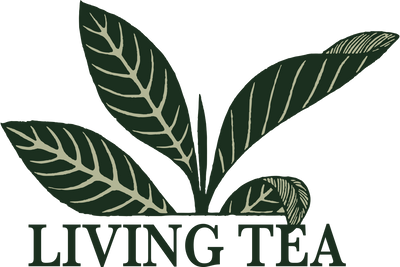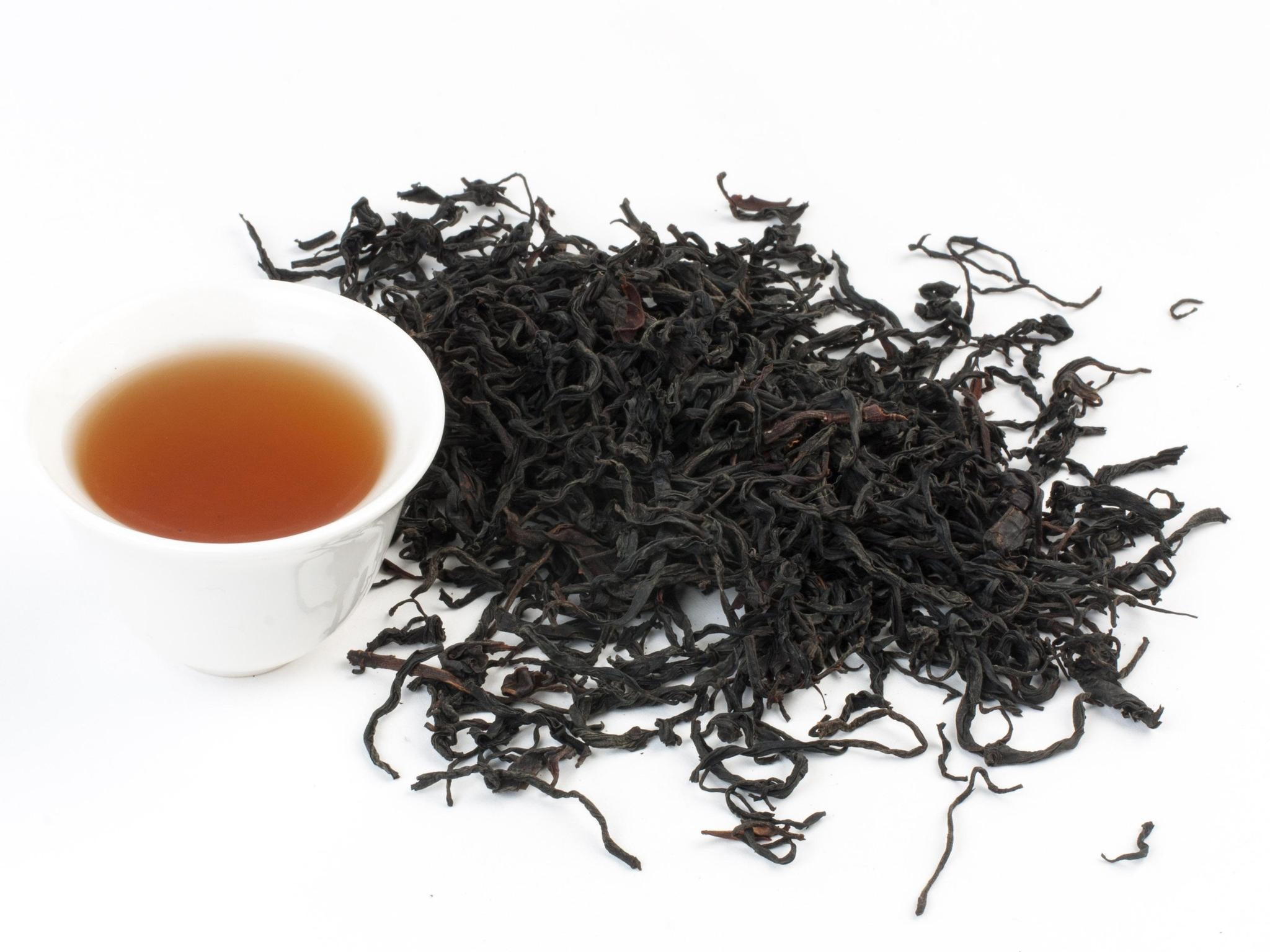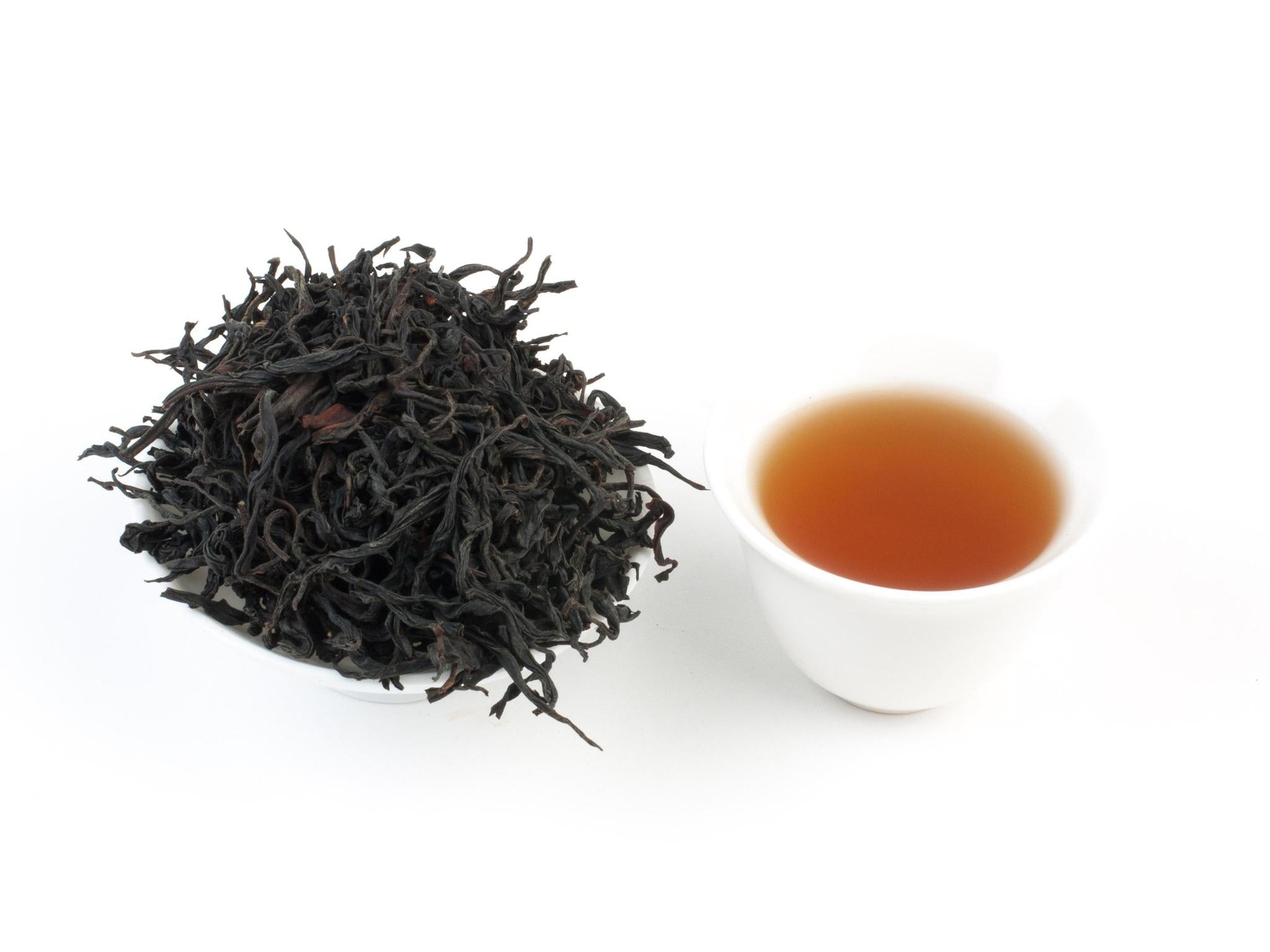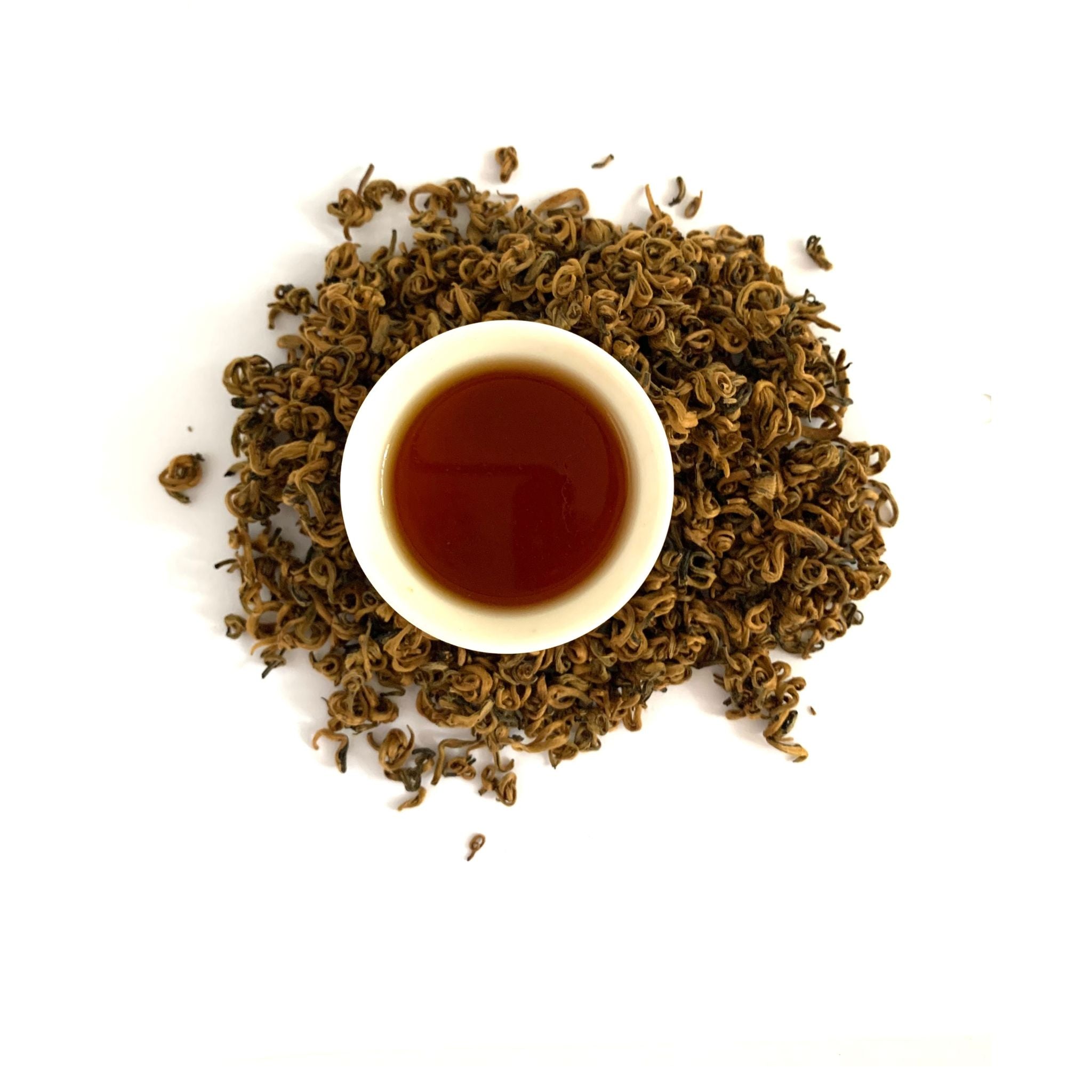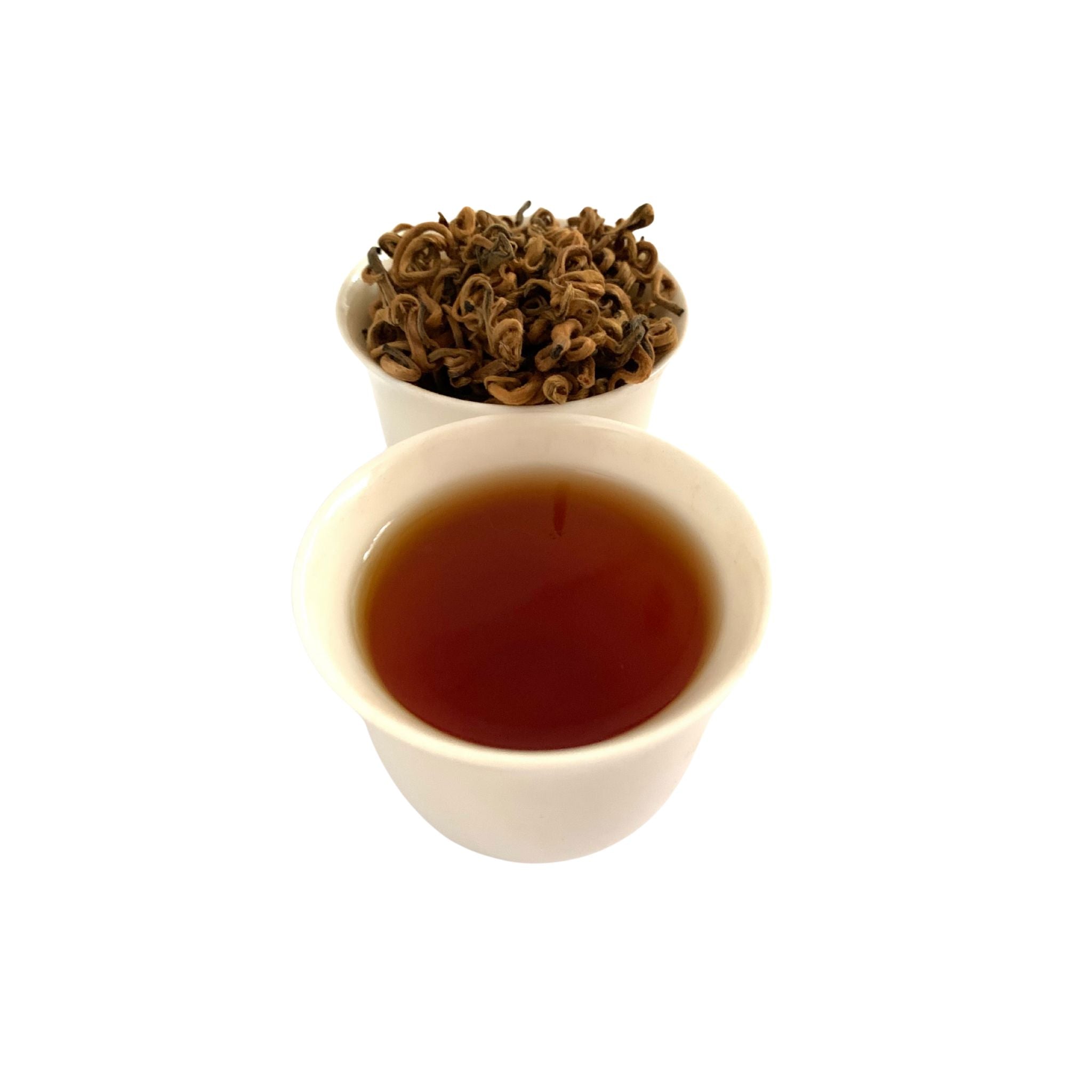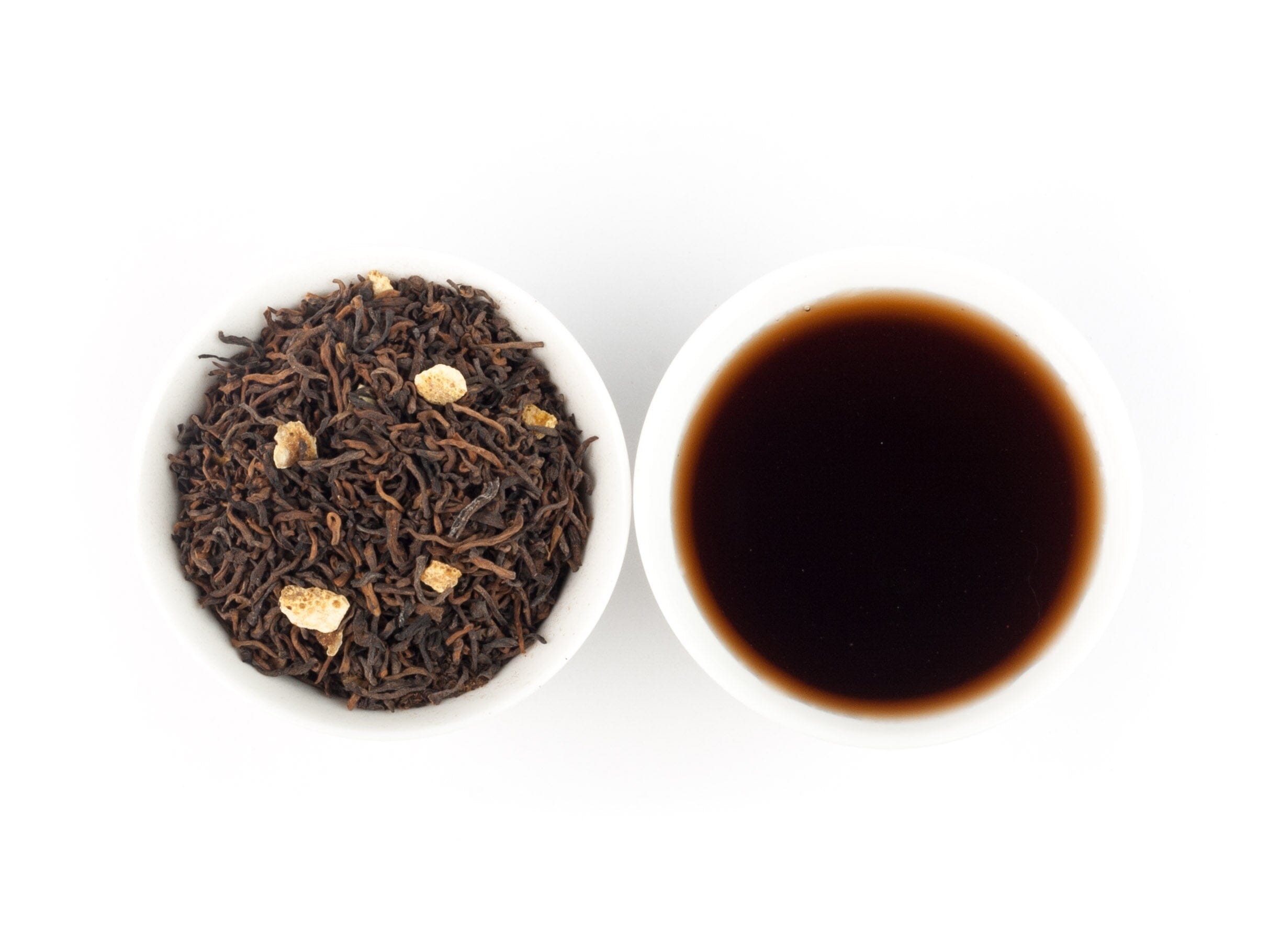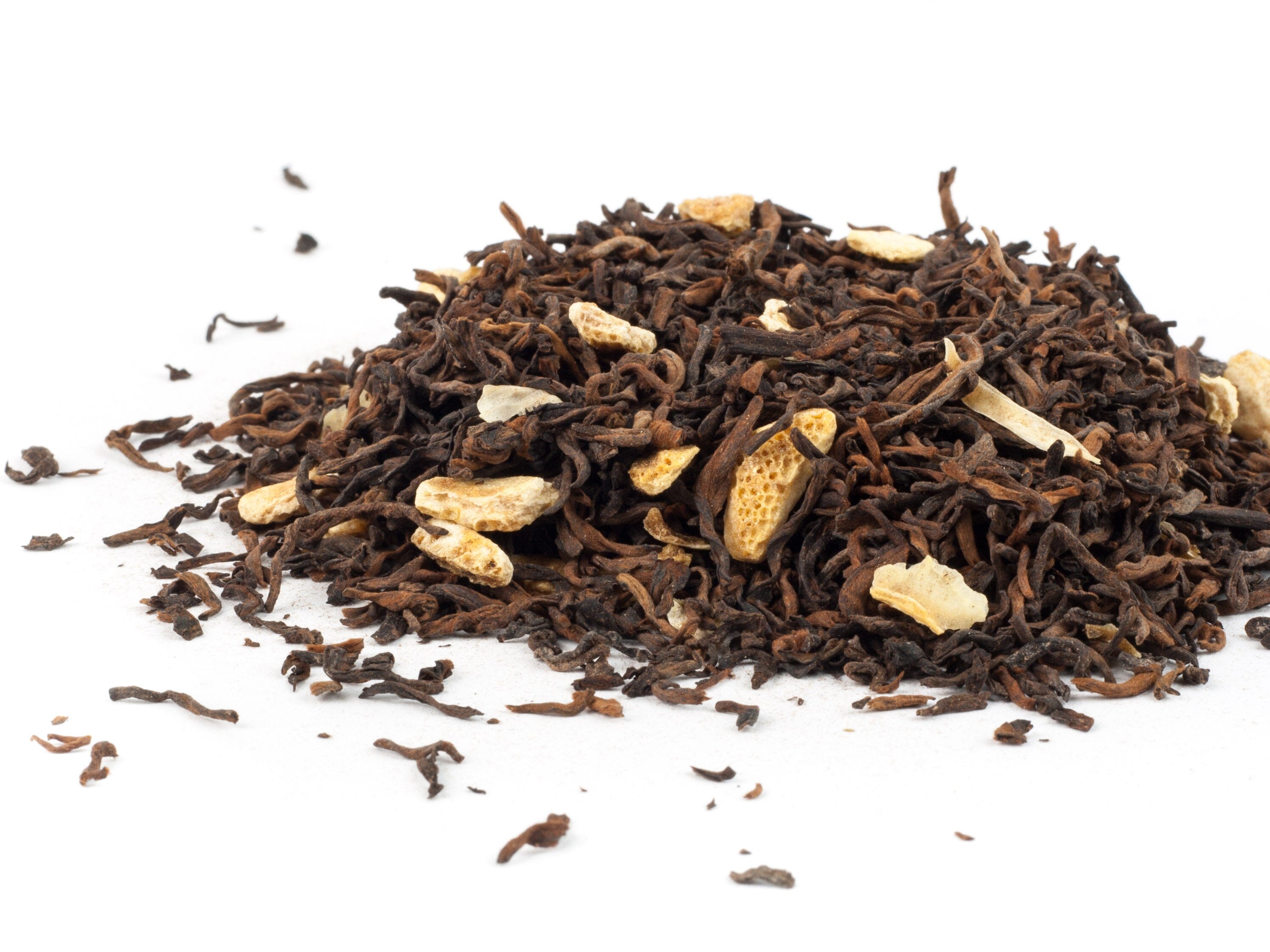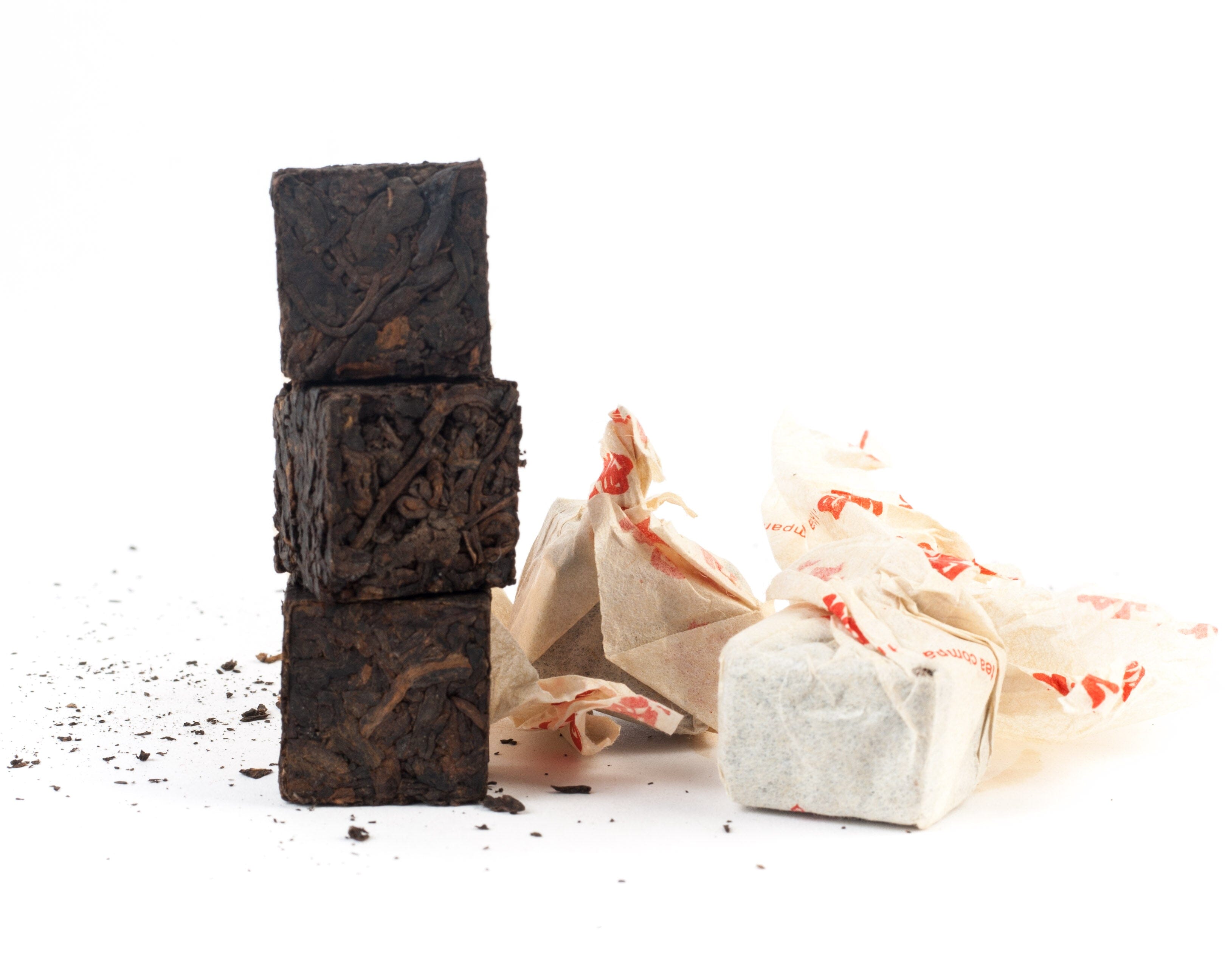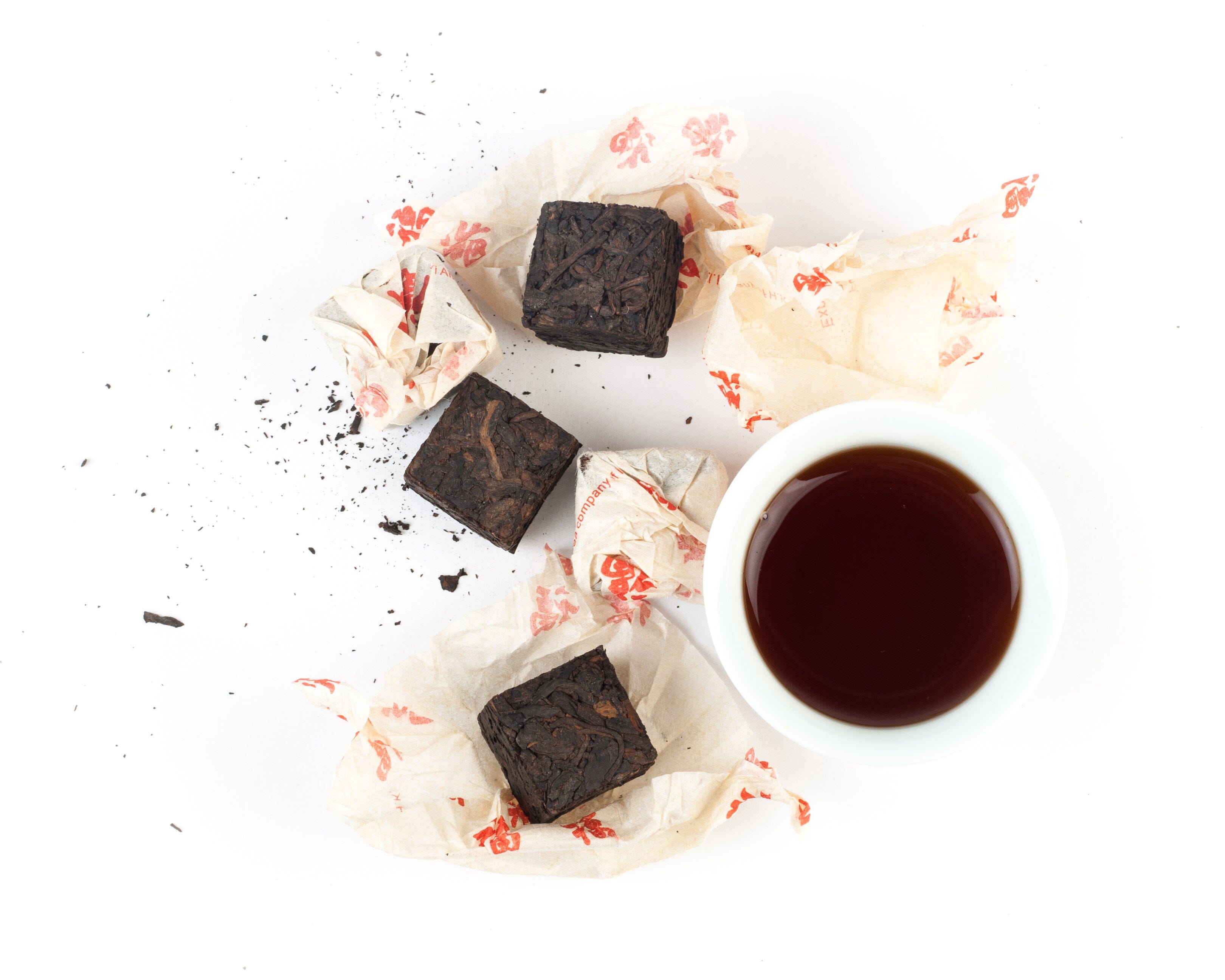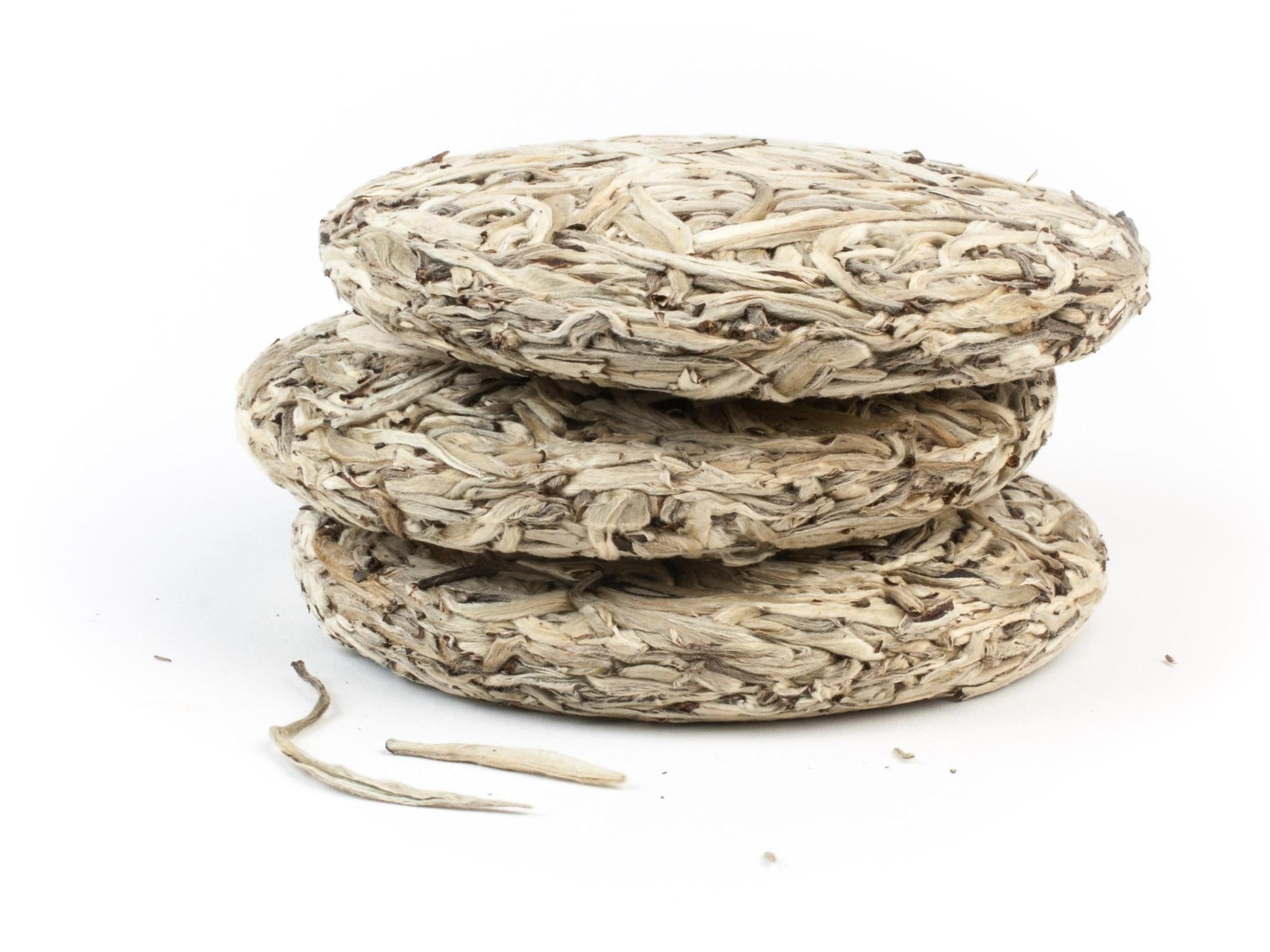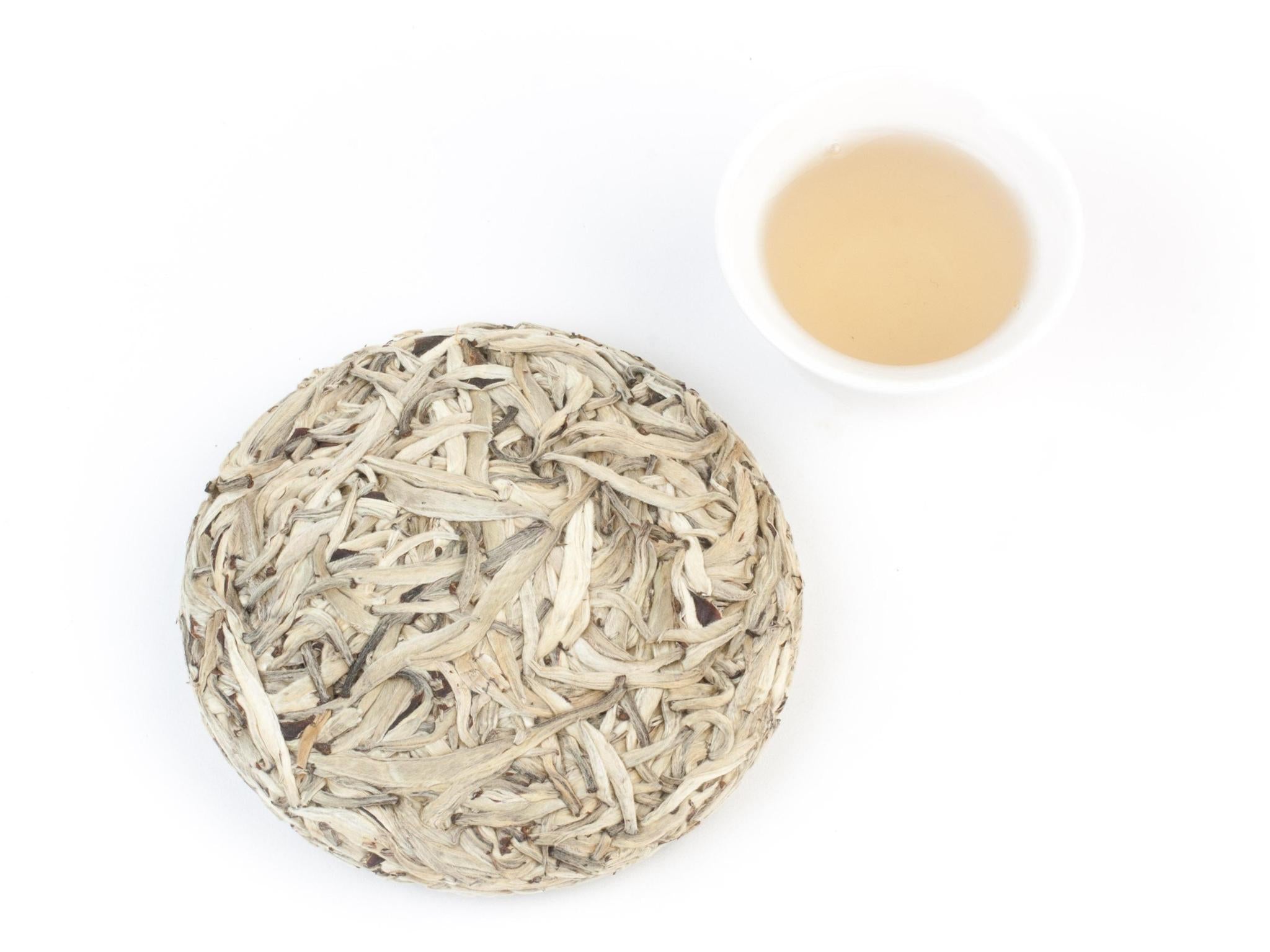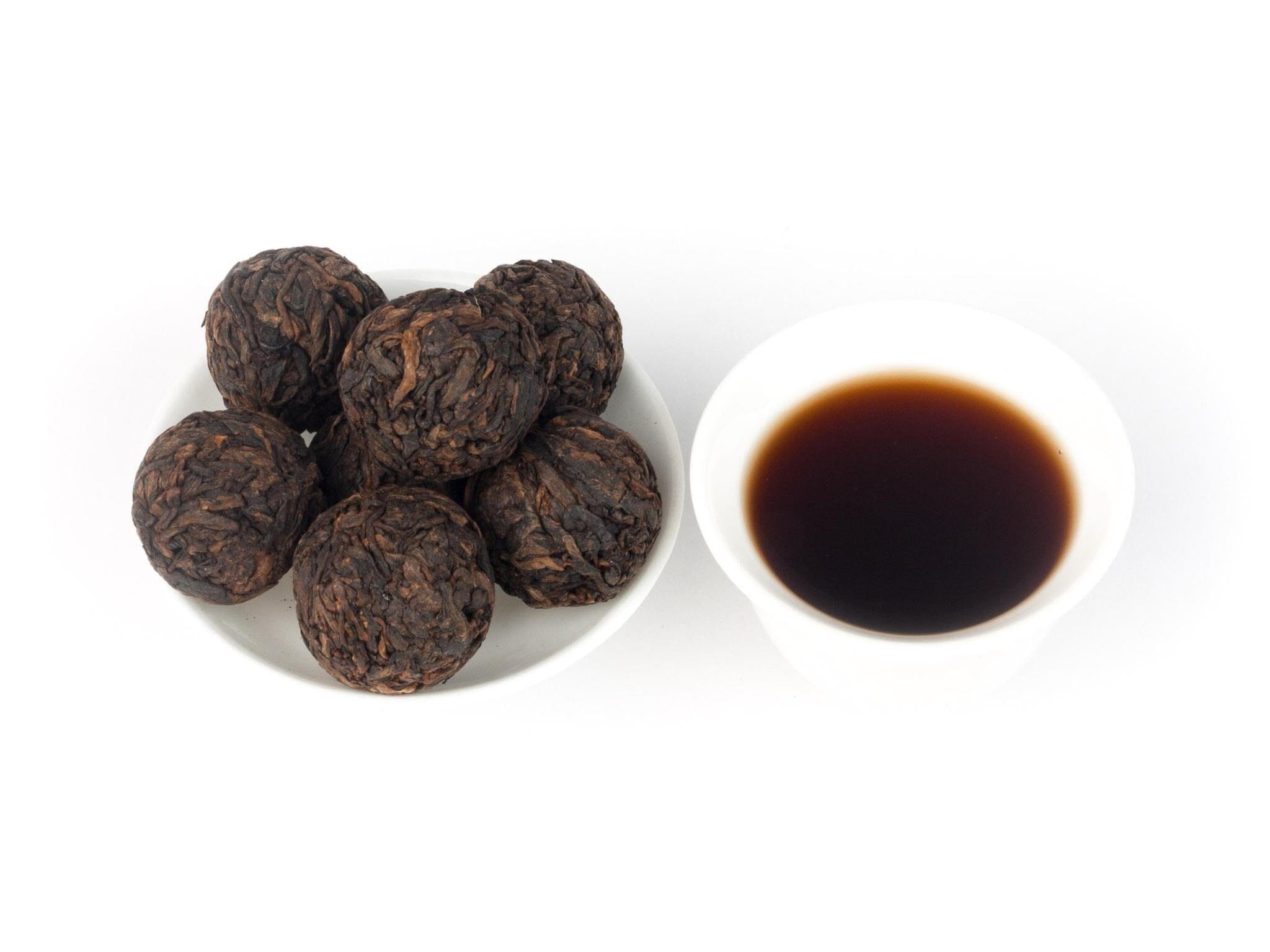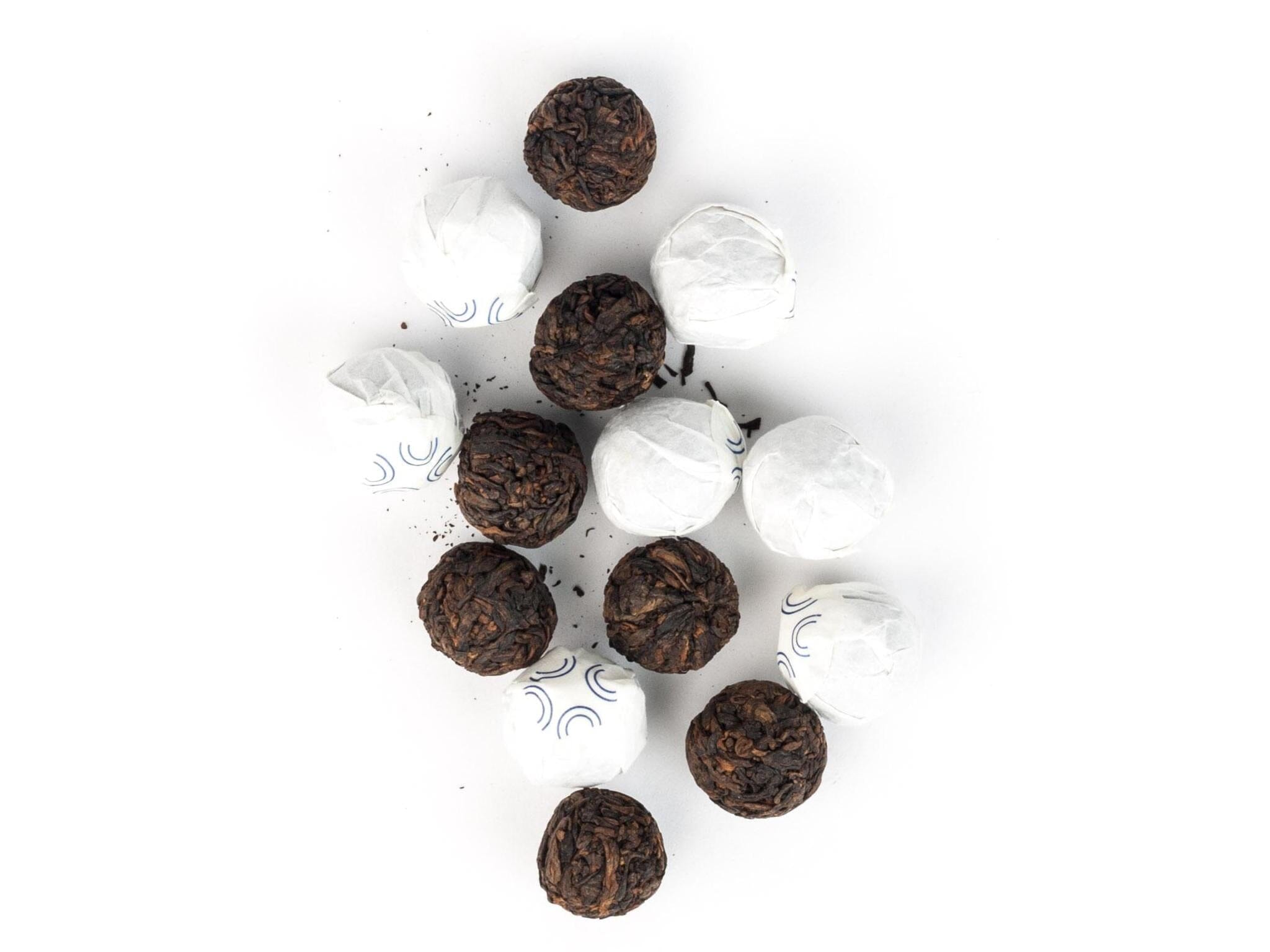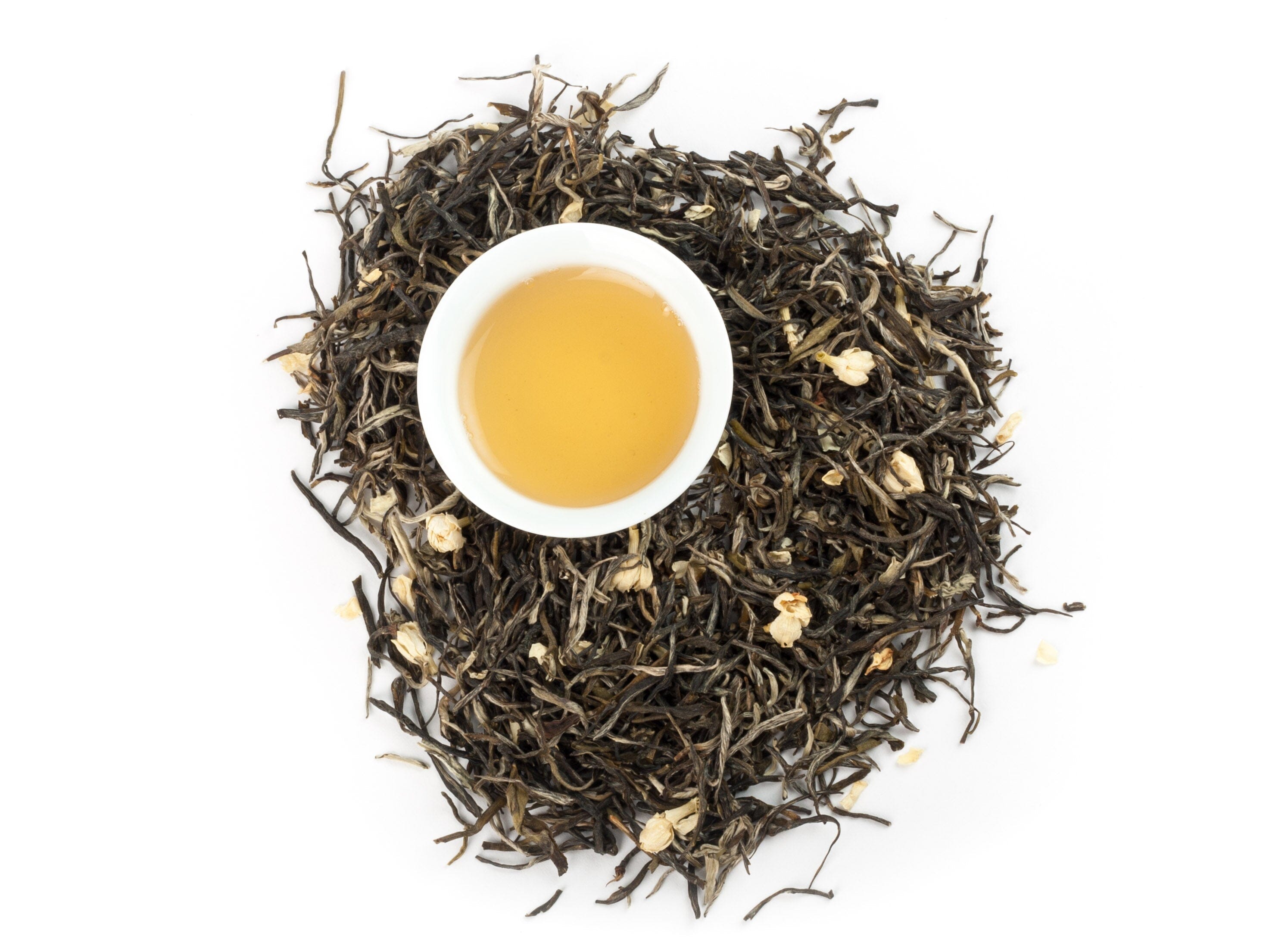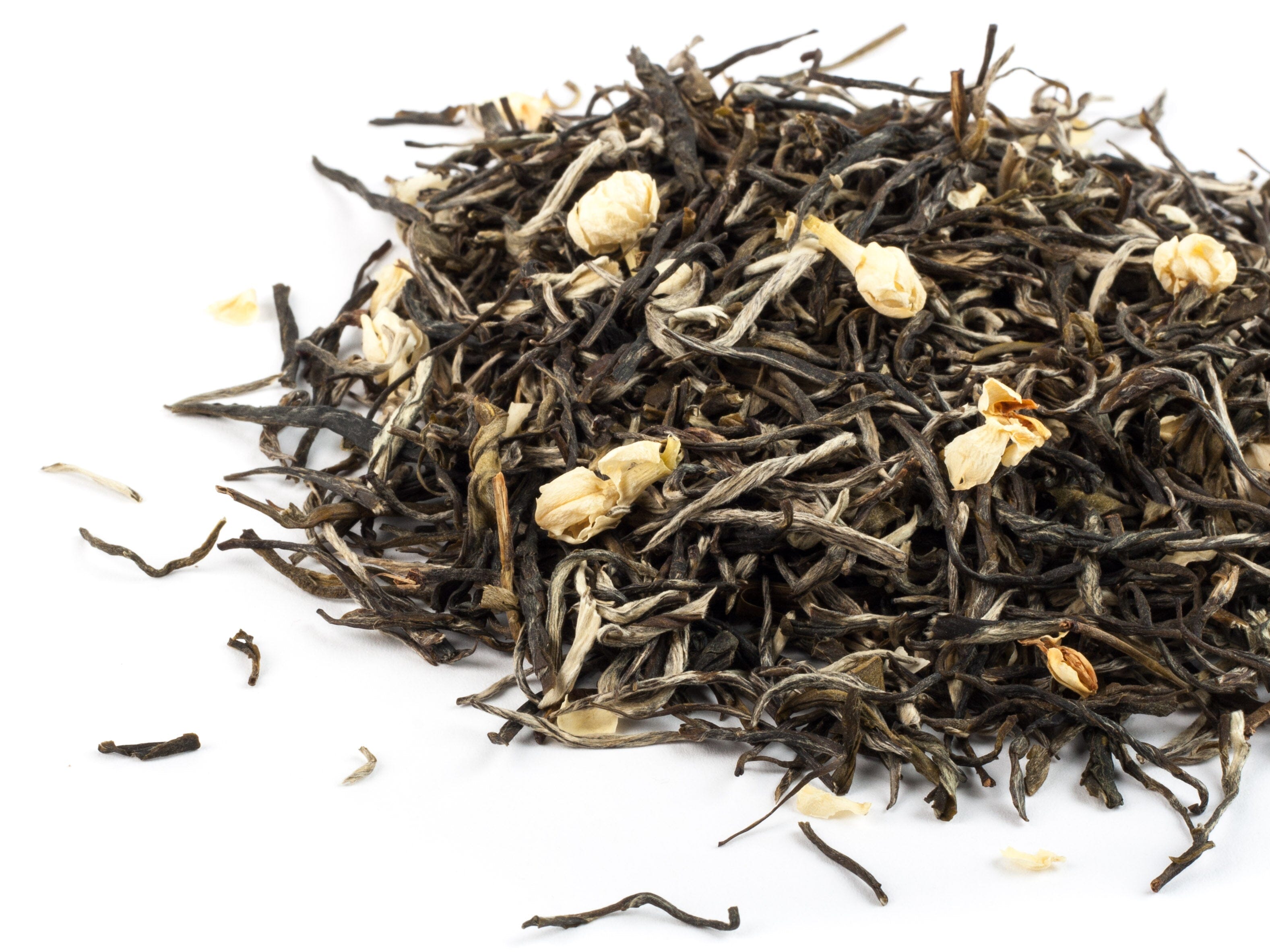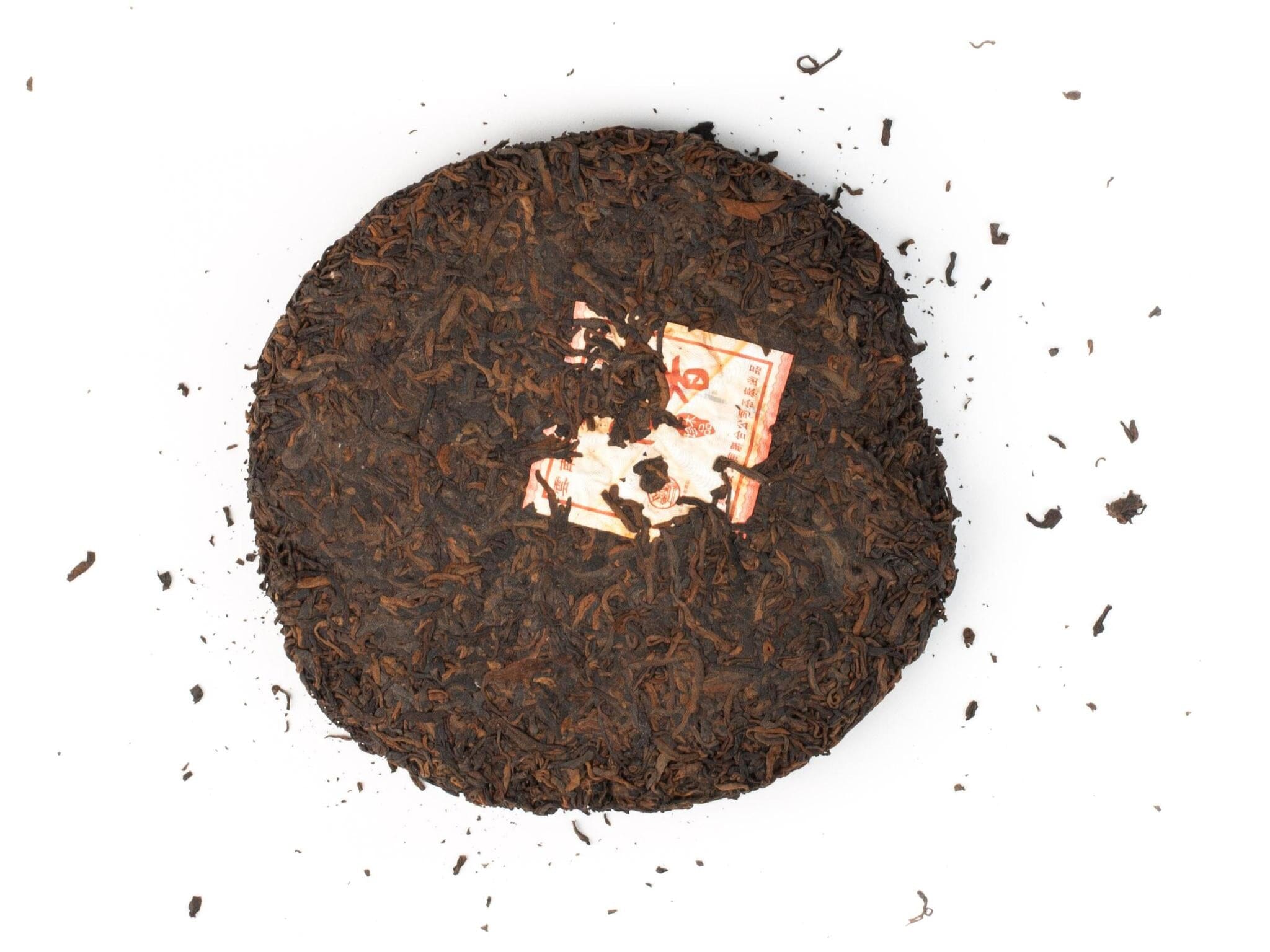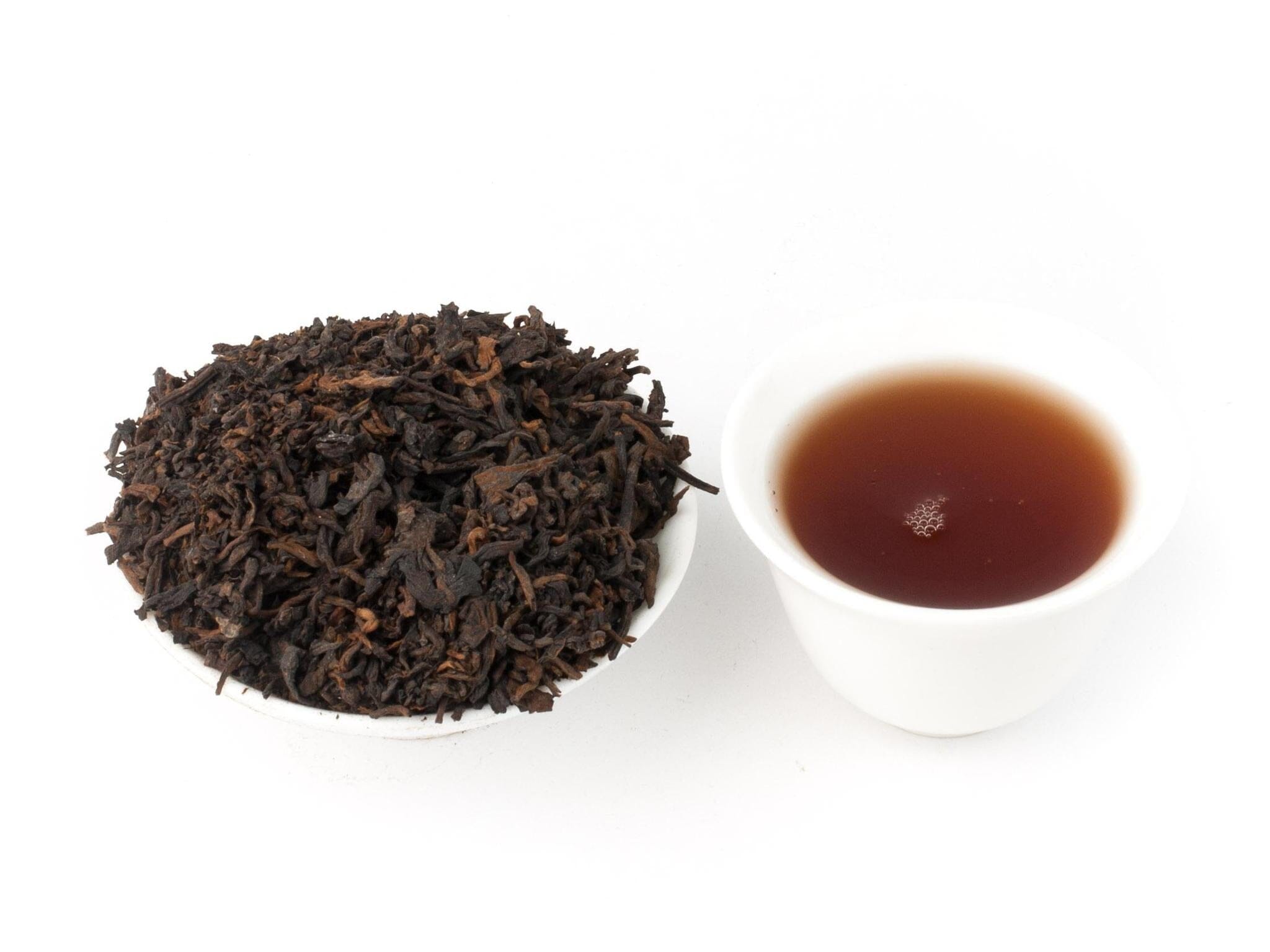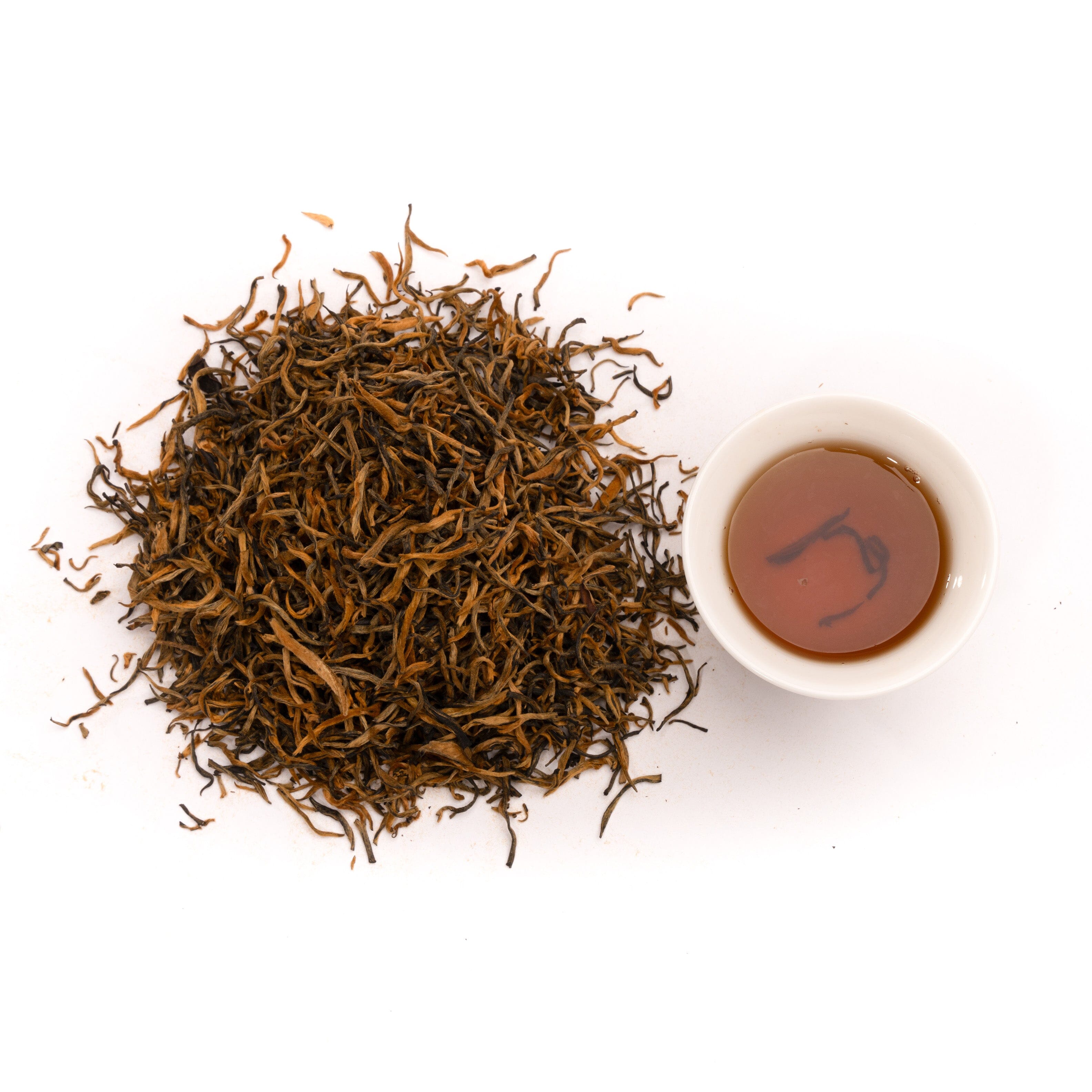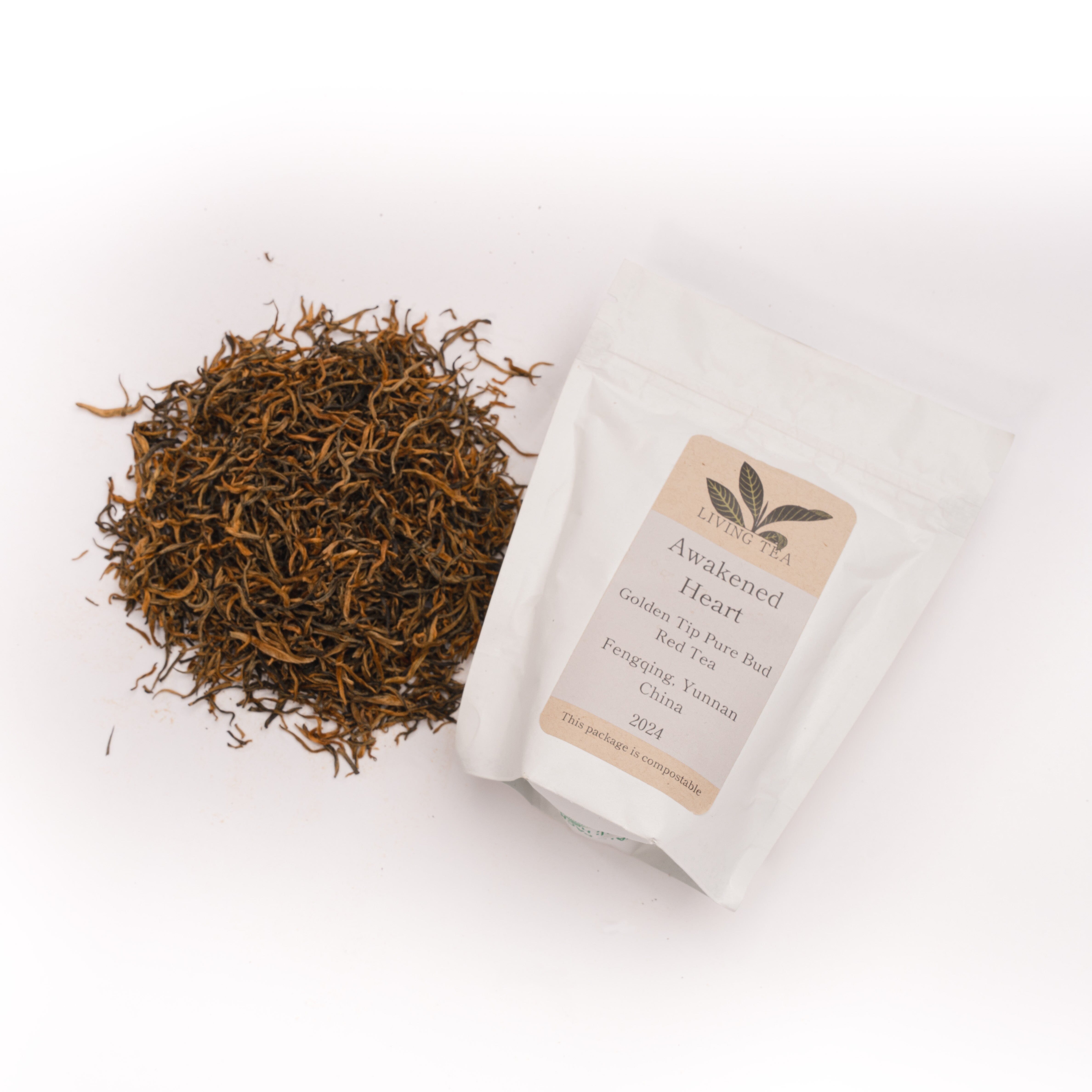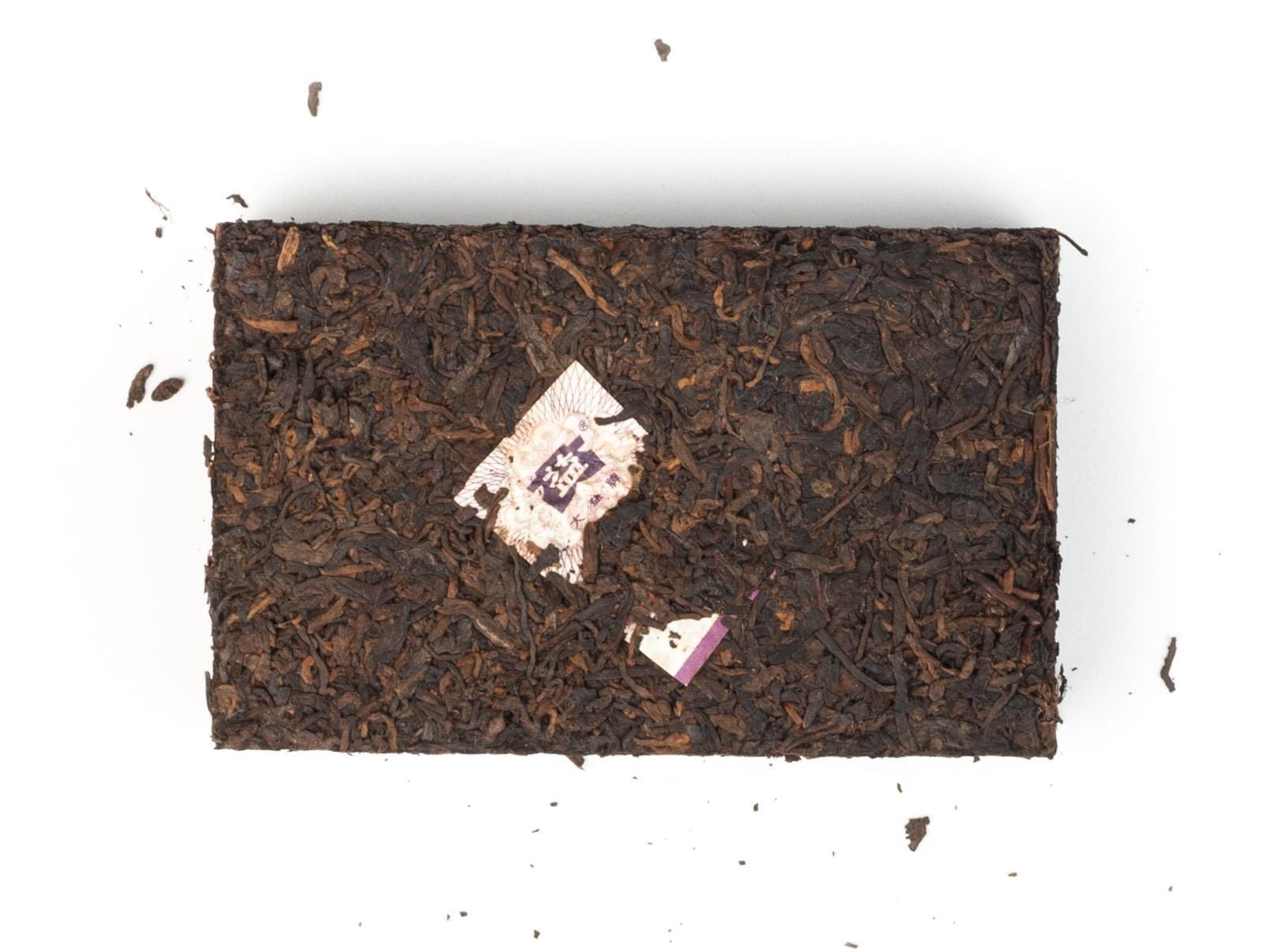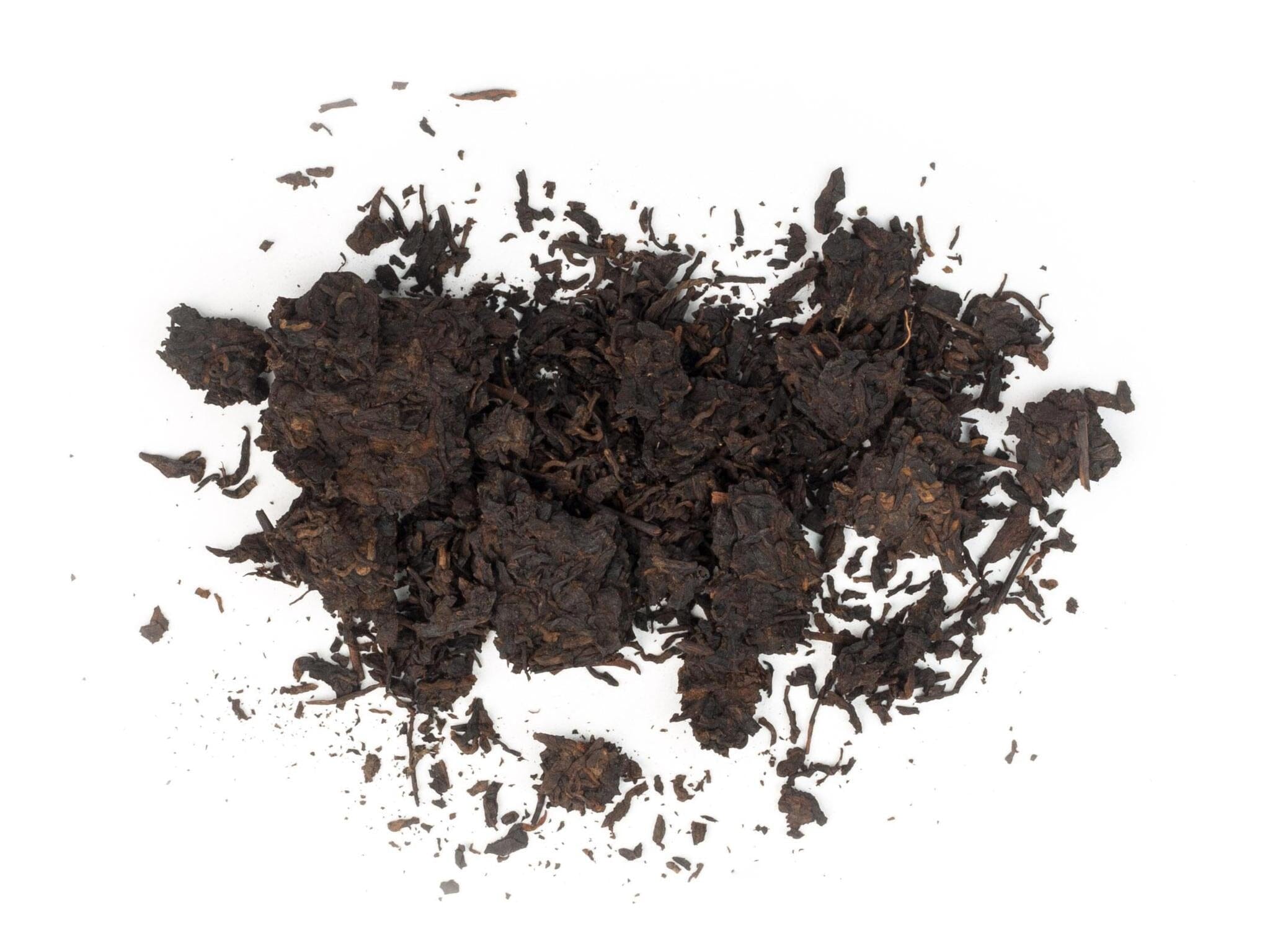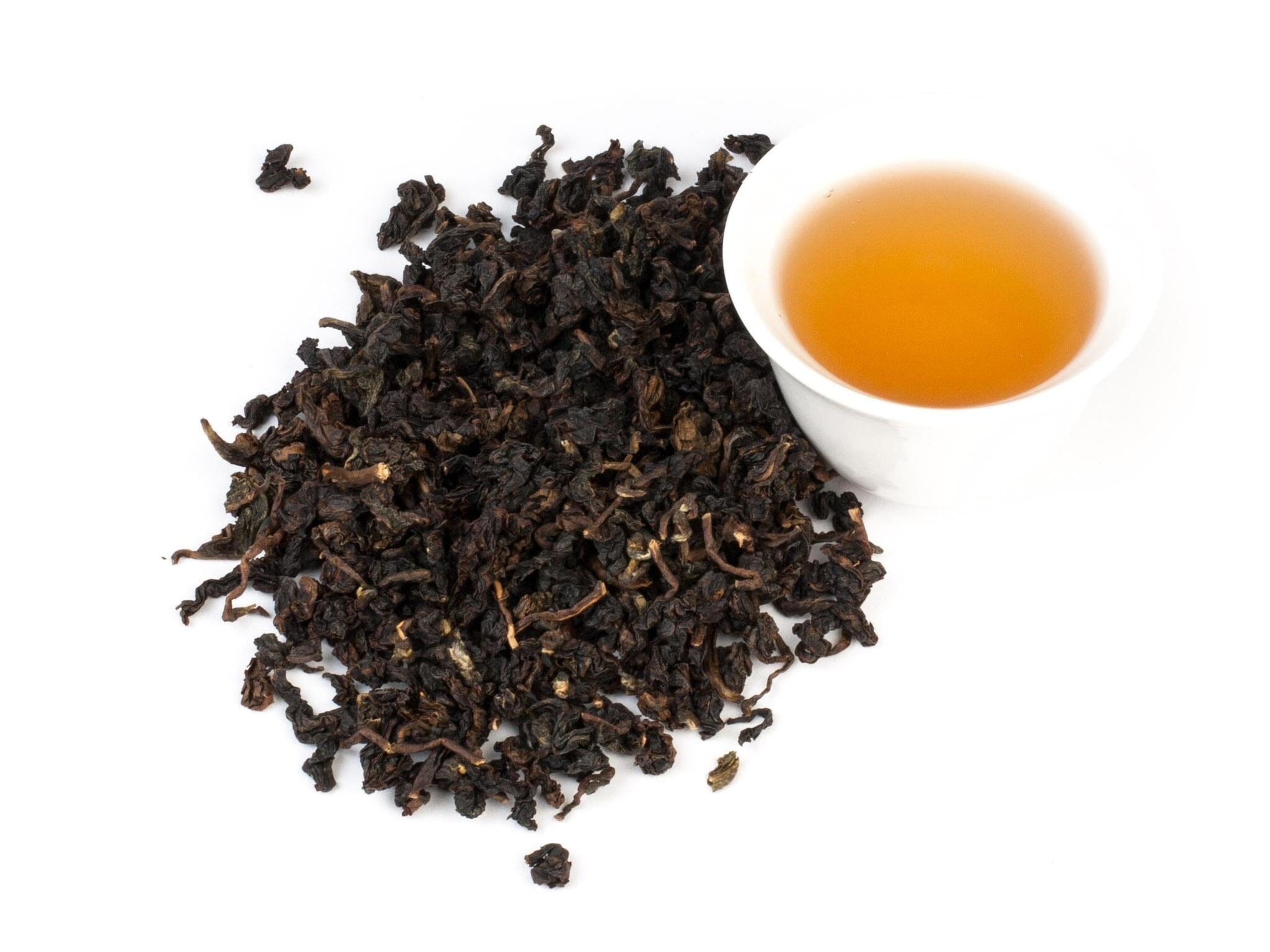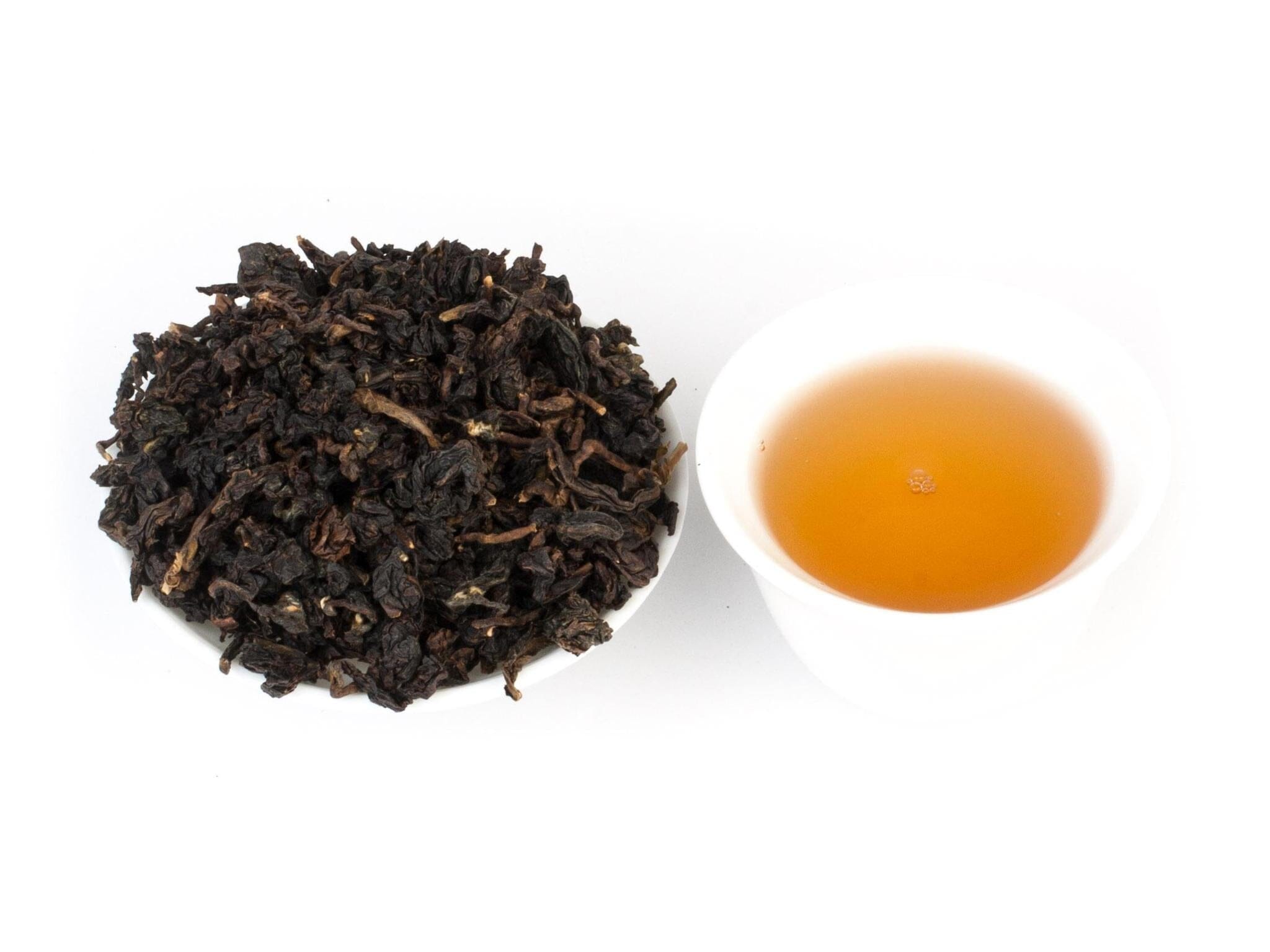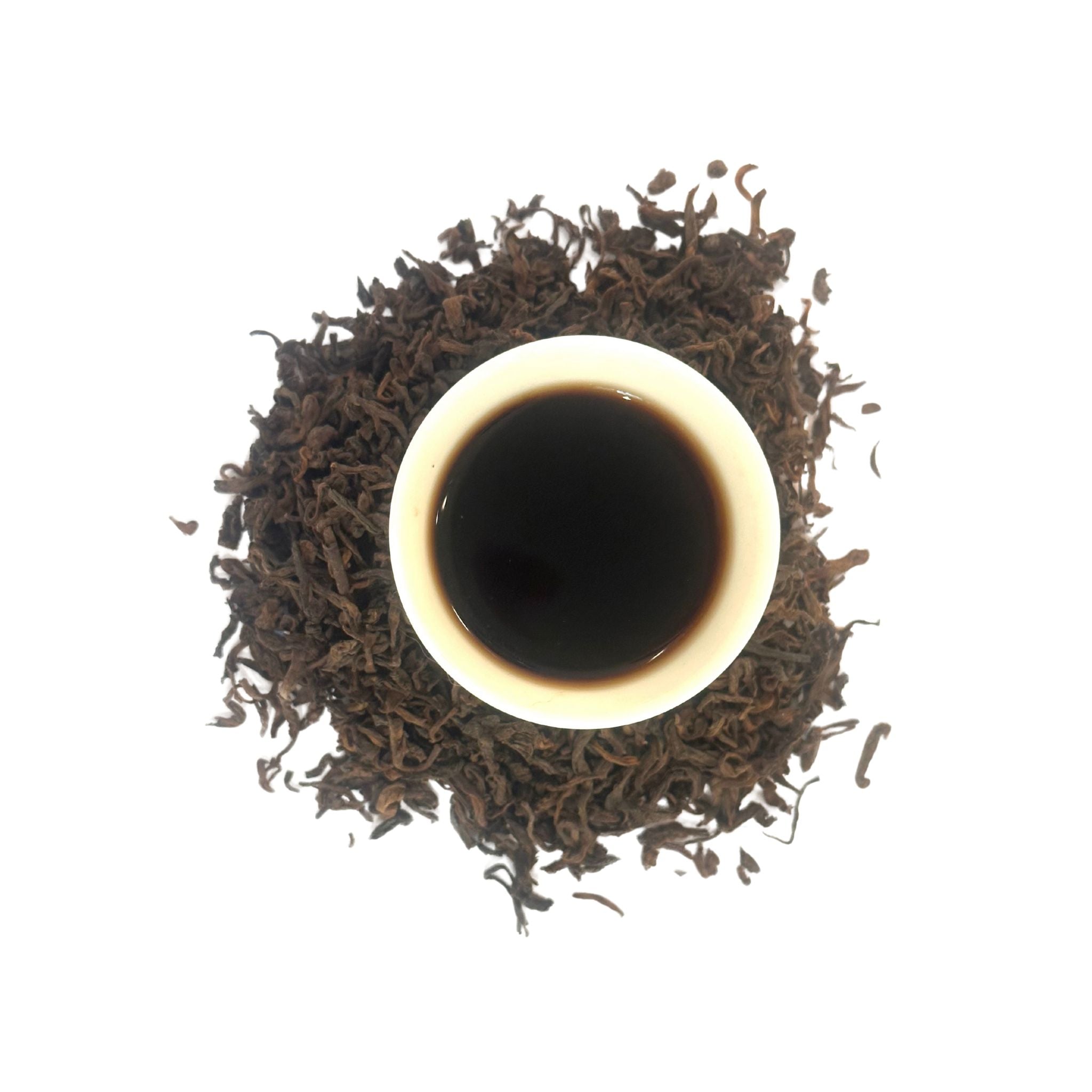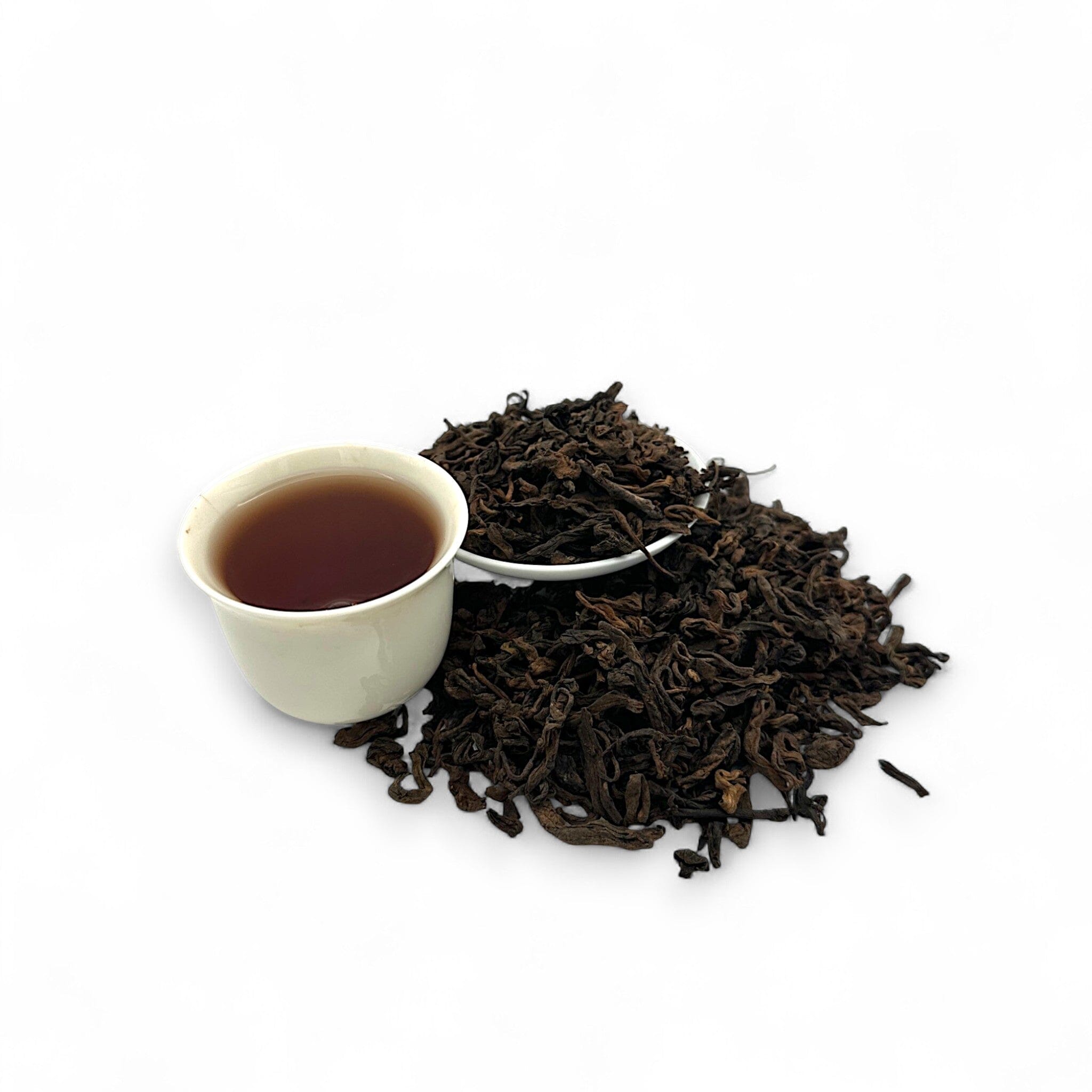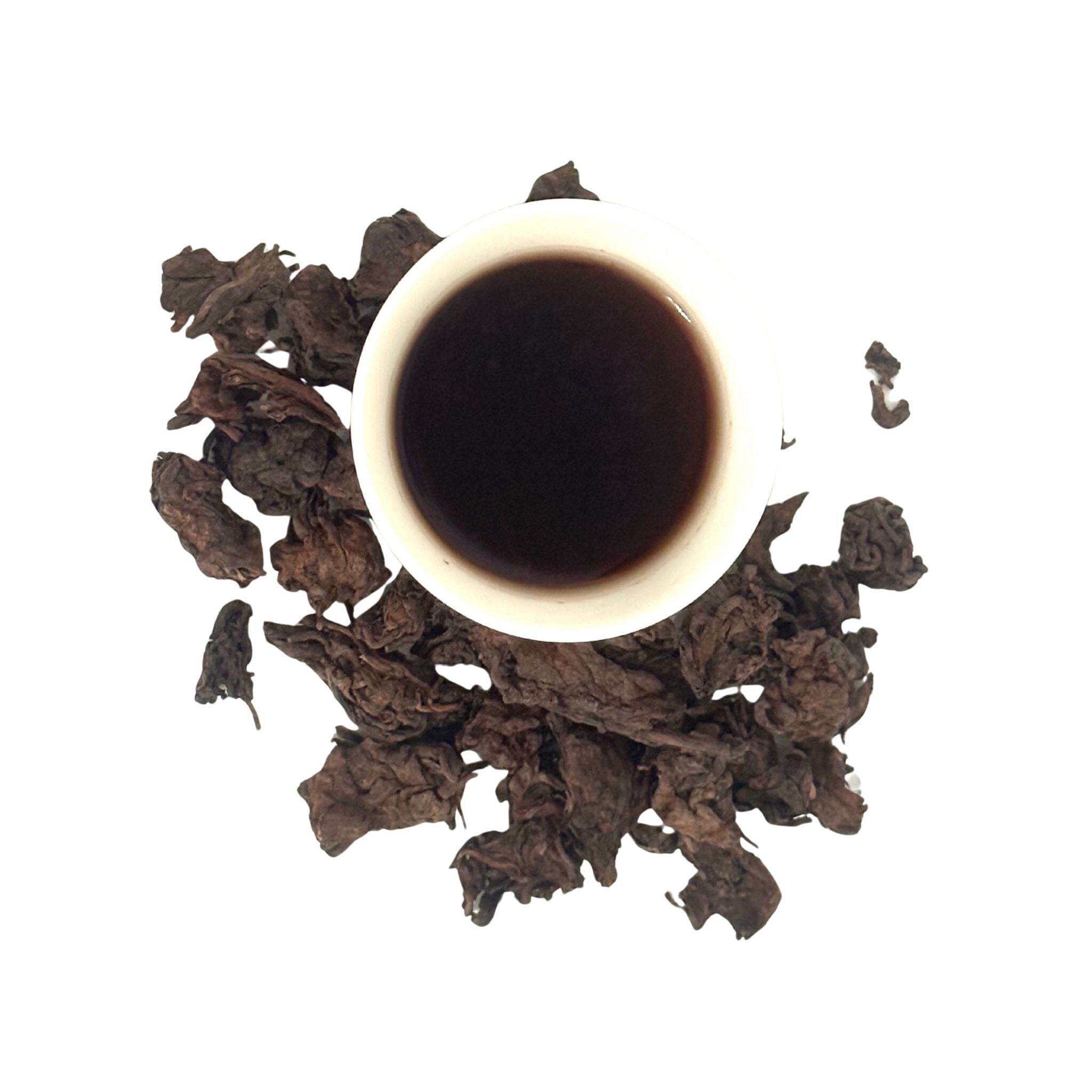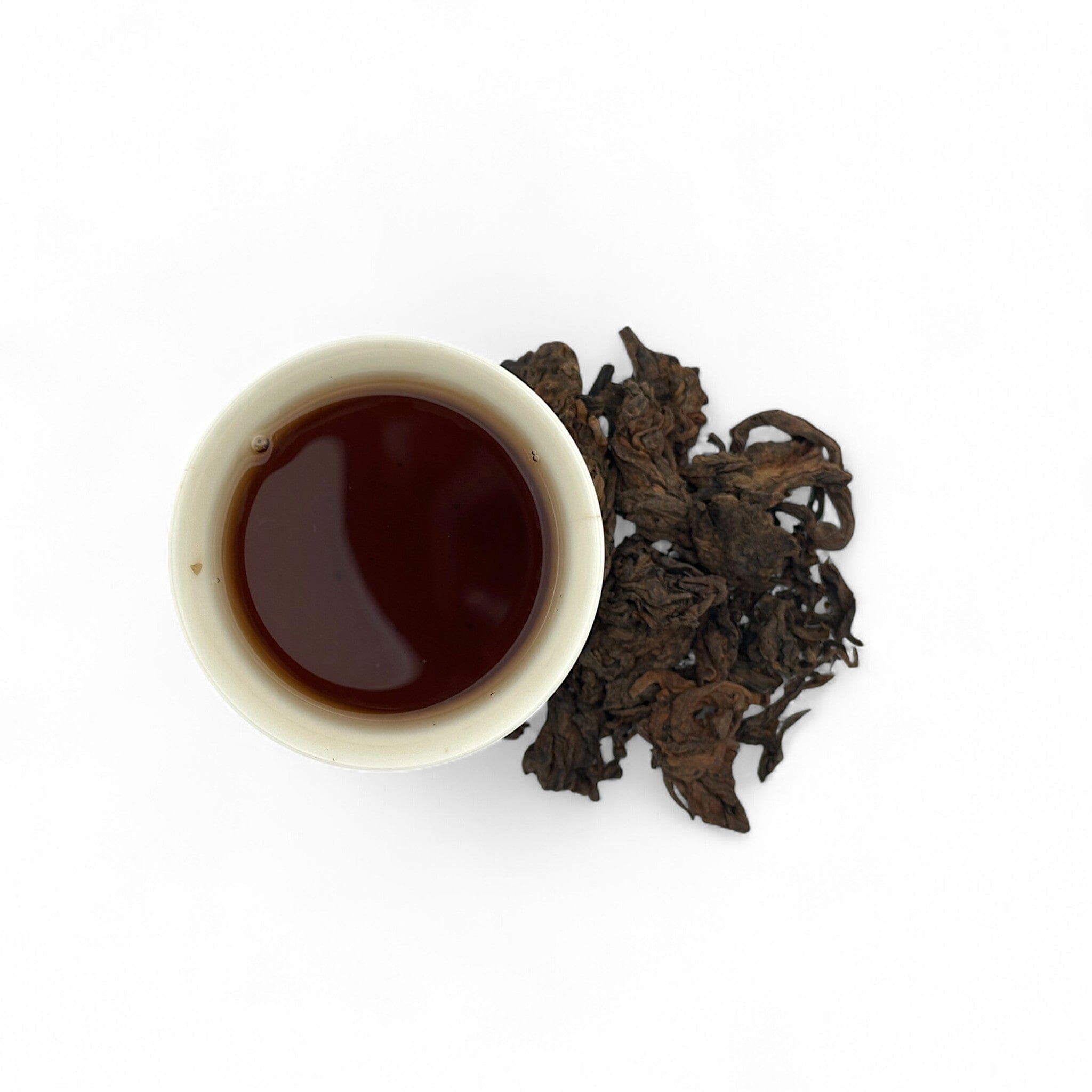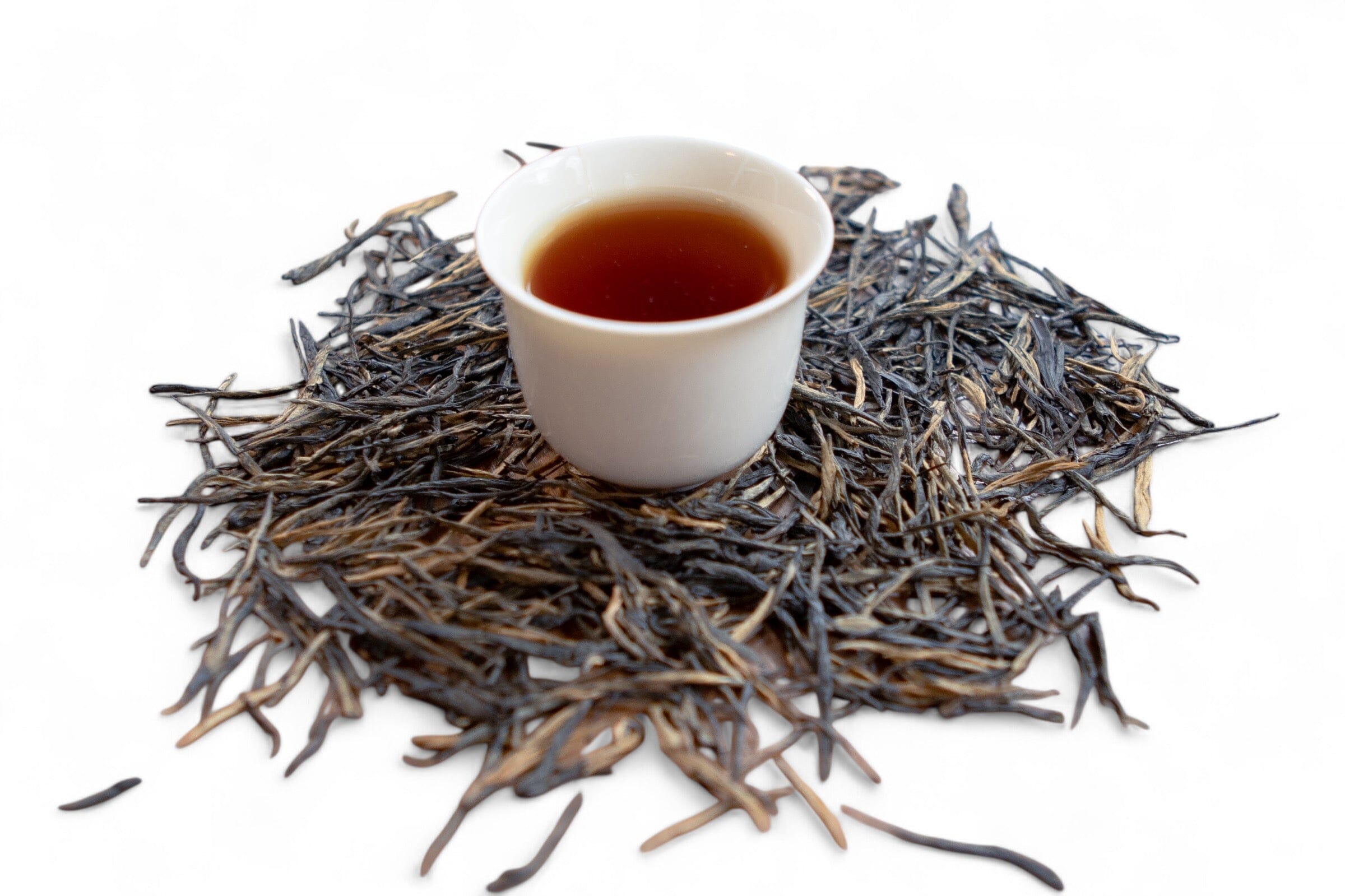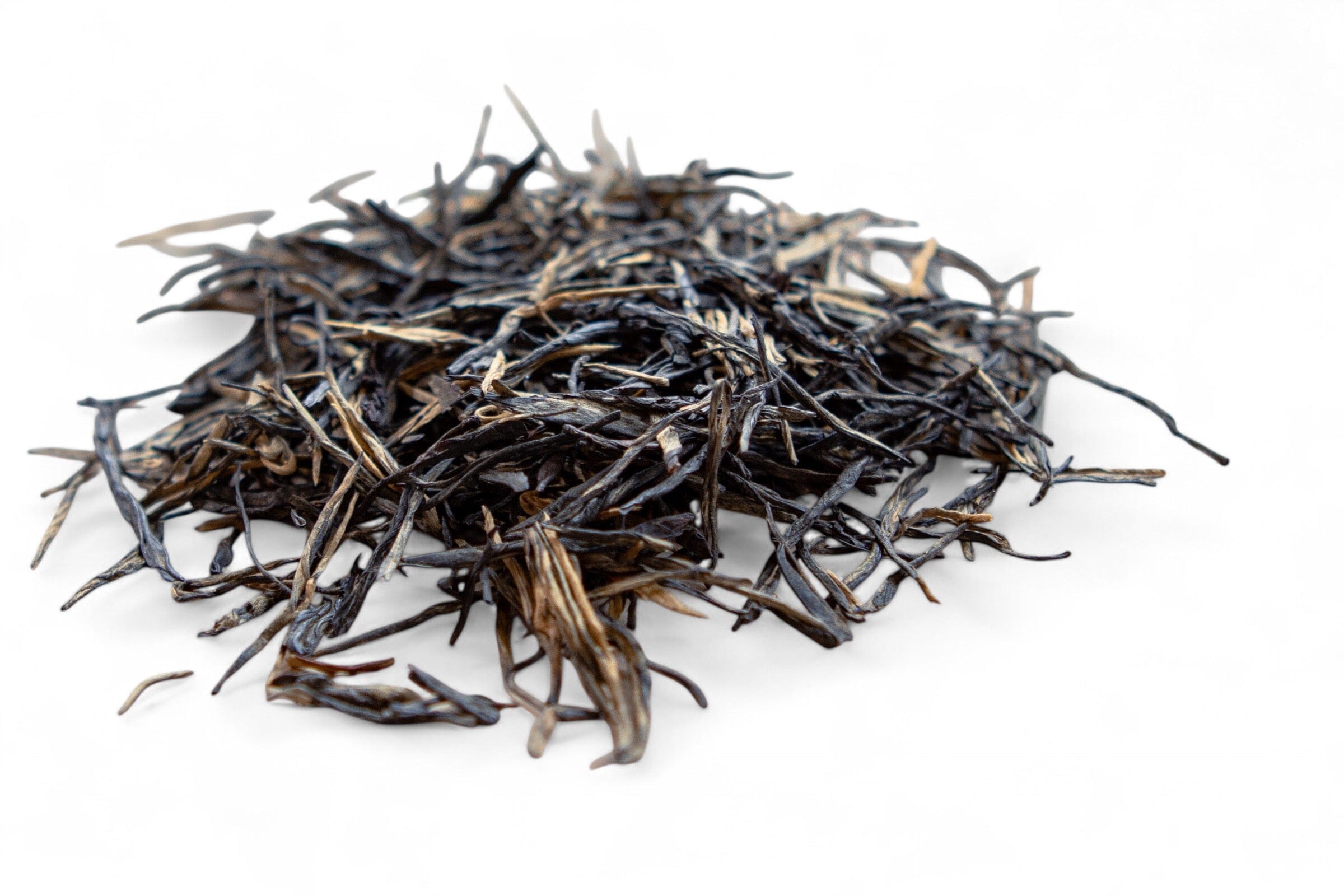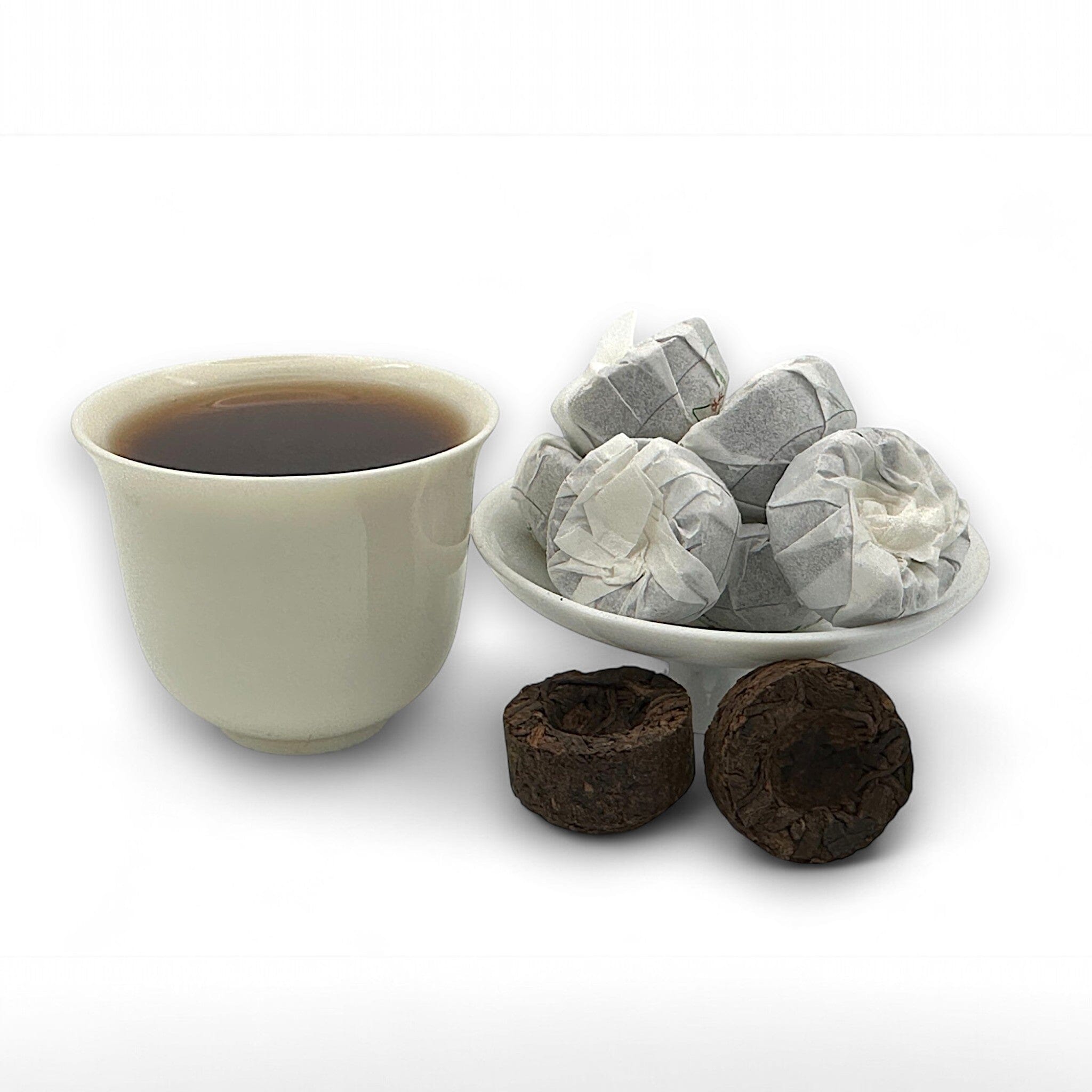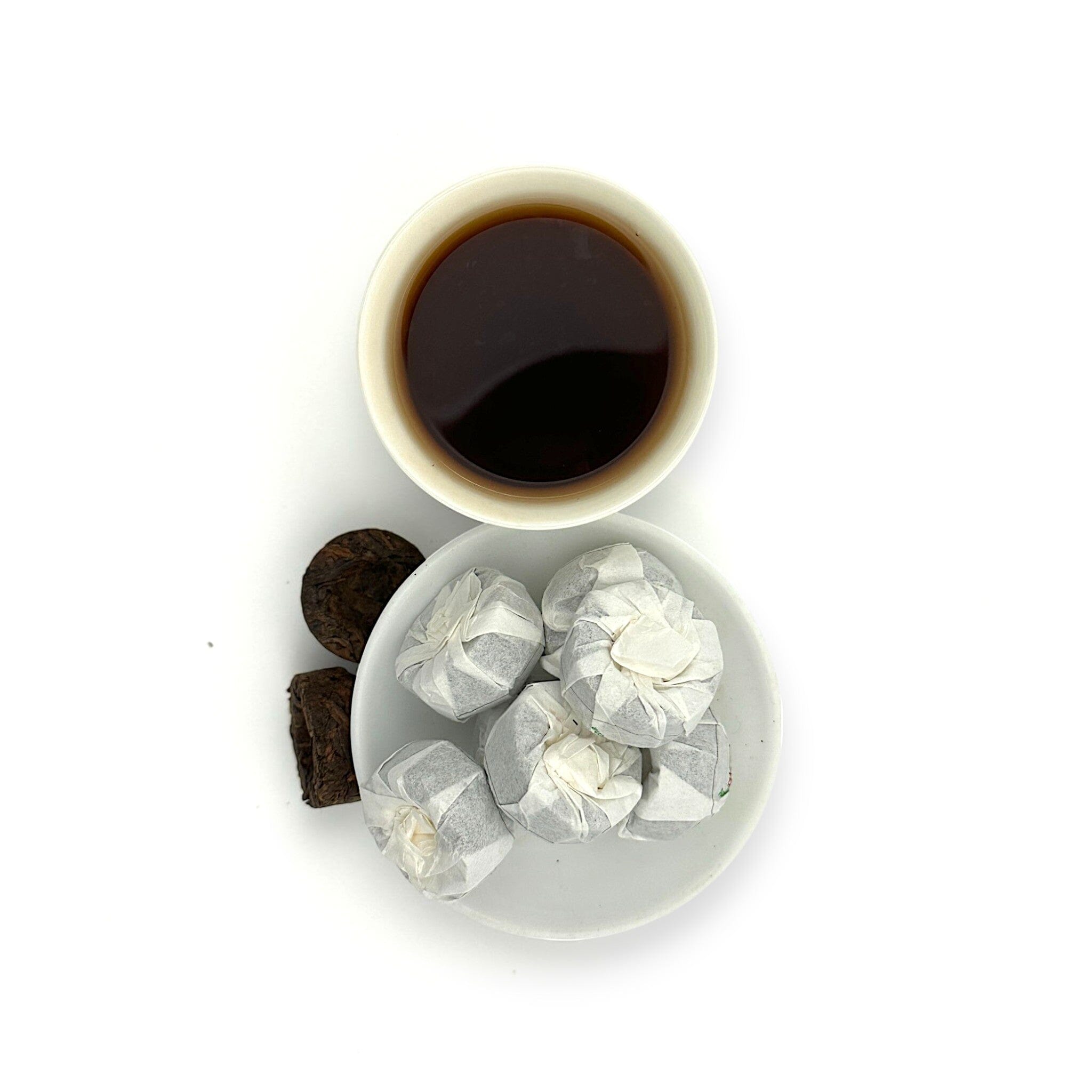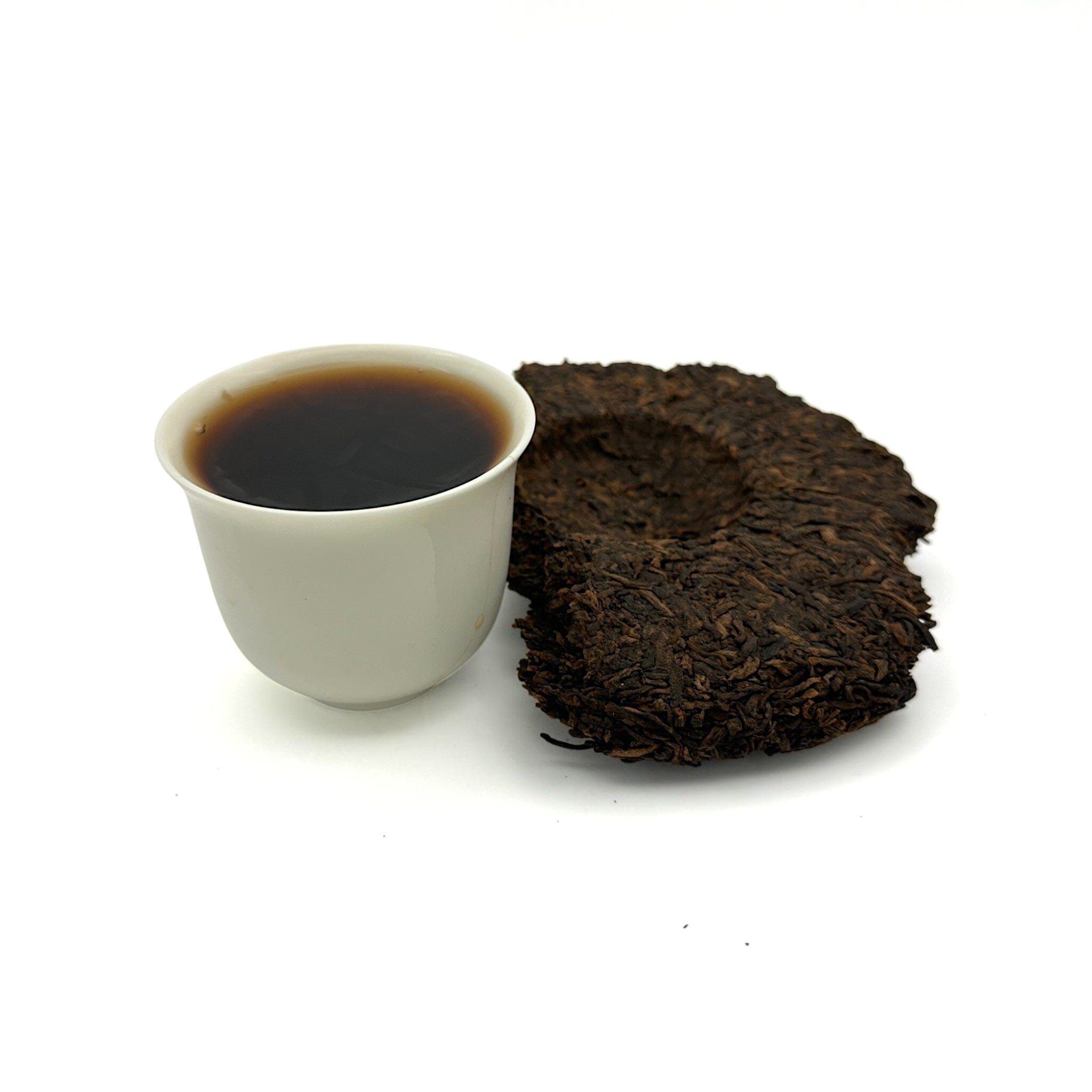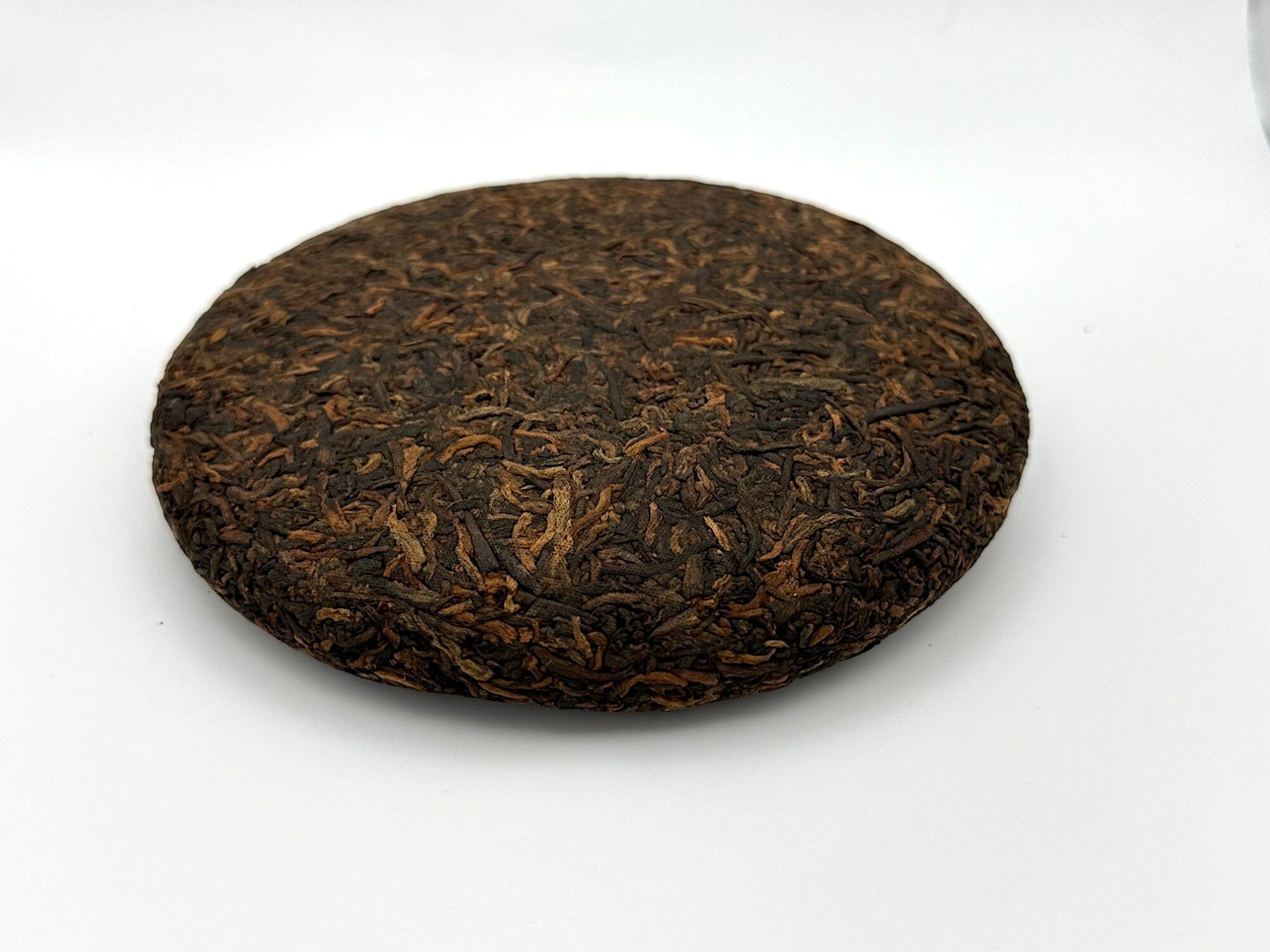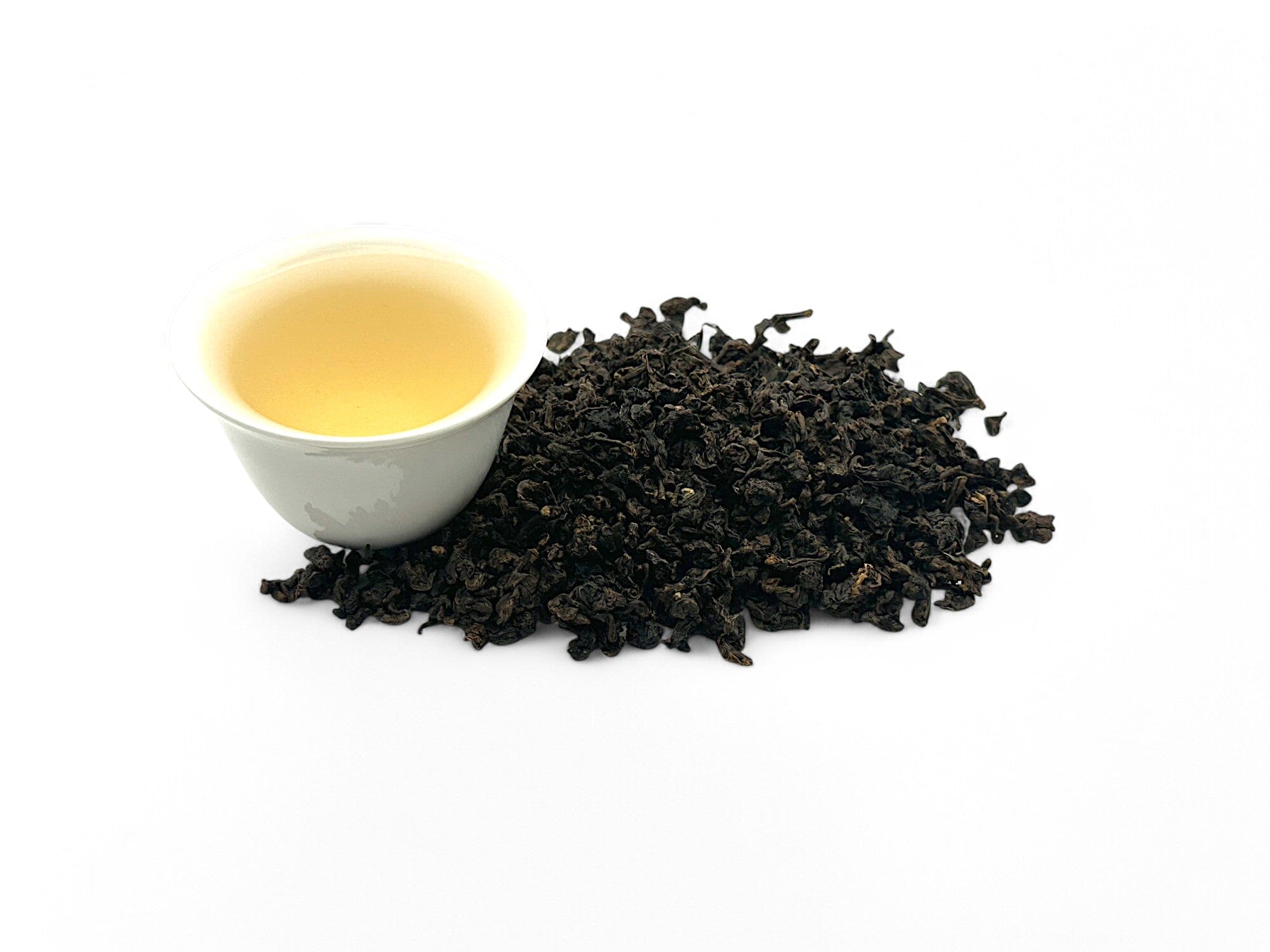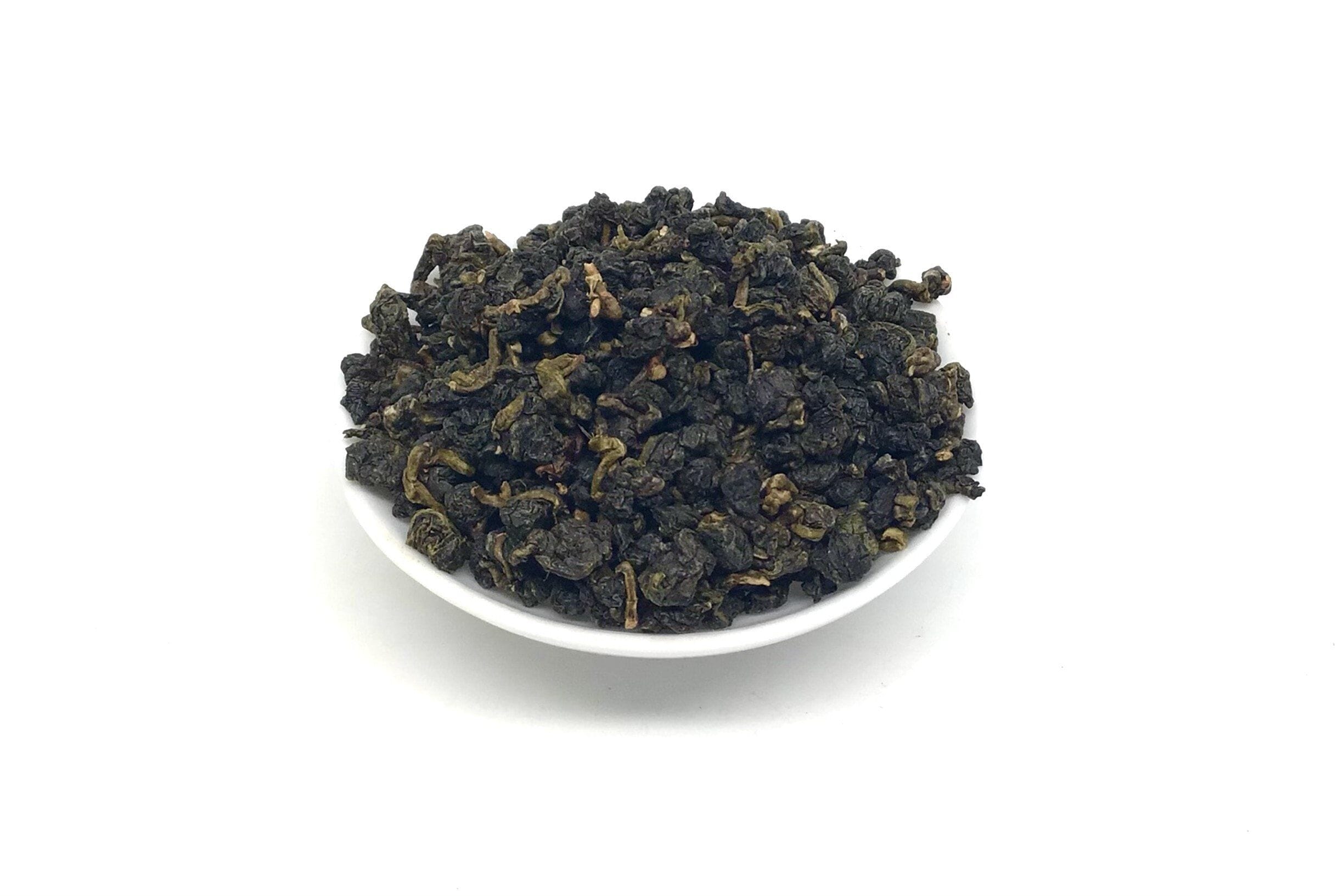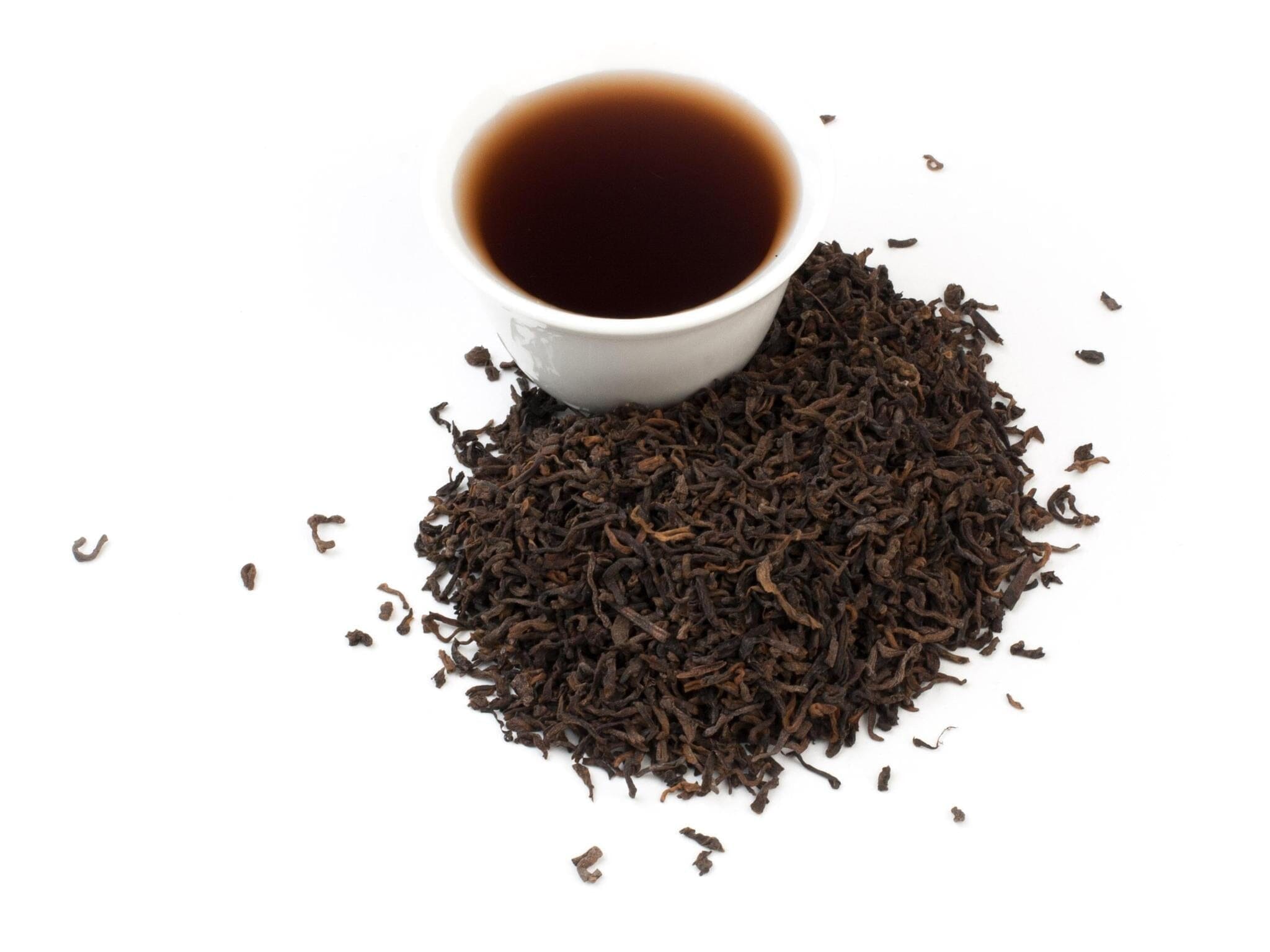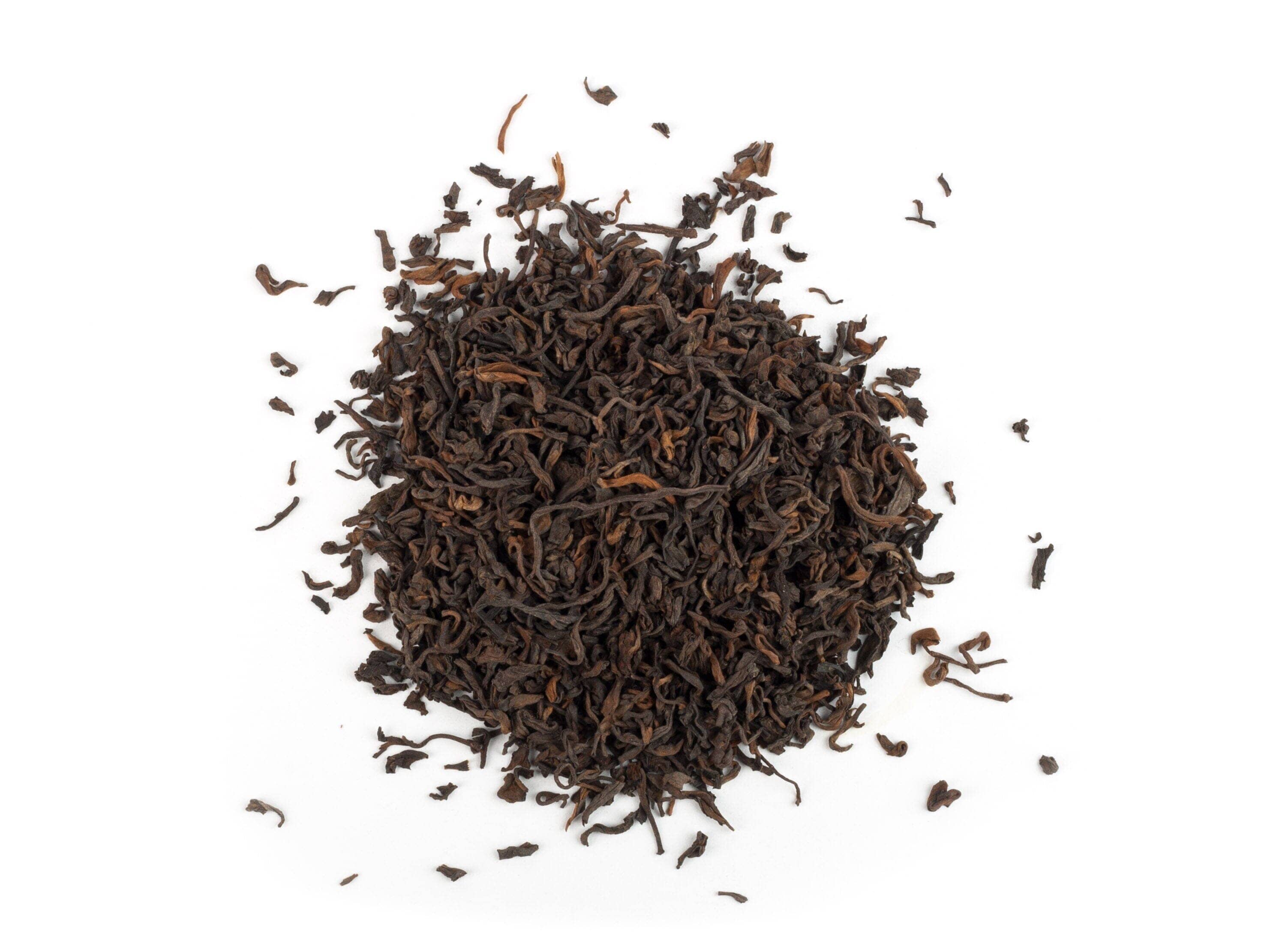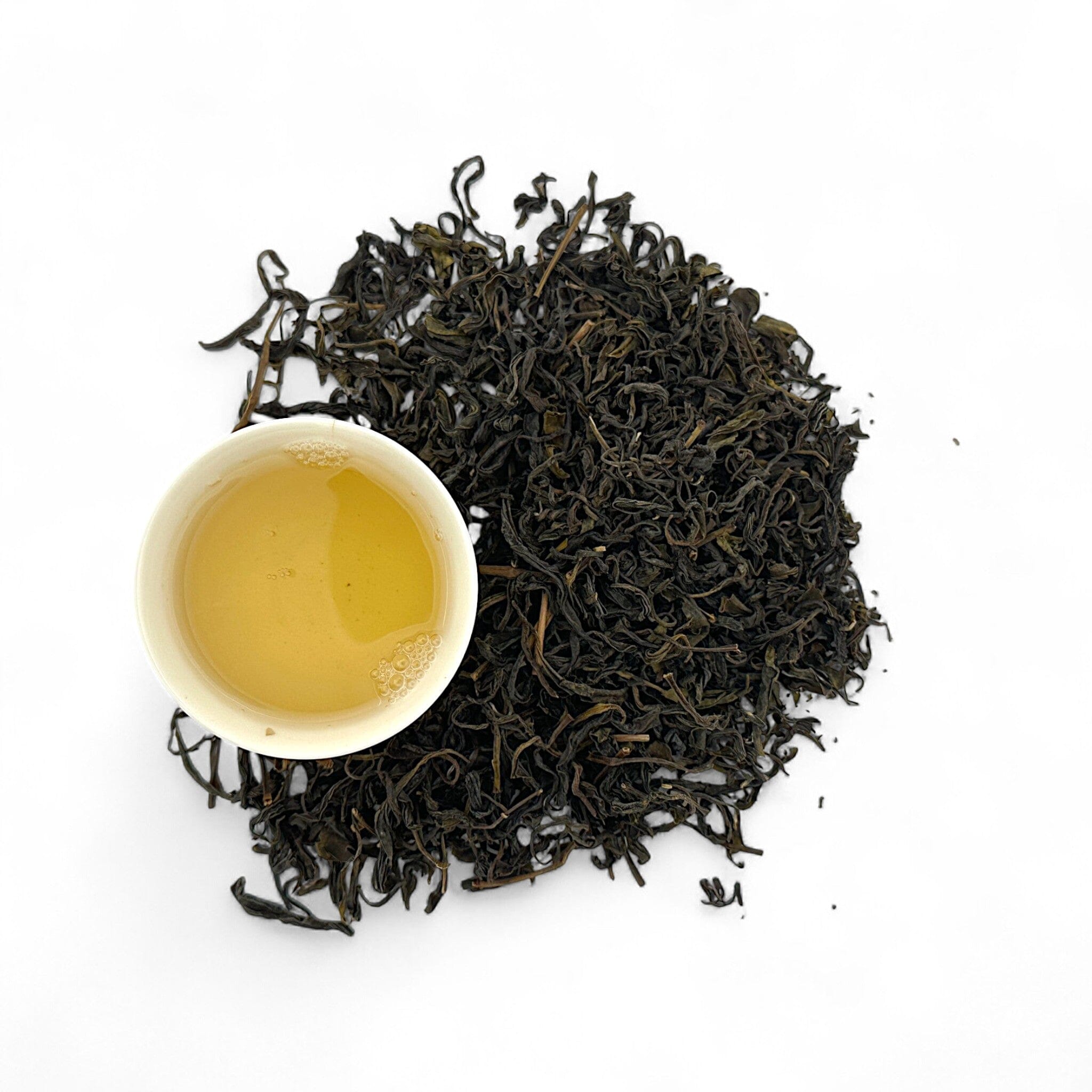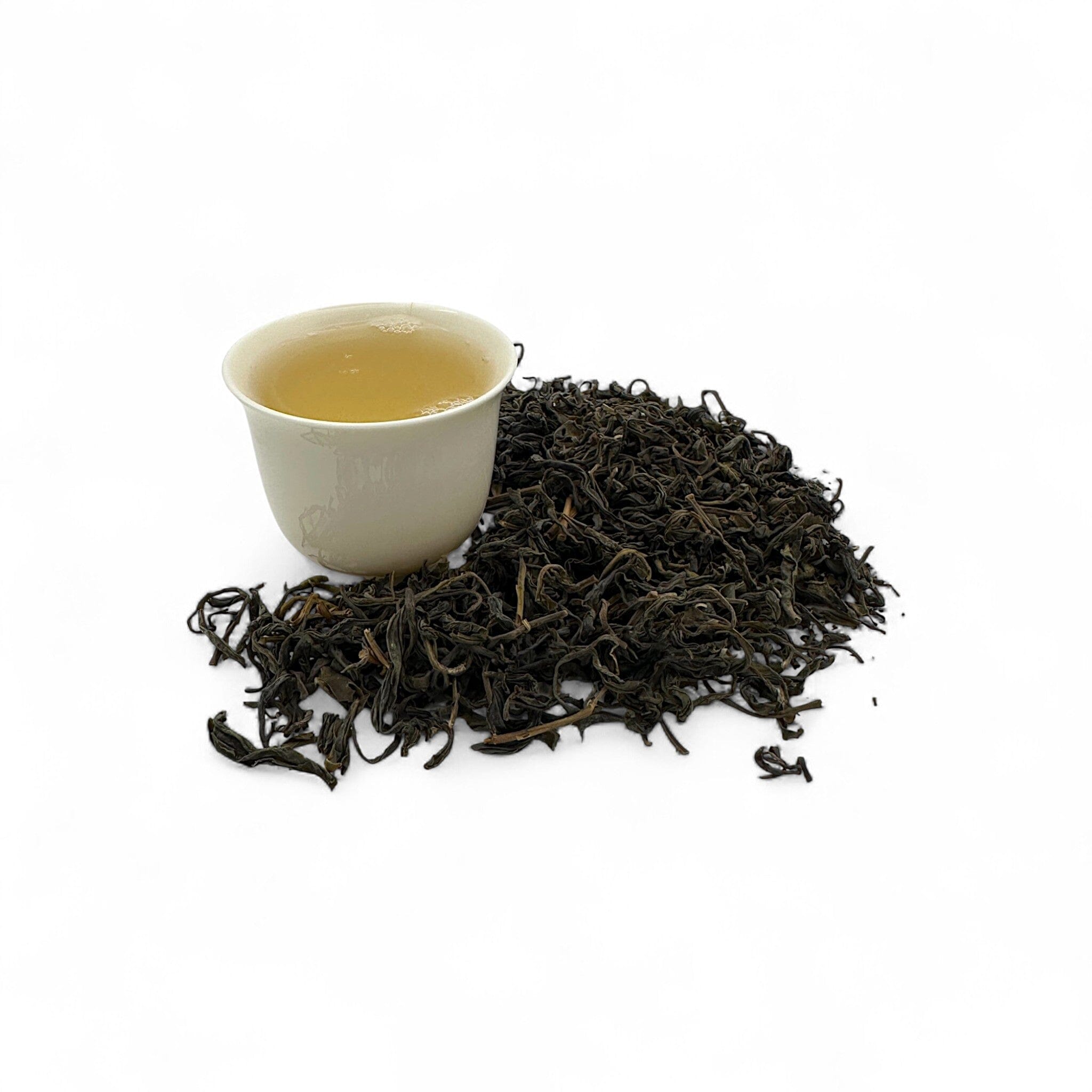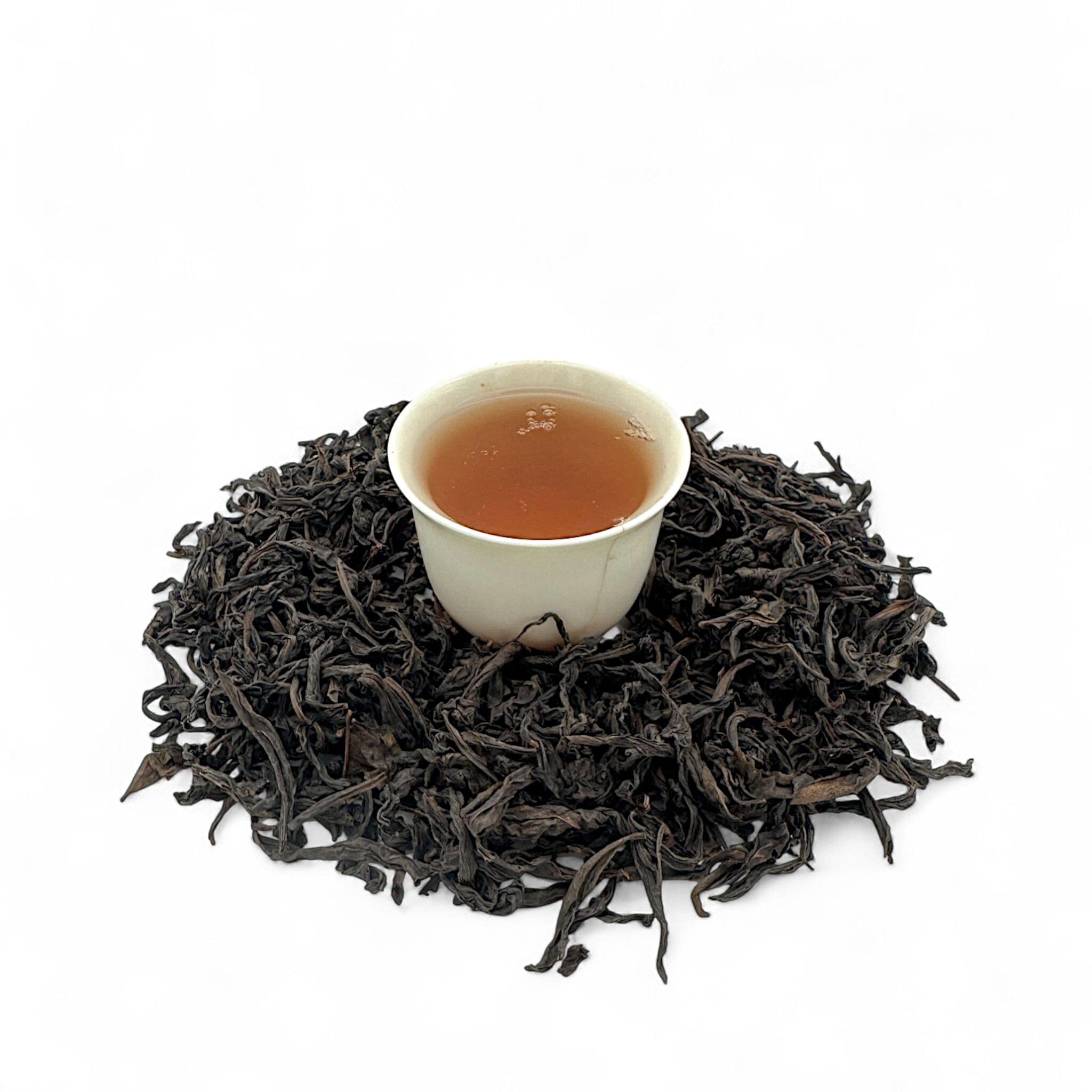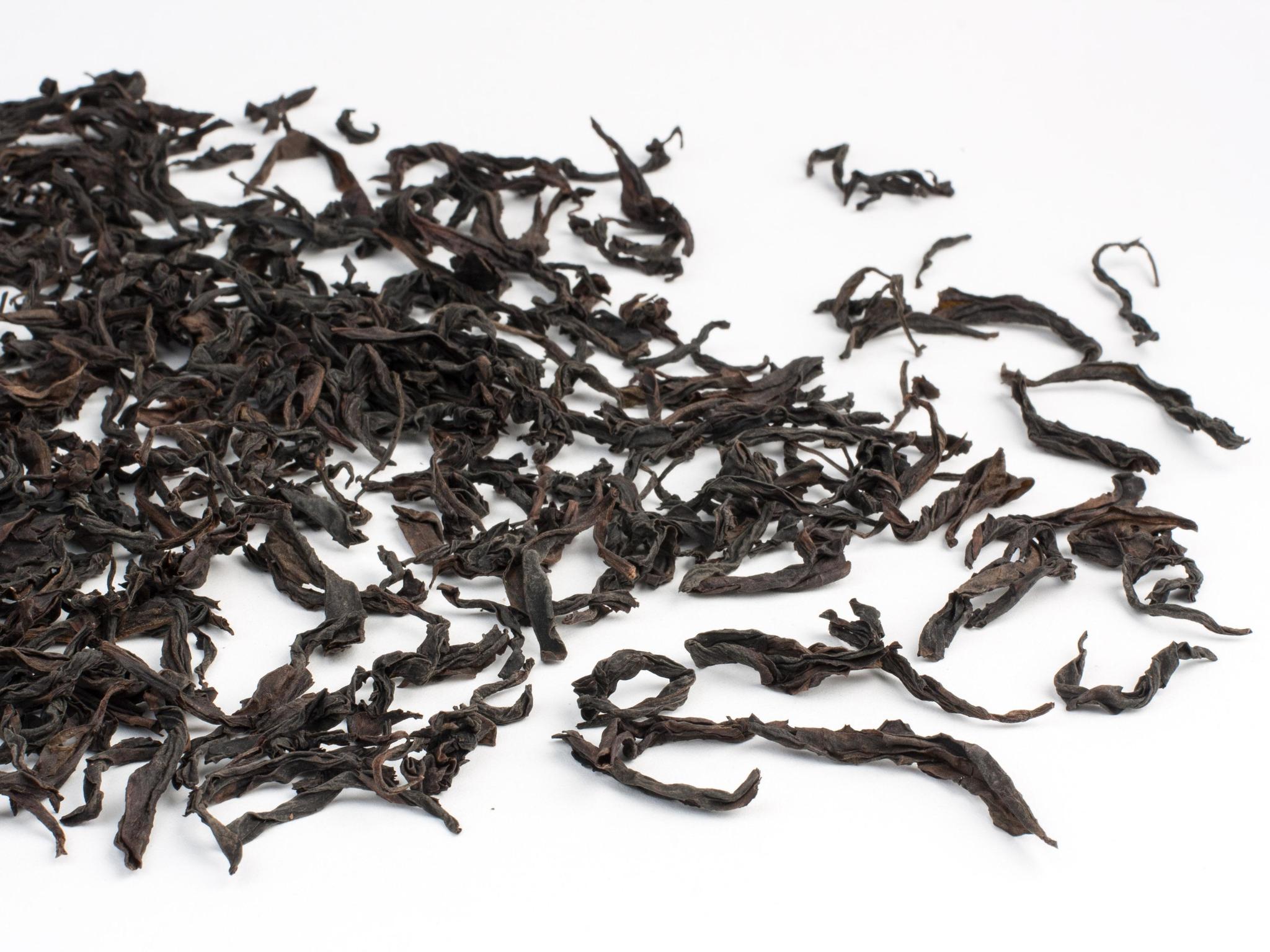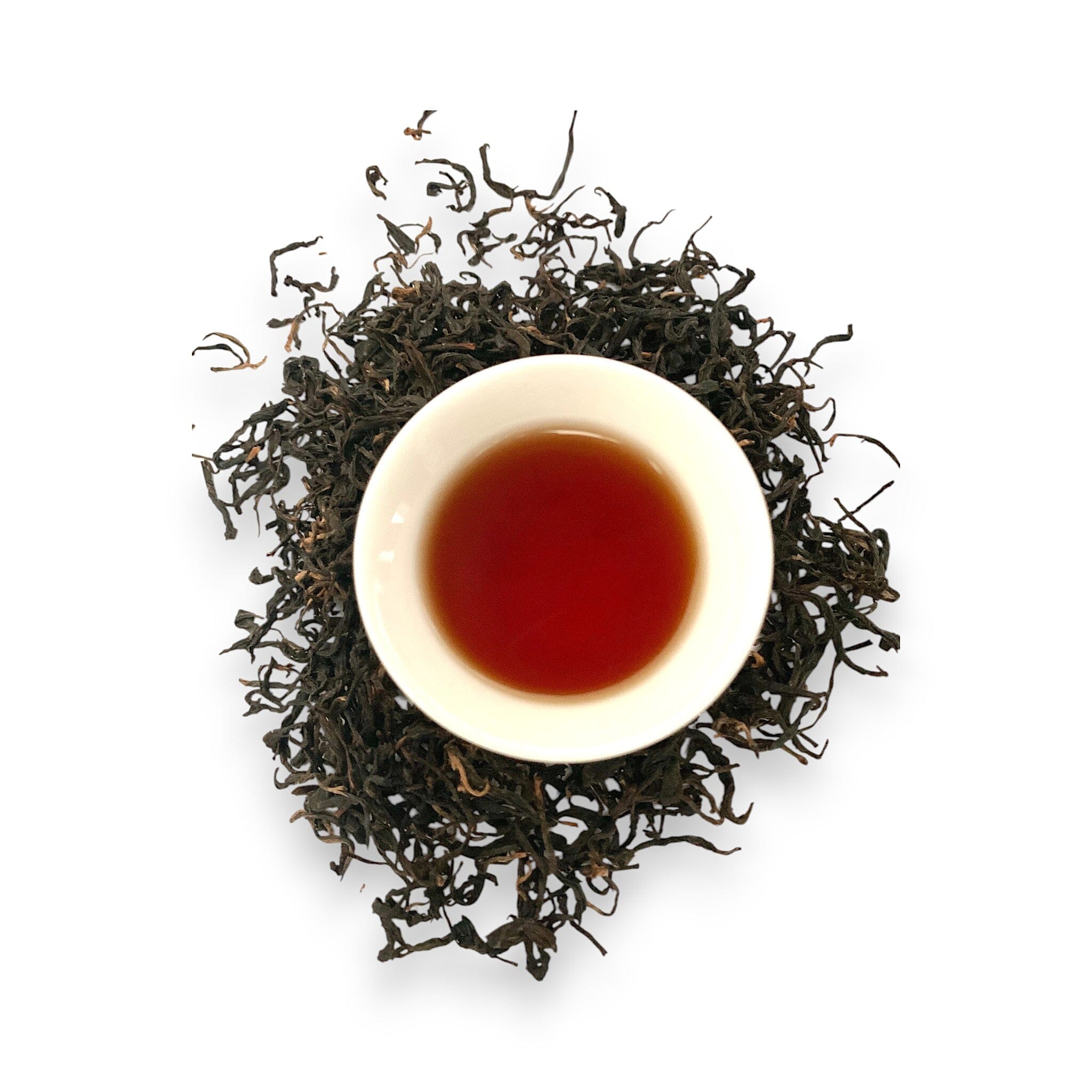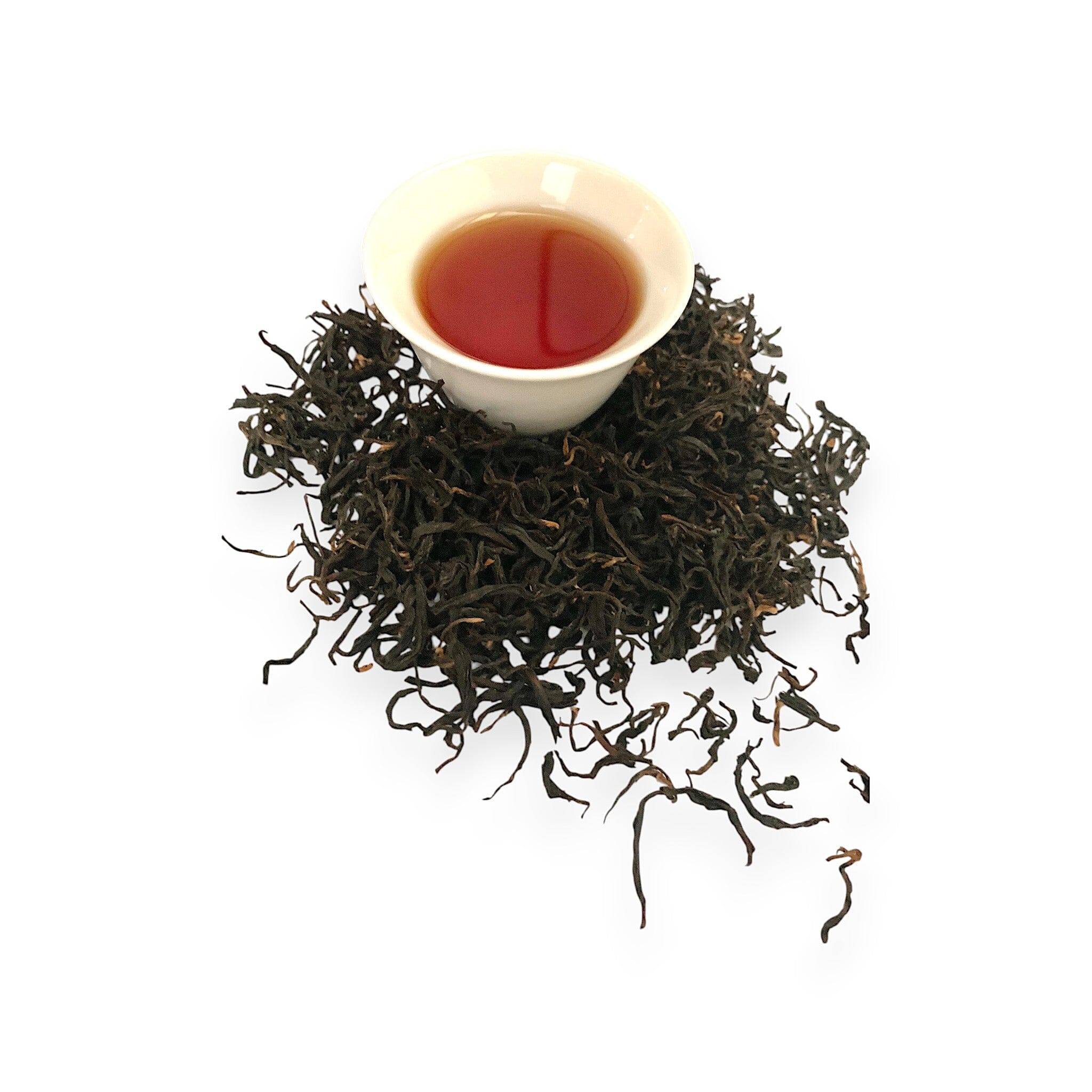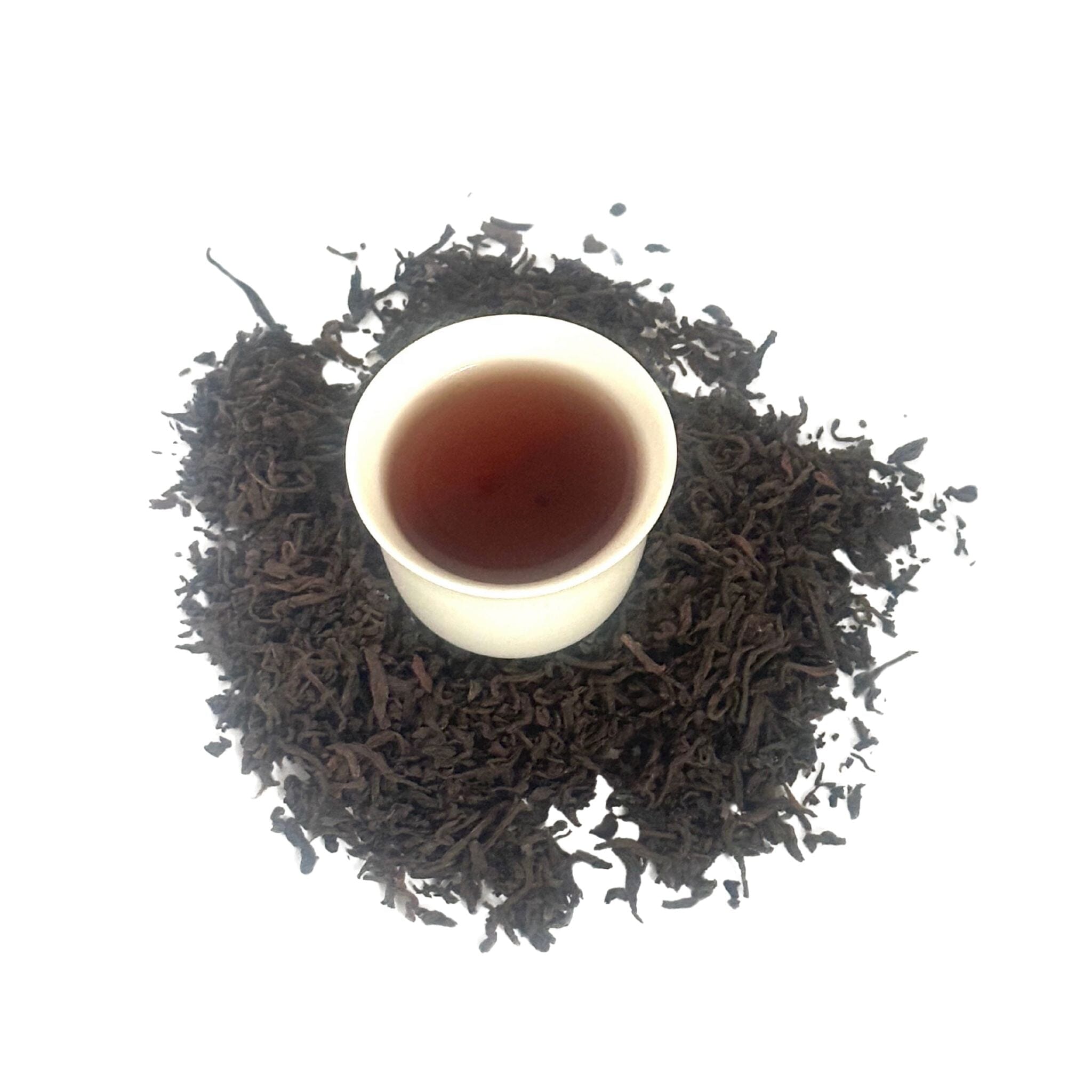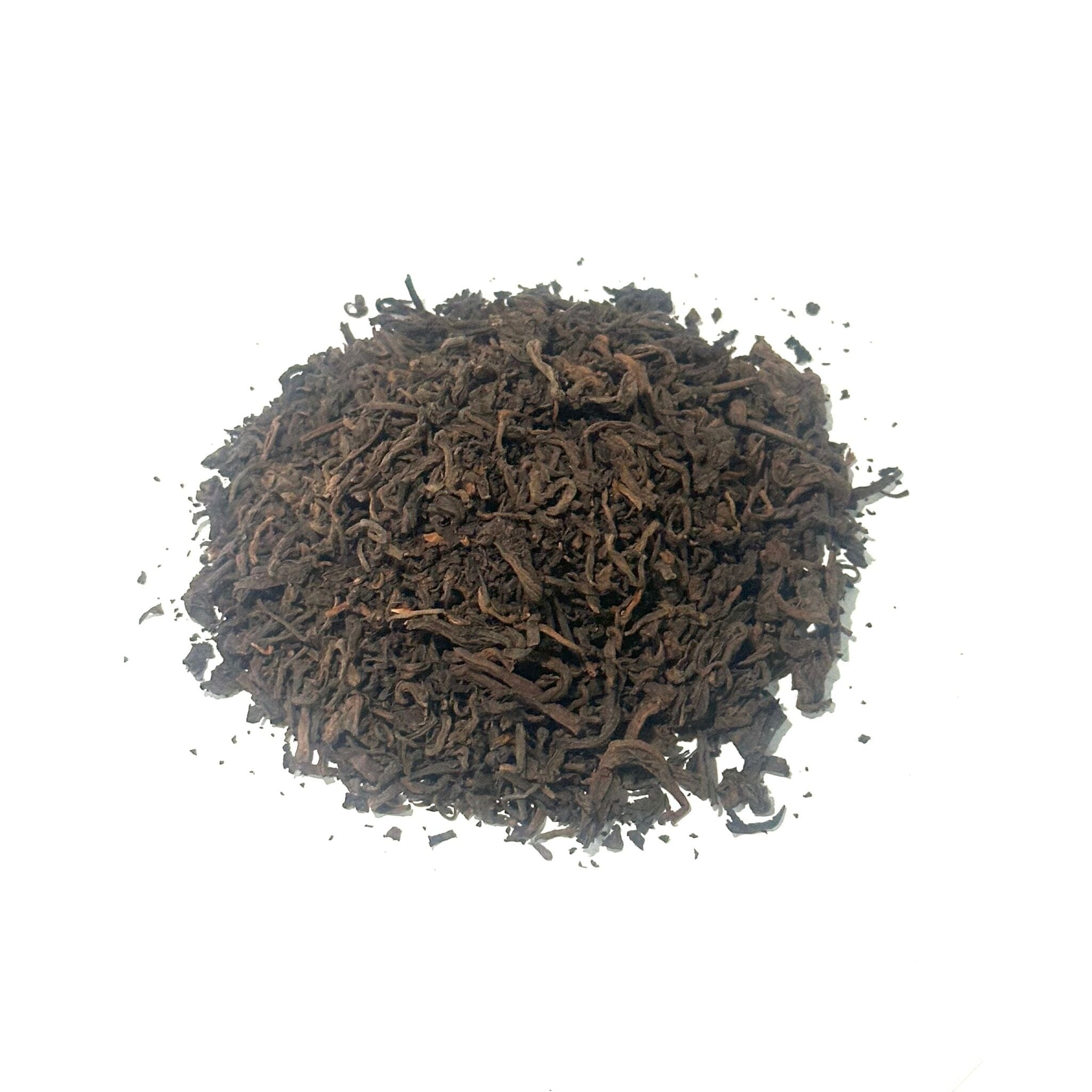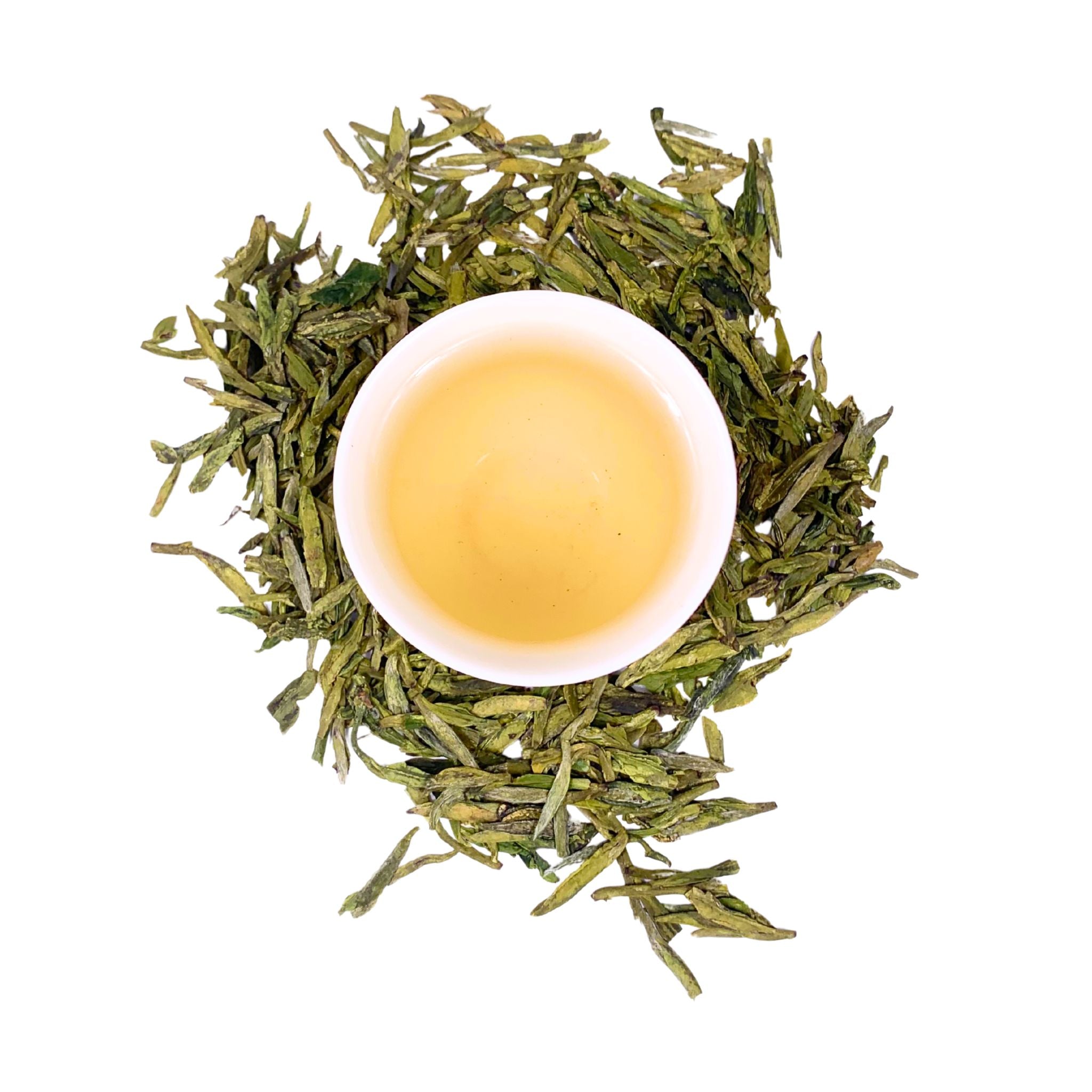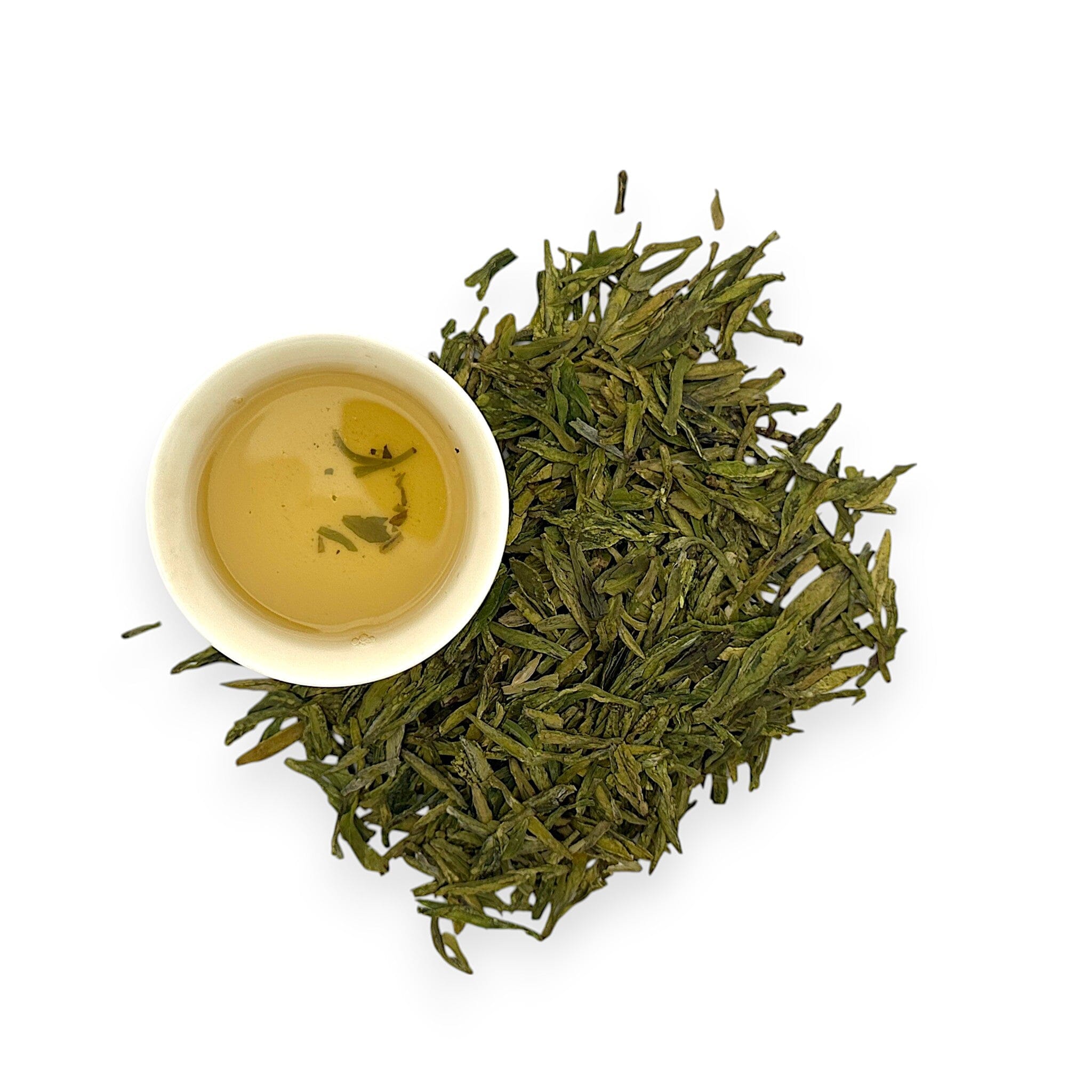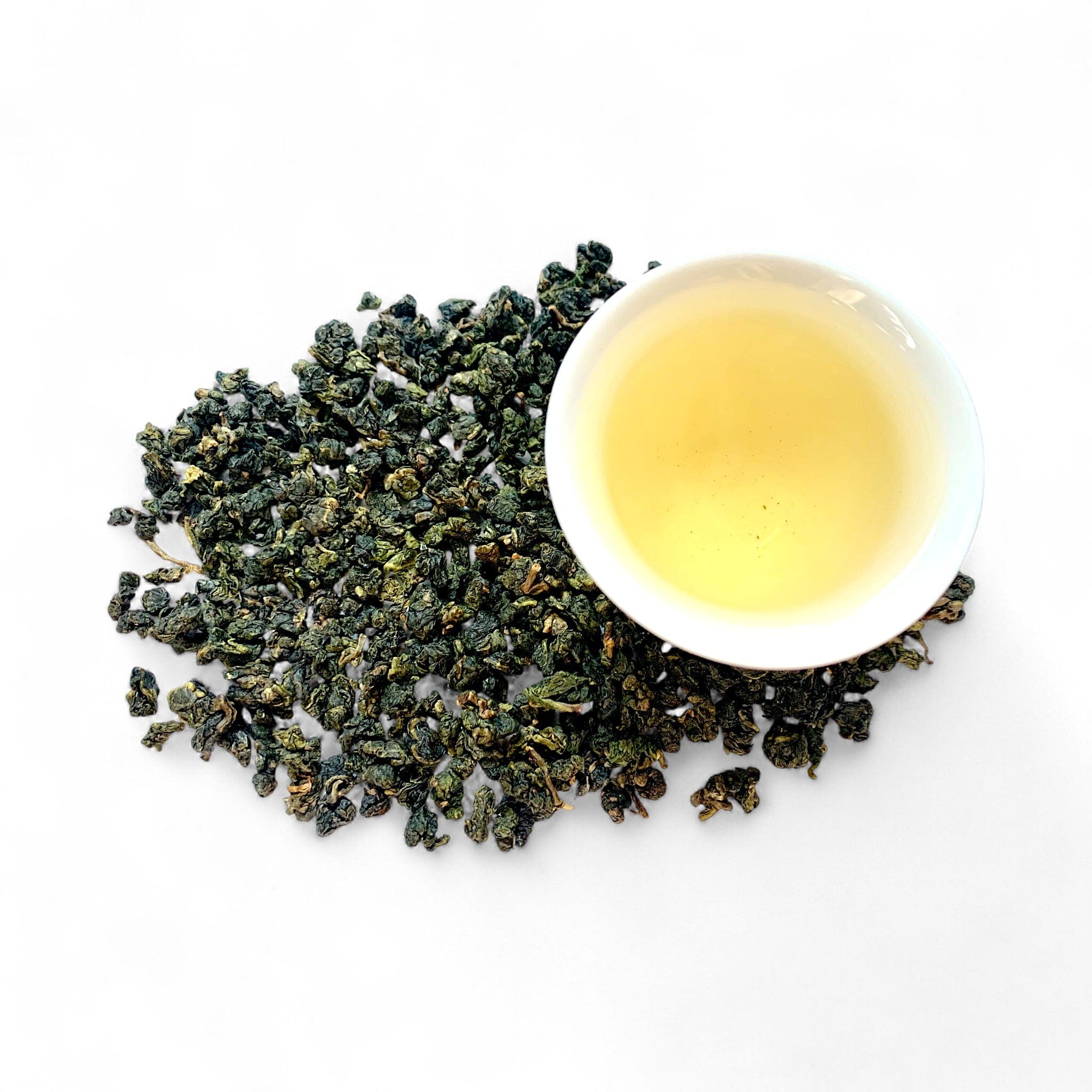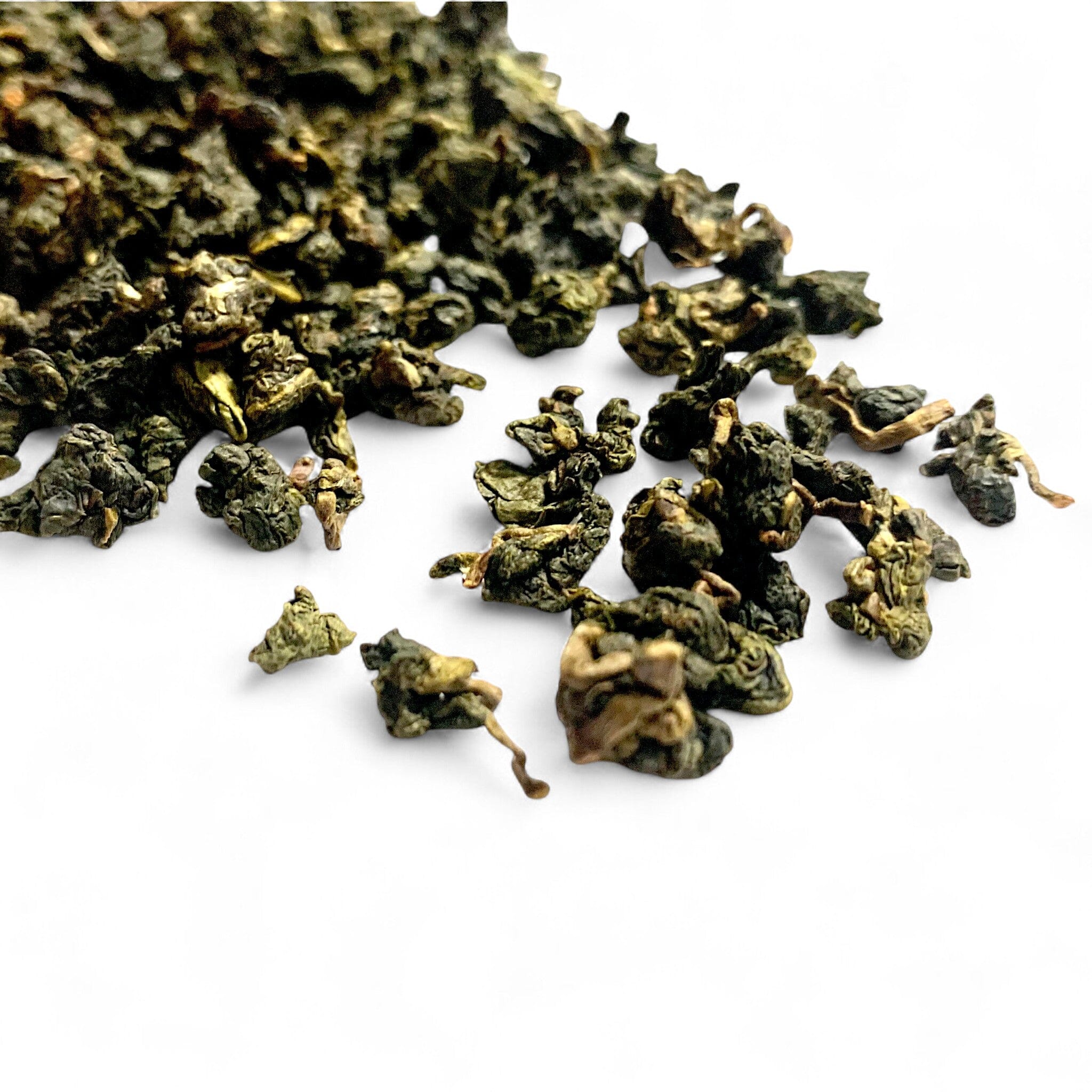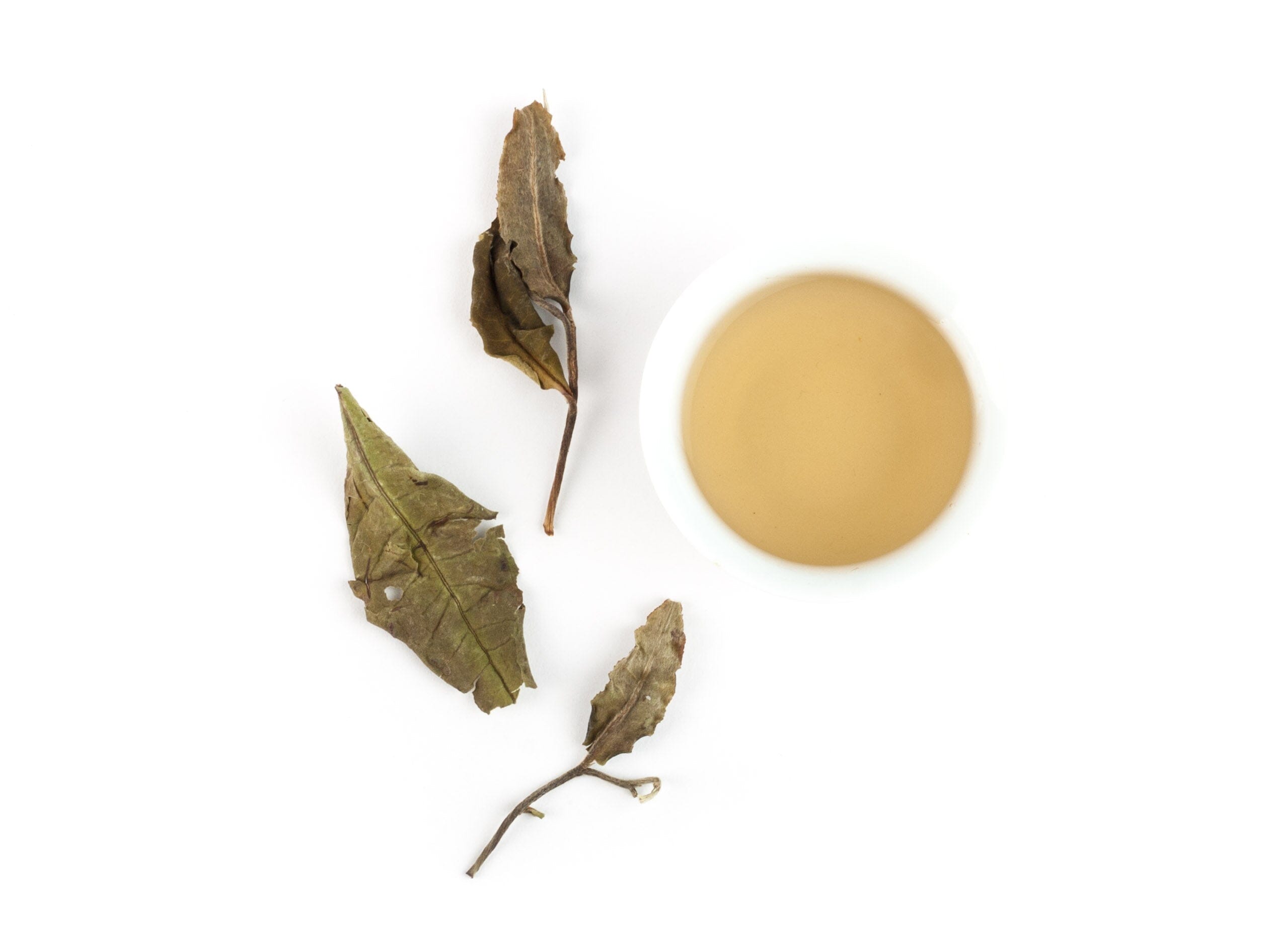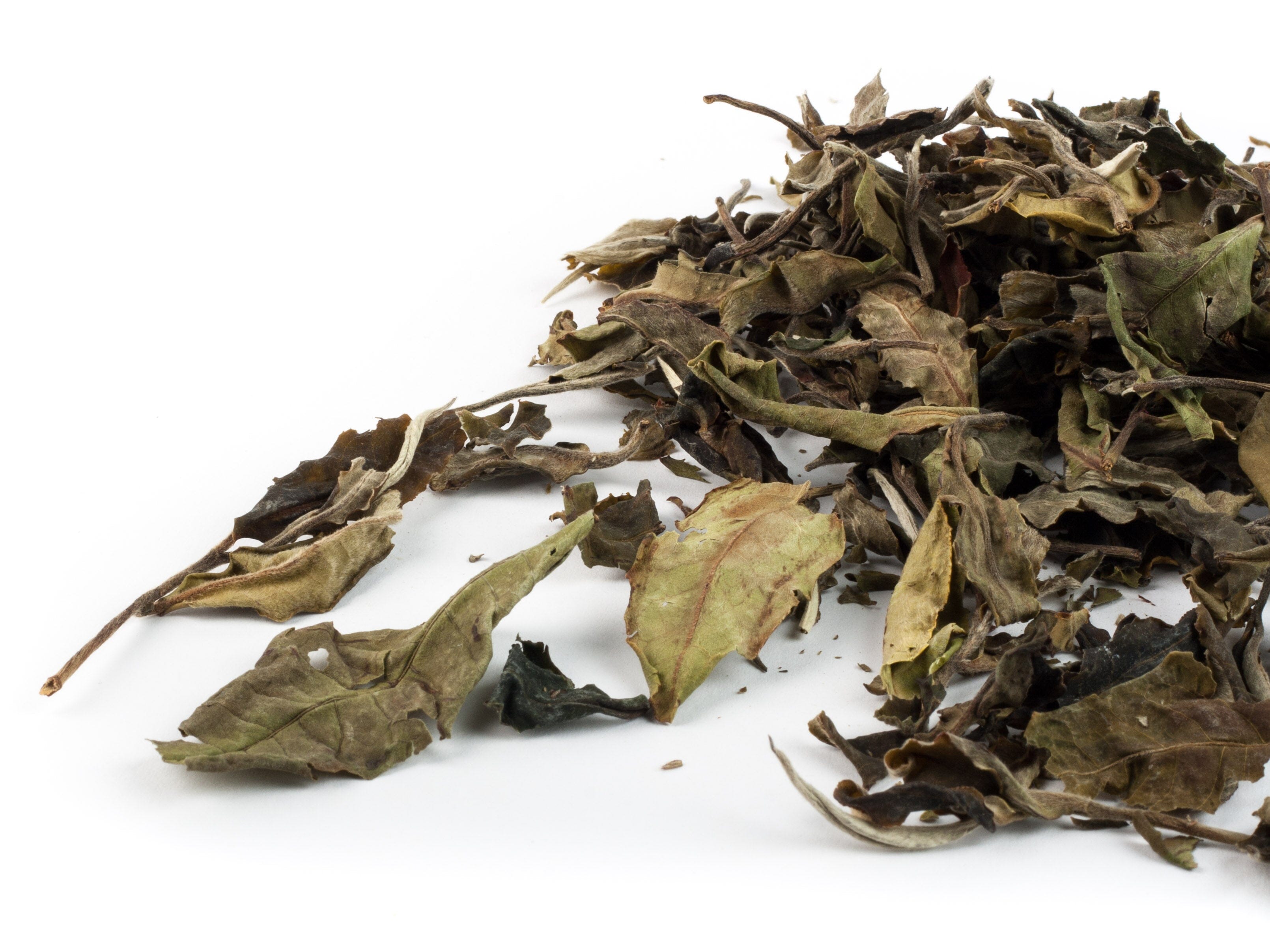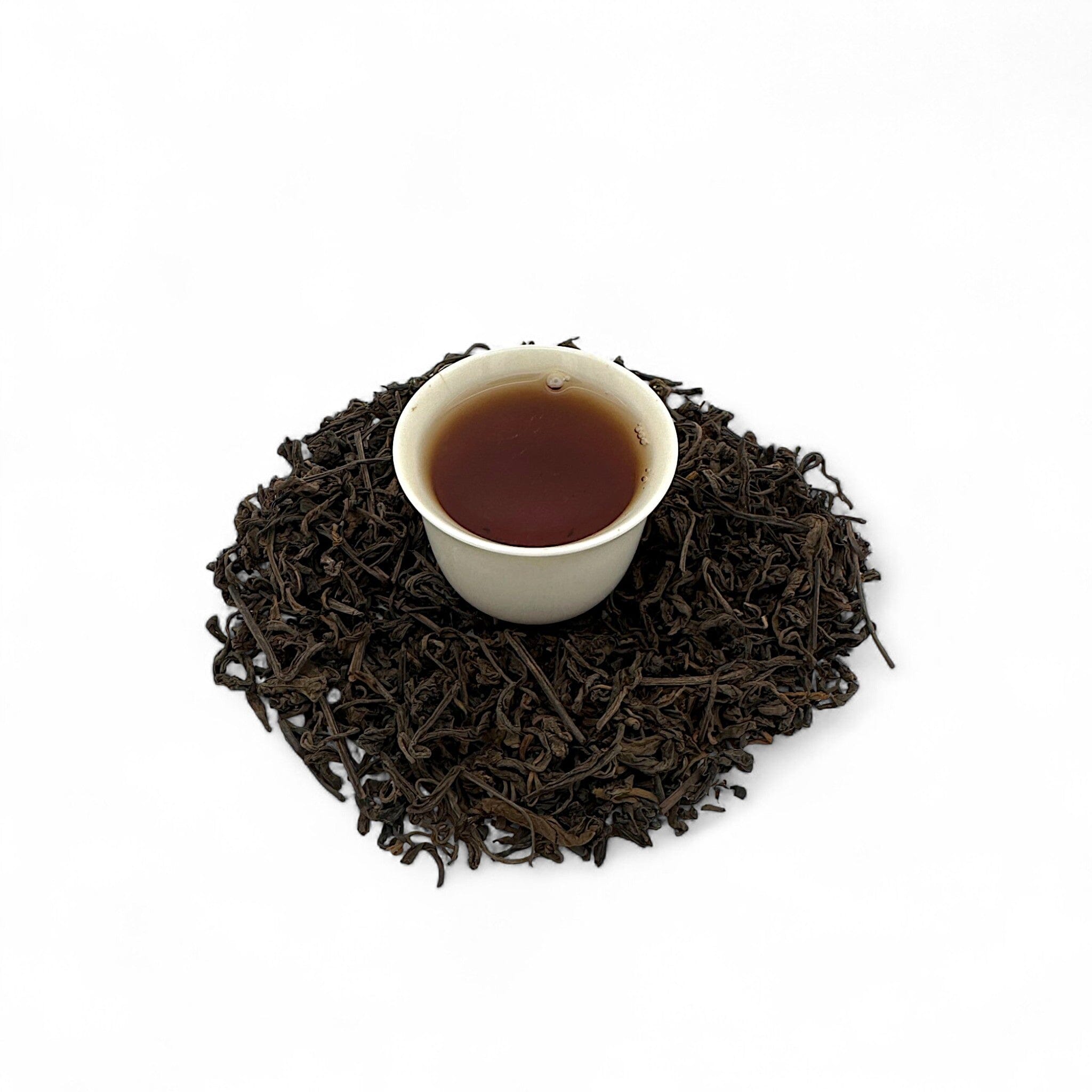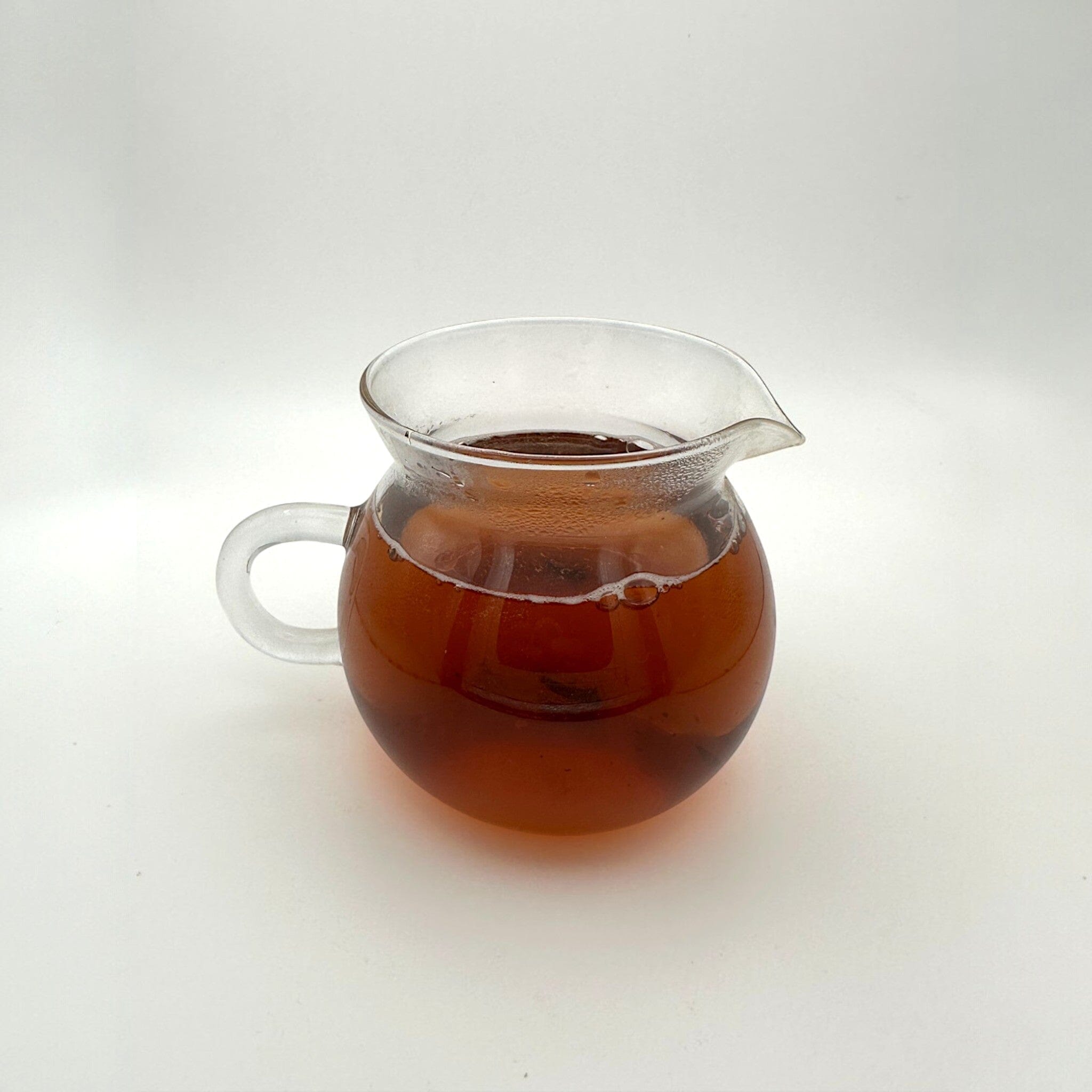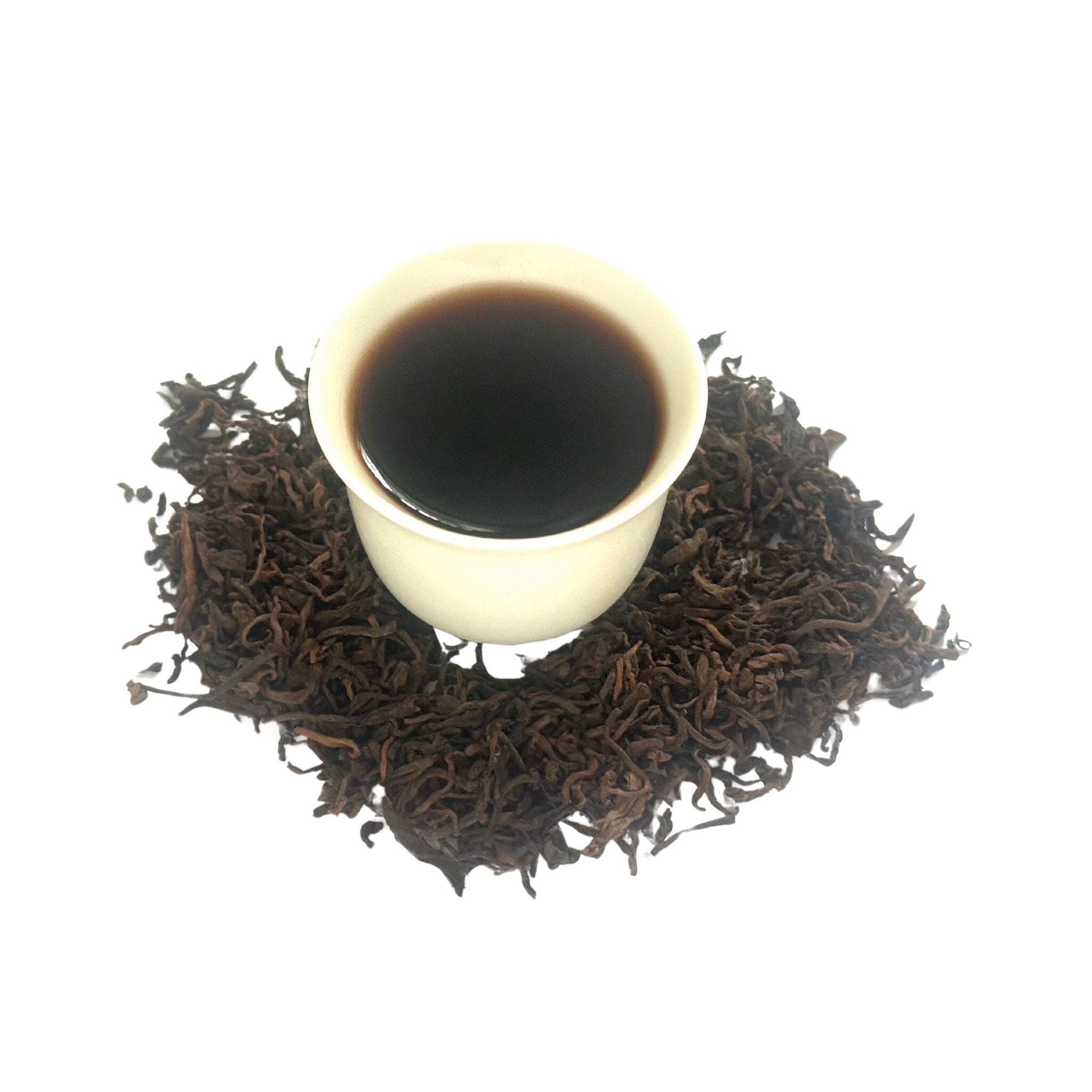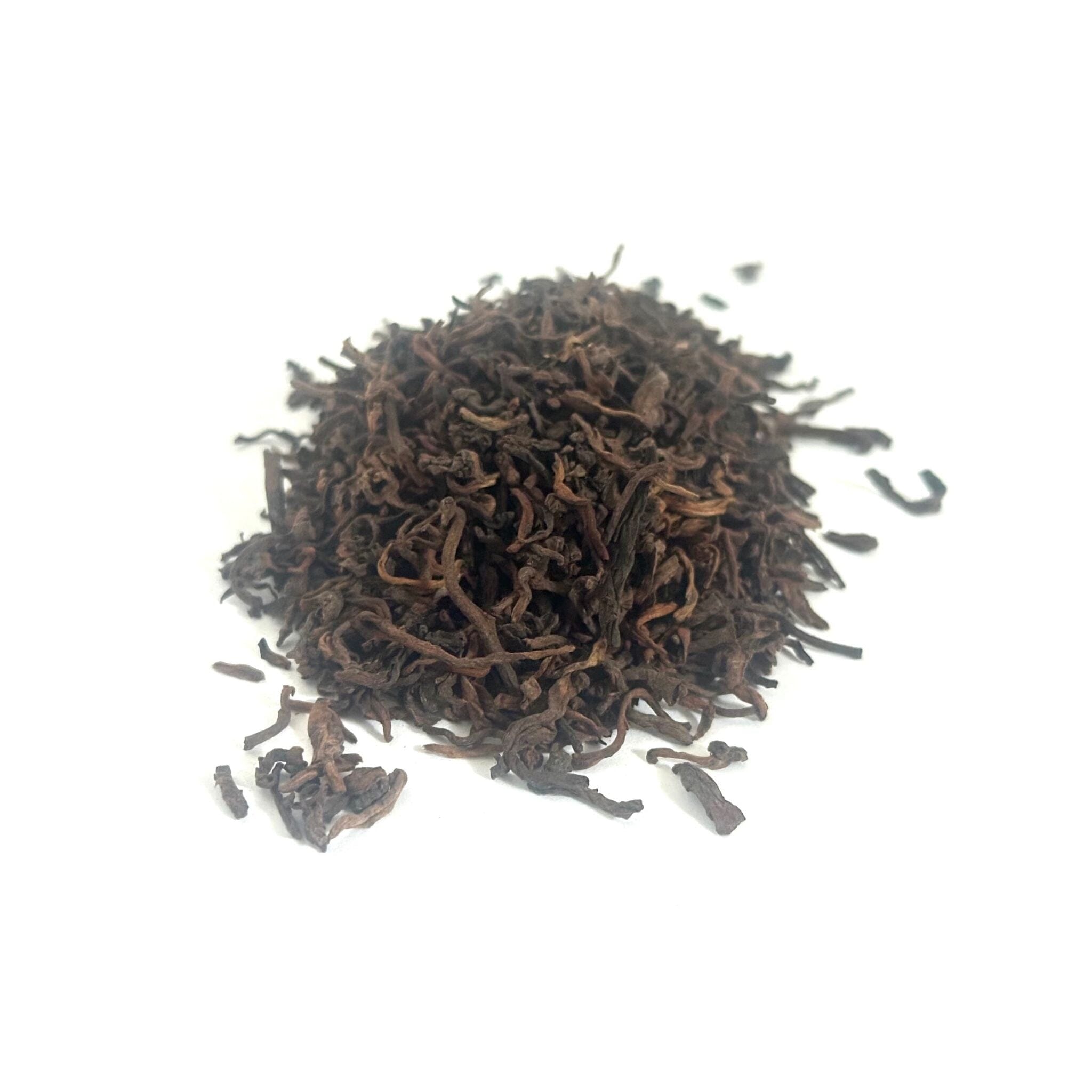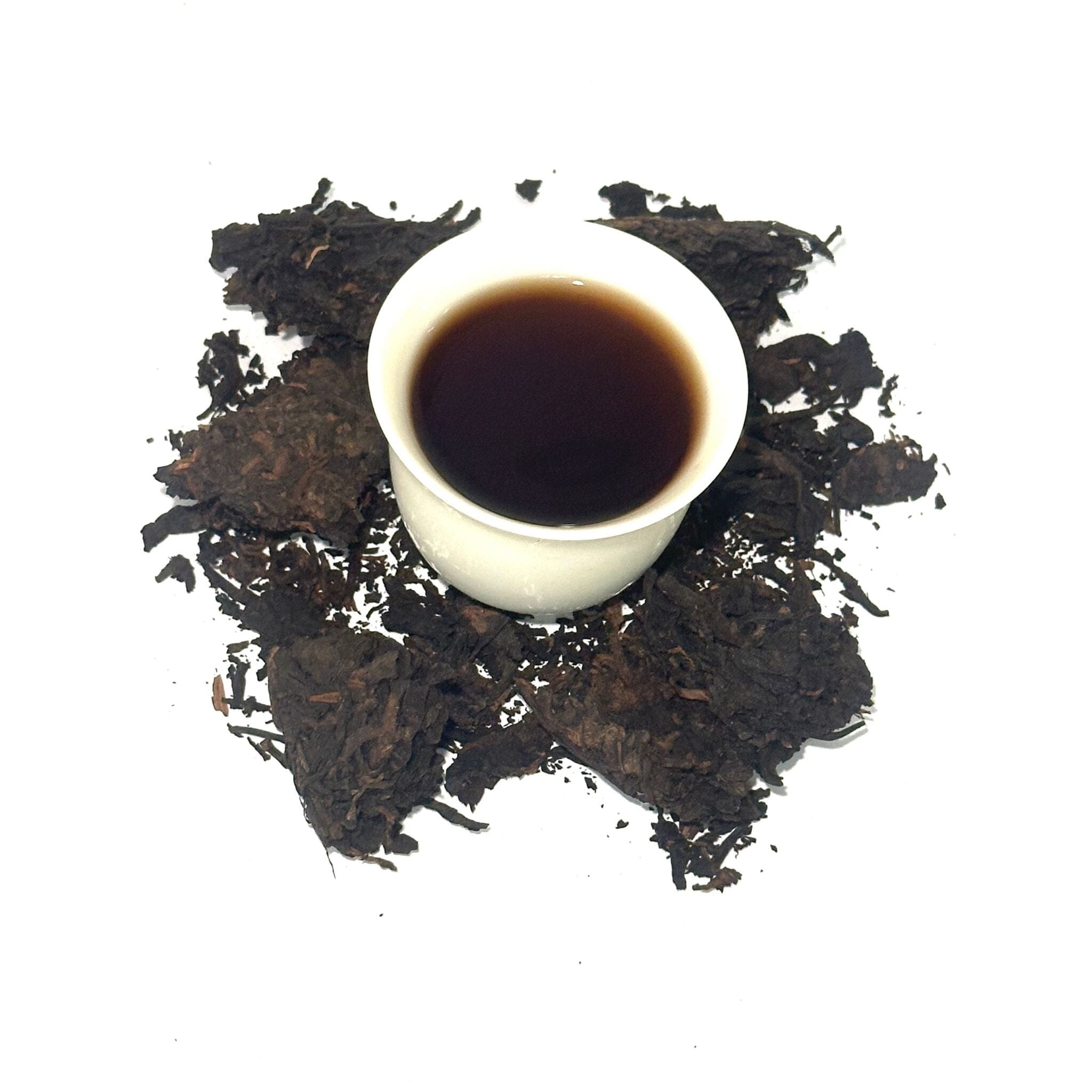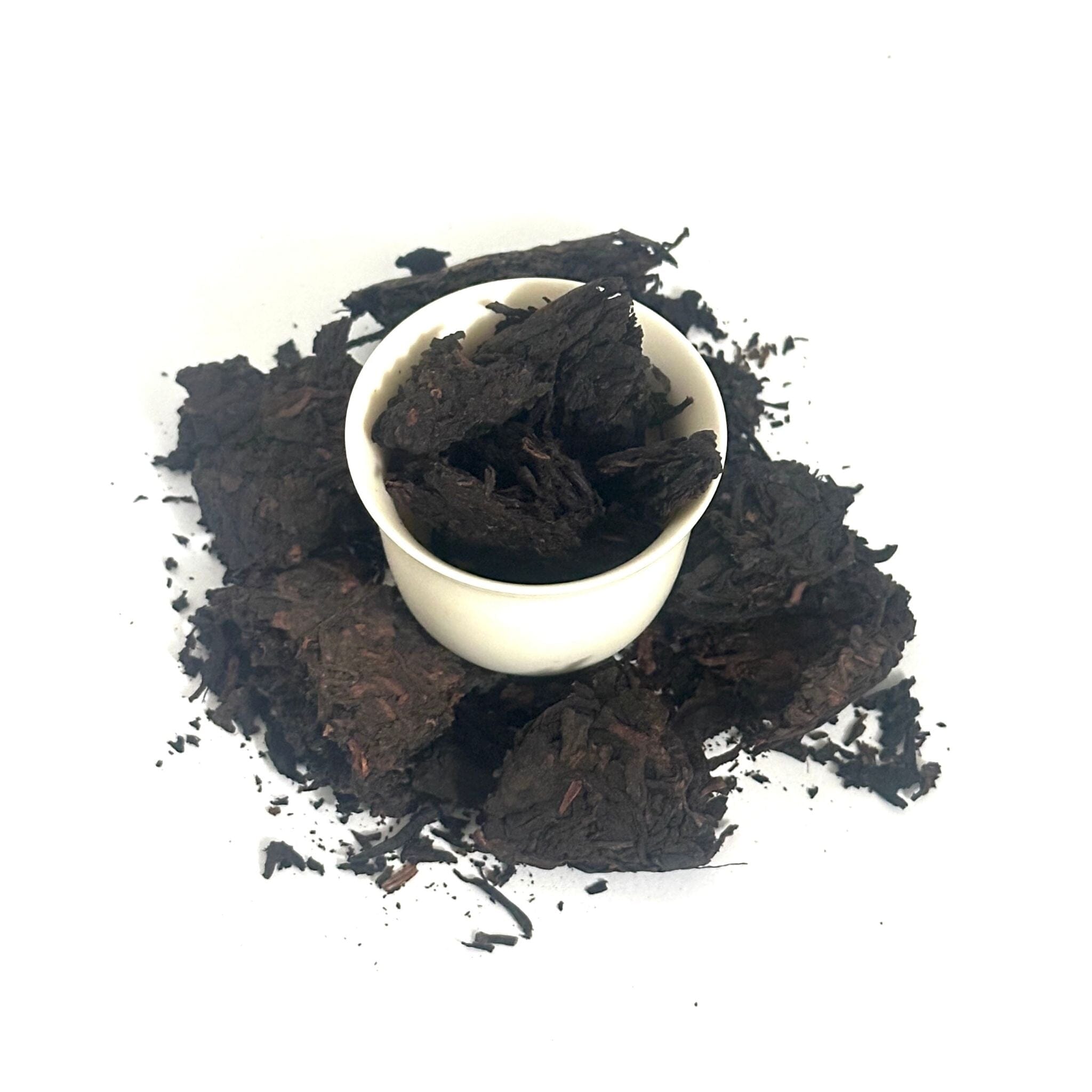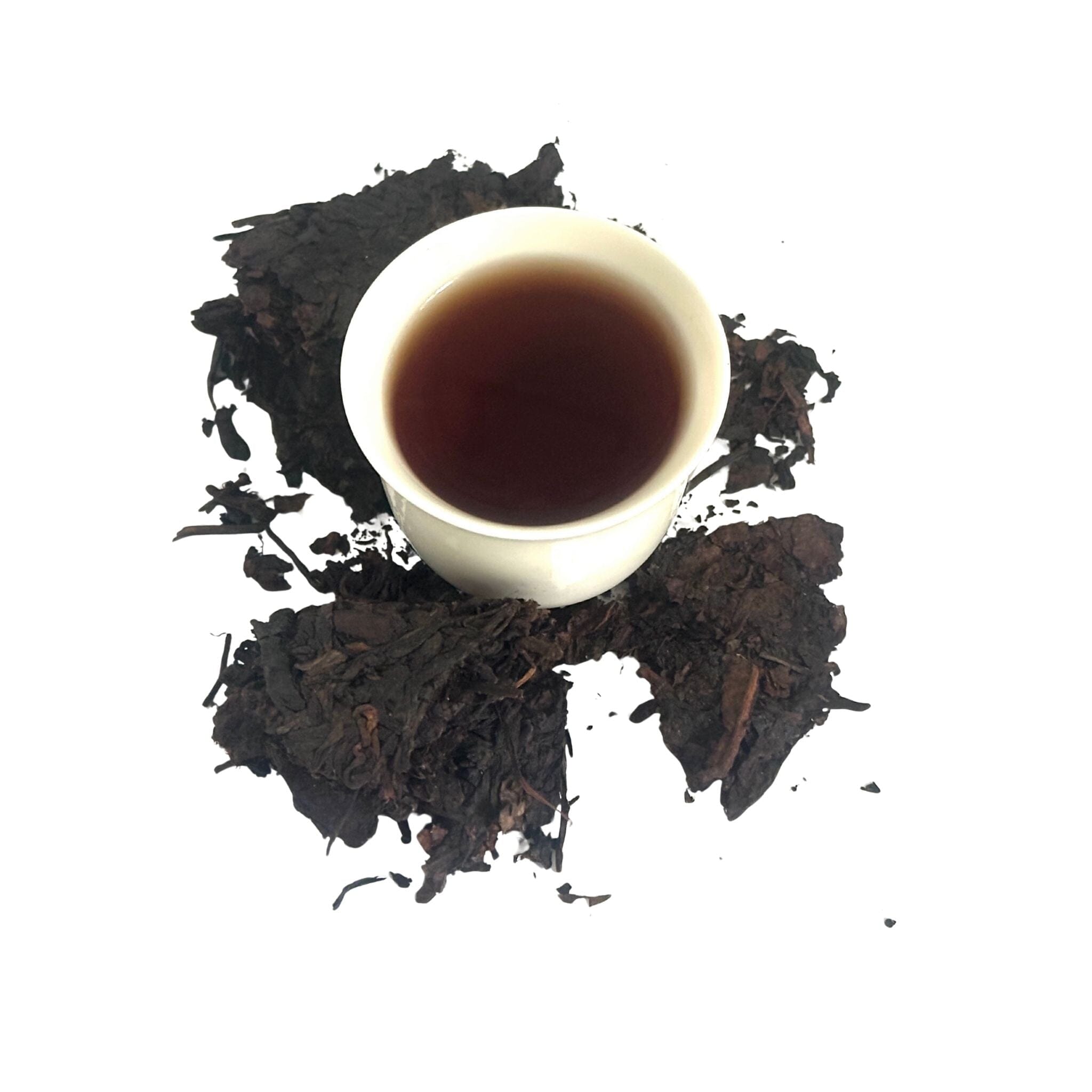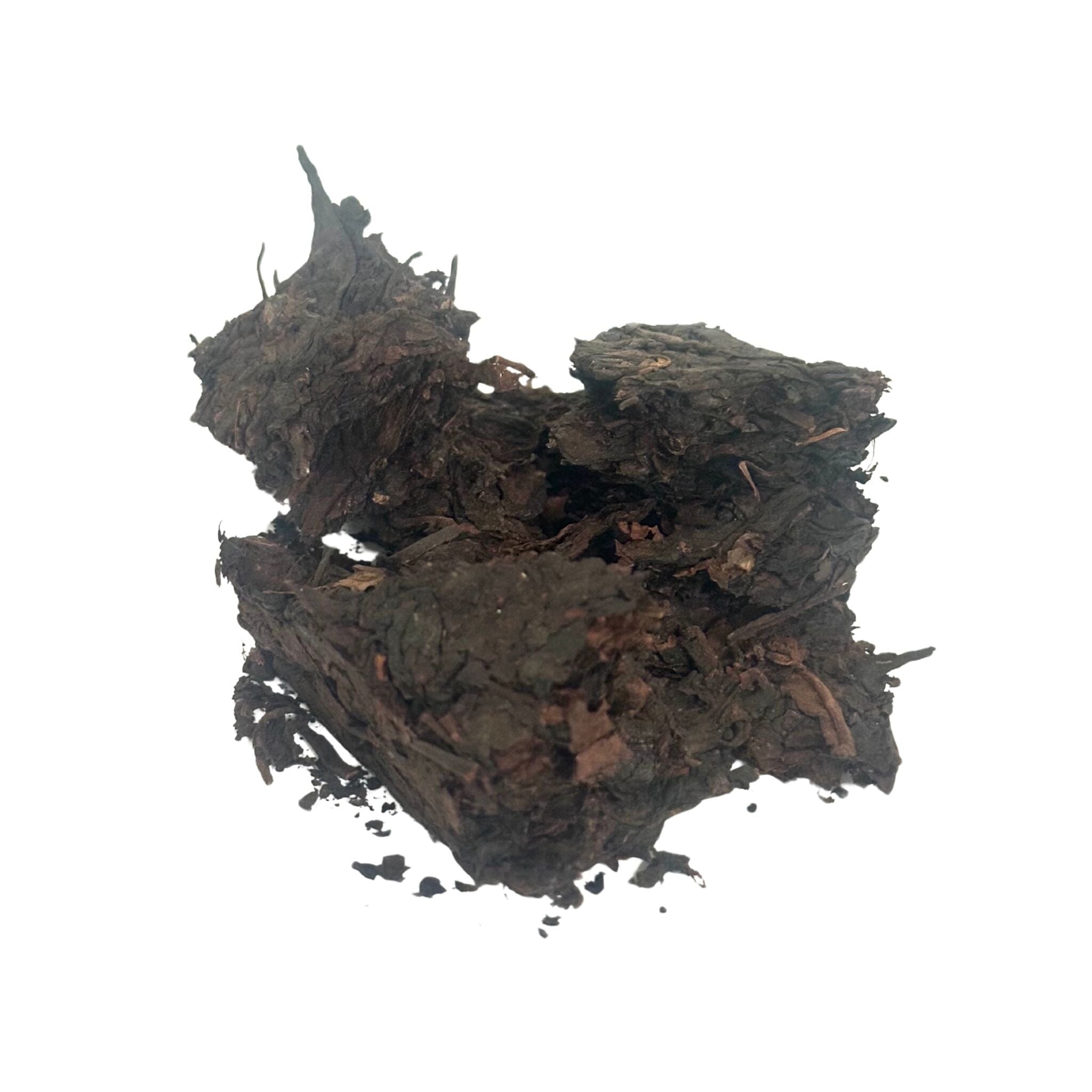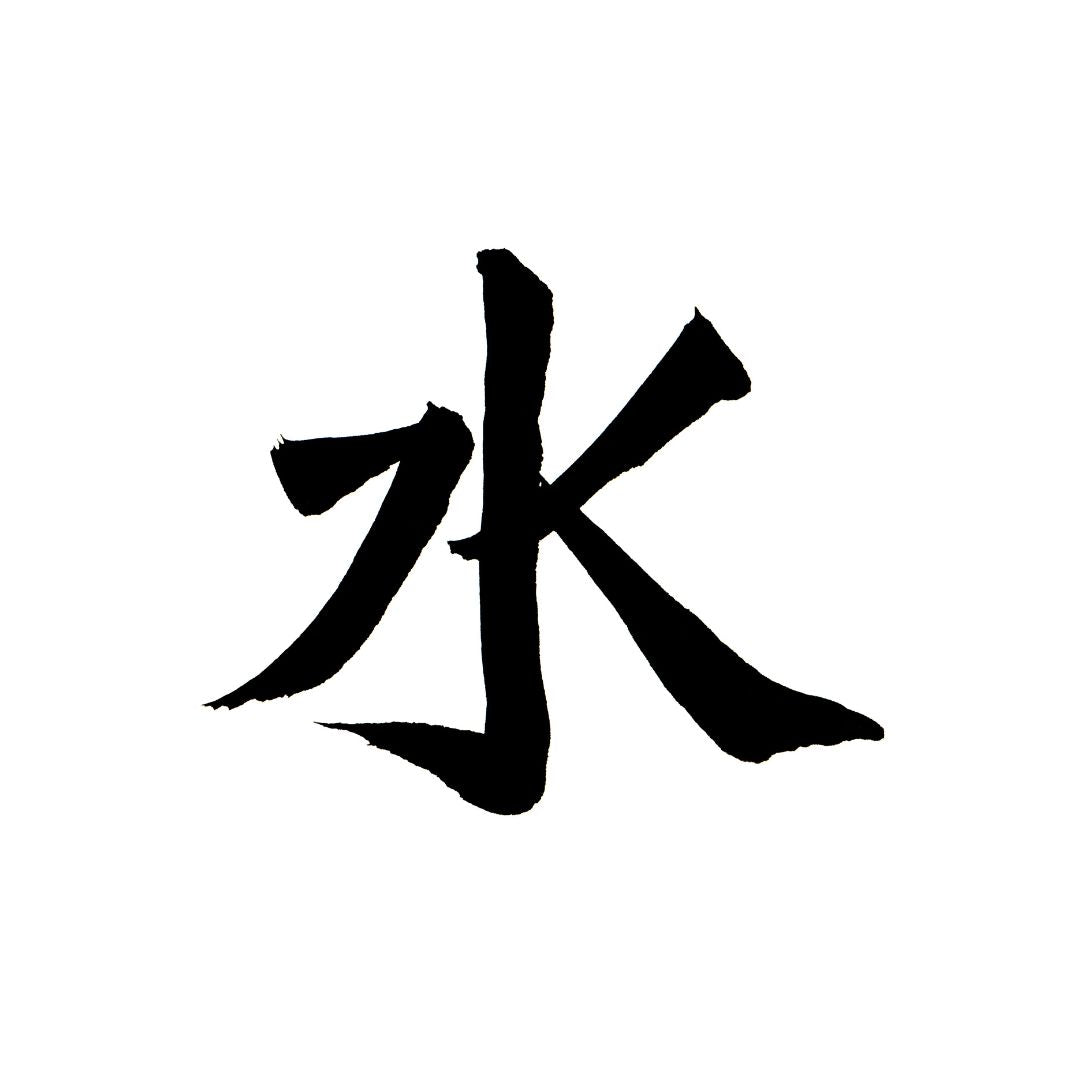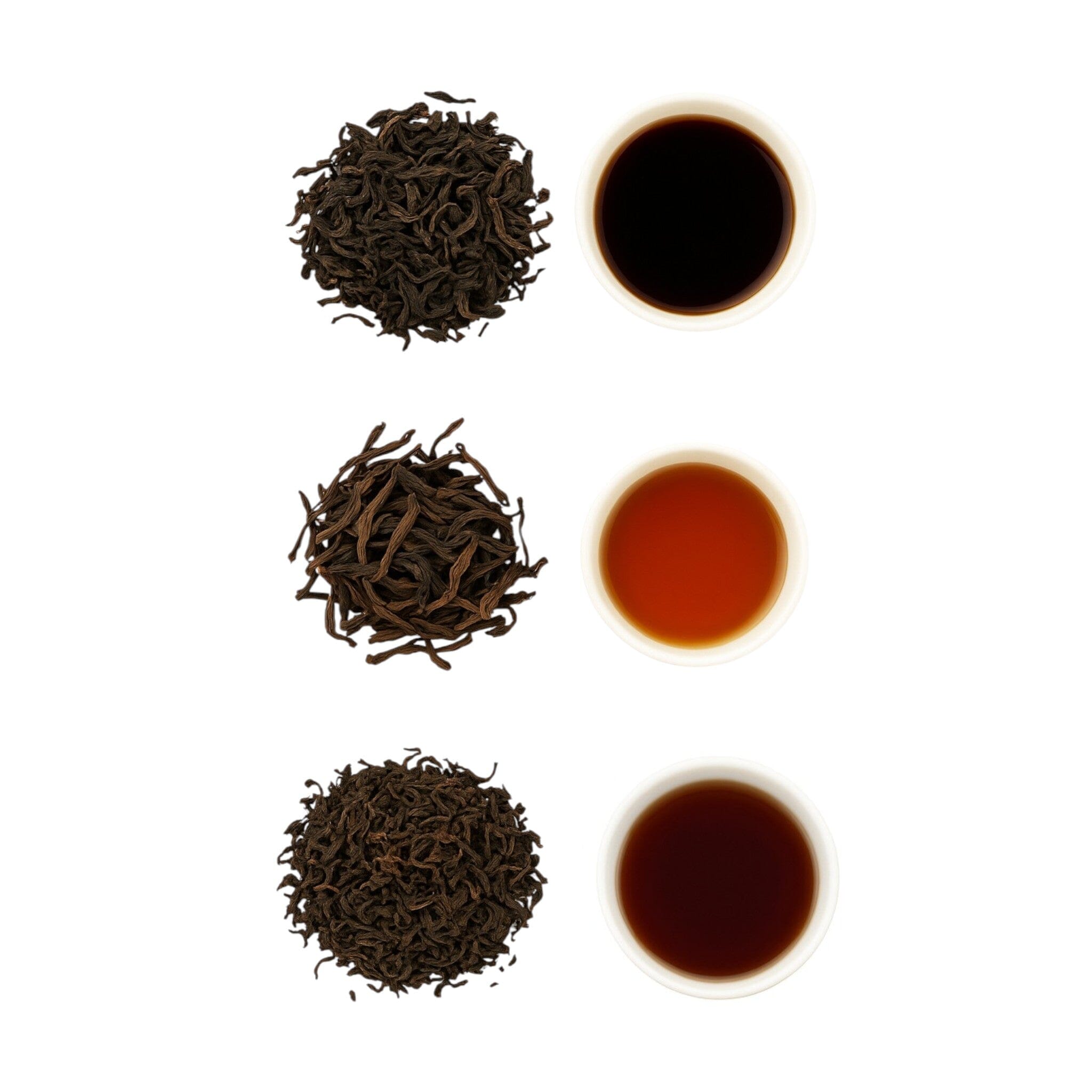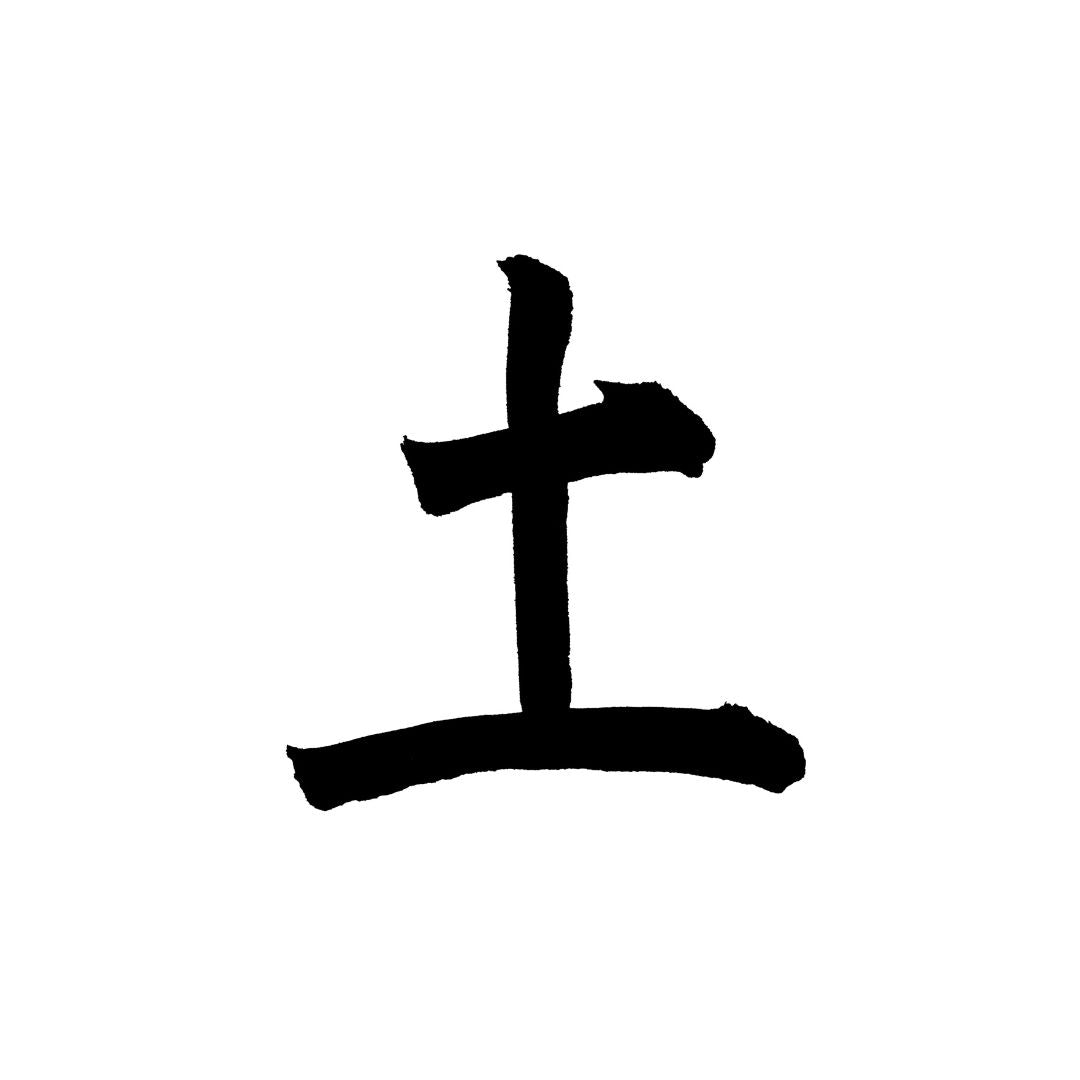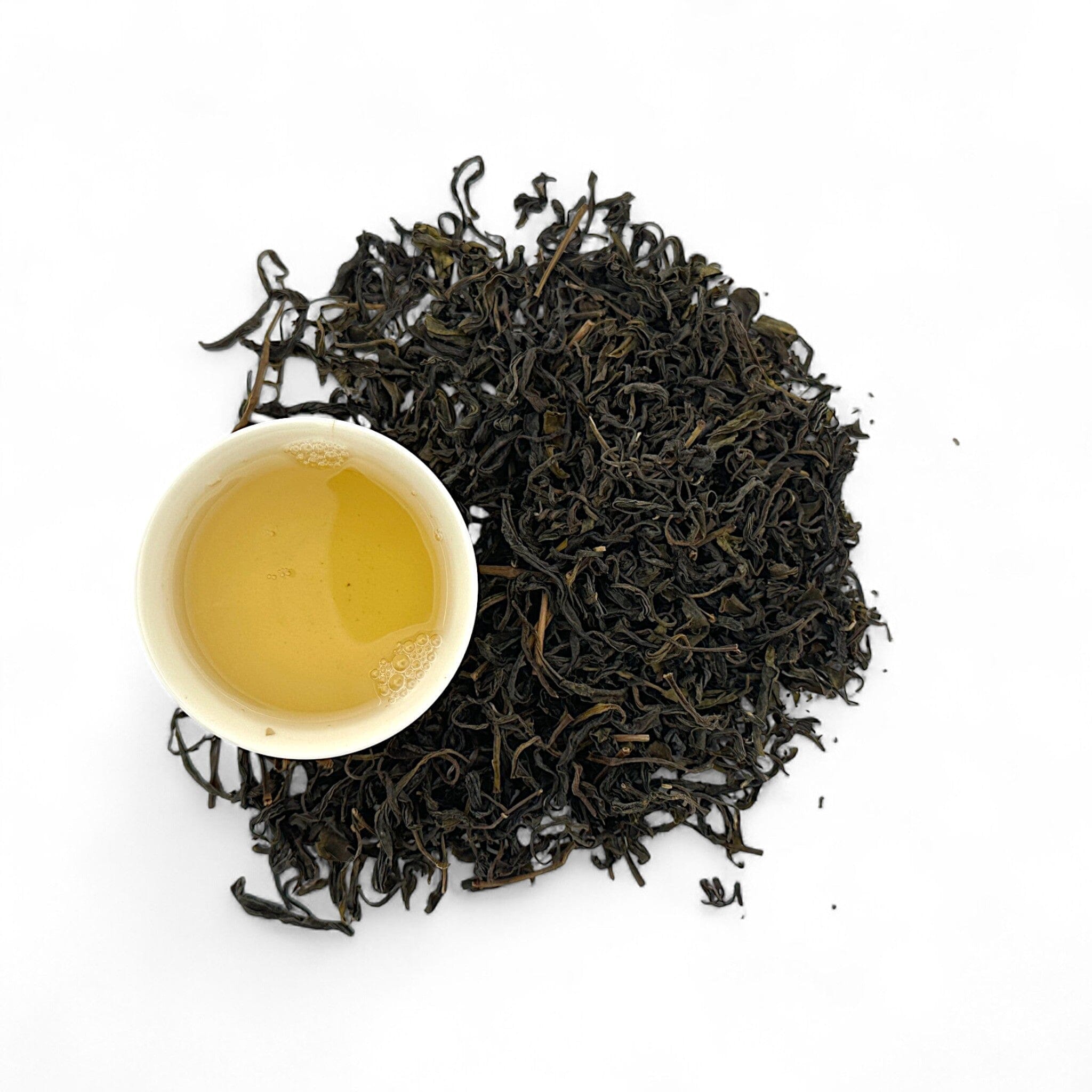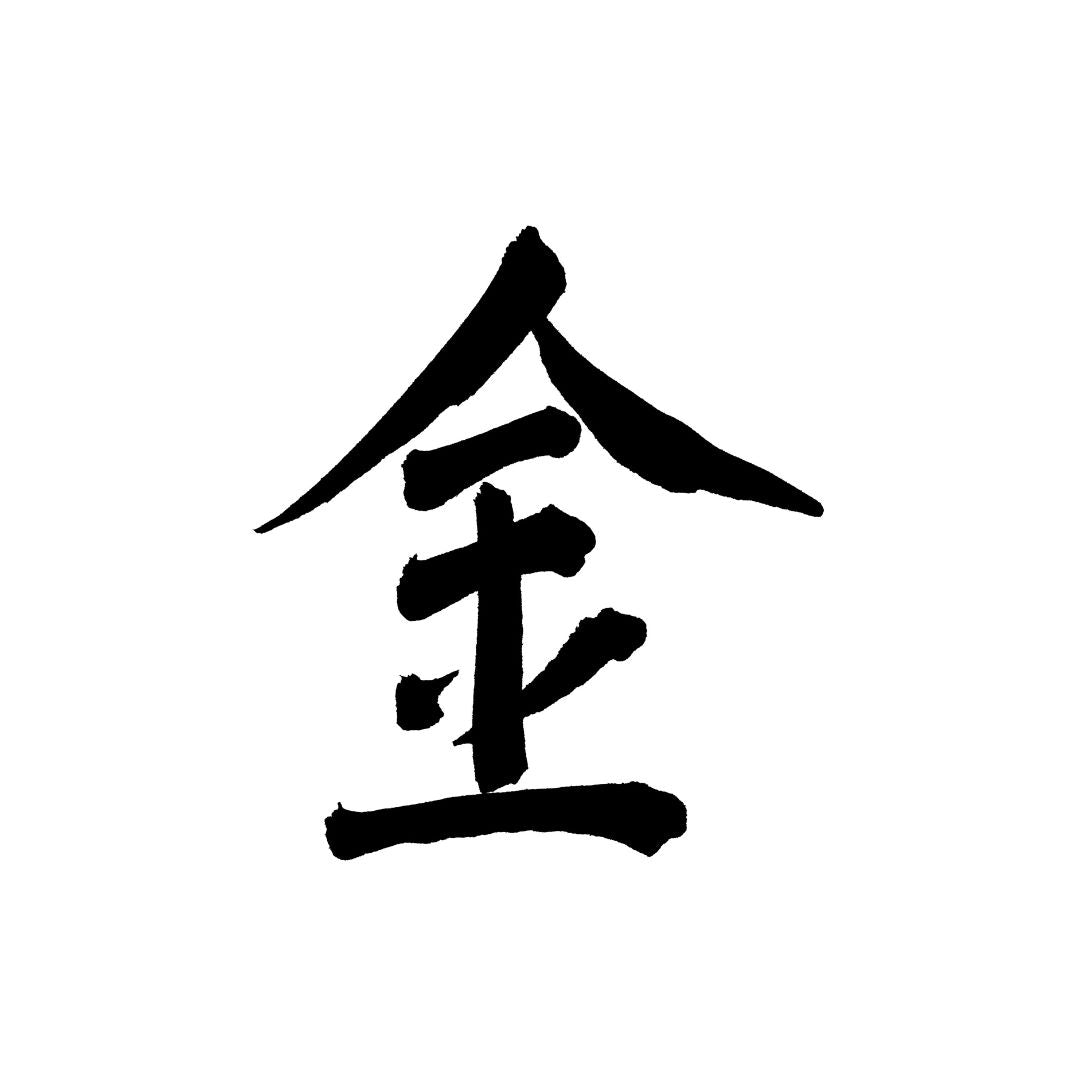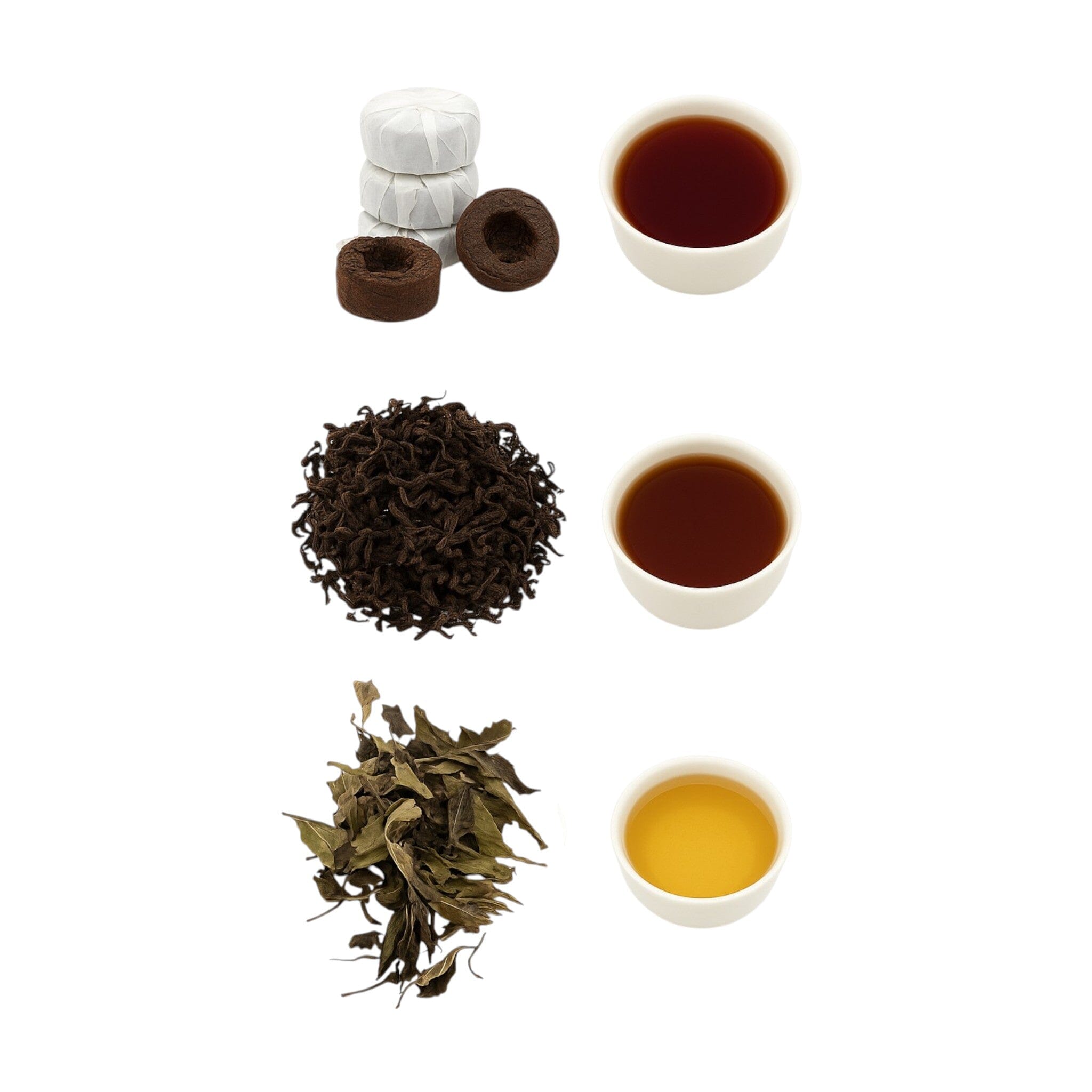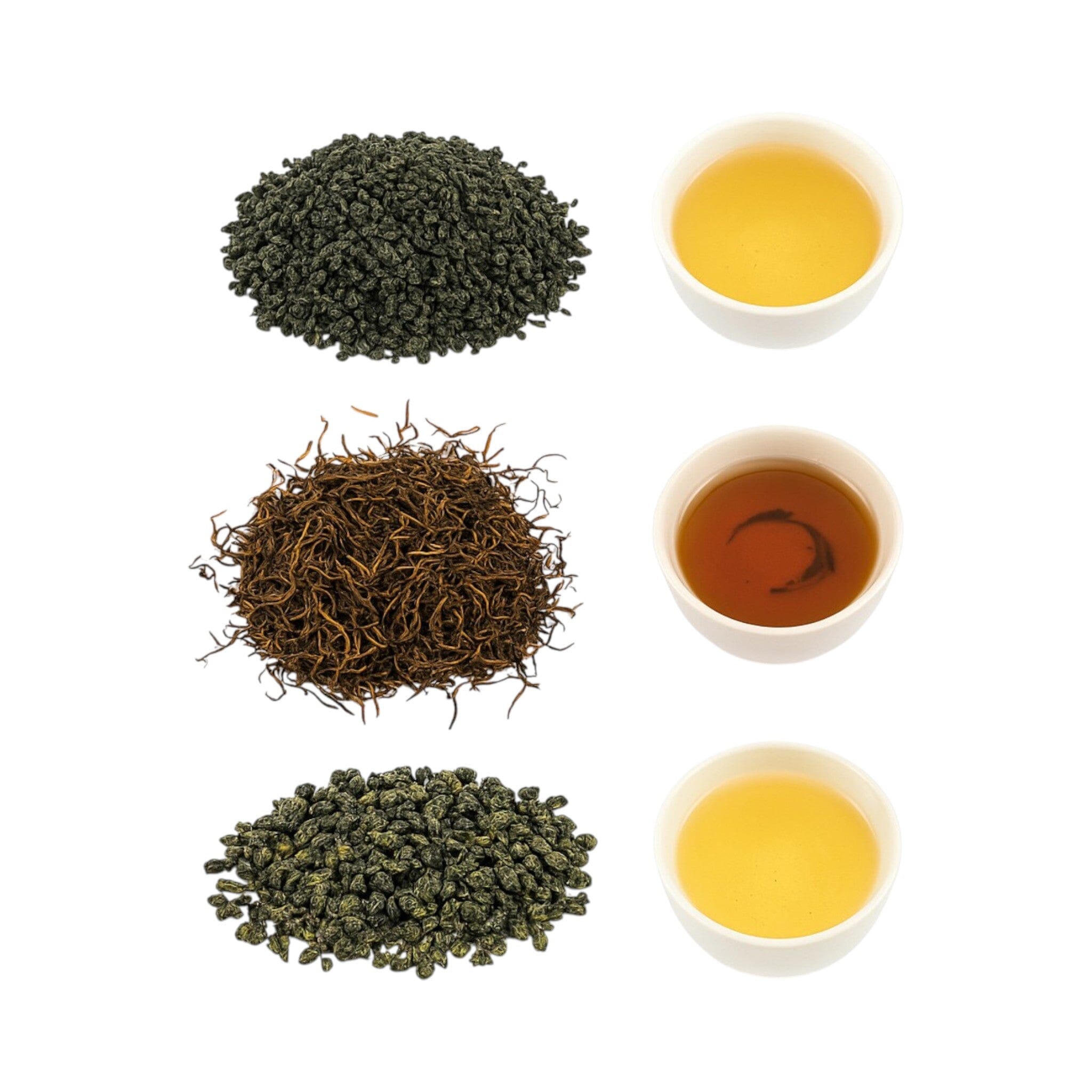Tea for Sore Throat
White tea is one of the most delicate tea type because it is minimally processed. The leaves are picked very carefully so as not to bruise and oxidize the tea. The flavor is light, elegant with slight nutty notes and floral fragrance. It is a very mild, gentle, meditative tea.
Unlike black teas, green teas undergo minimal processing, preserving their natural antioxidants. Green tea is light and fresh with grassy or earthy undertones and can sometimes taste a bit bitter.
Puerh tea is a post-fermented tea that delivers a unique and flavorful tea experience. Classified into two categories, raw (sheng) and cooked/ripe (shou), Puerh undergoes a microbial fermentation process. Explore the naturally aged and fermented Sheng Puerh, or indulge in the robust, earthy flavors and grounding Qi of Shou Puerh.
Liu Bao is true black tea, more similar to fermented puerh tea than what we call black tea in the west, which is actually called red tea in China. Liu Bao is a fermented black tea traditionally from Guangxi Province. It is fermented and dried in a long delicate process in preparation for further aging.
Oolong tea is only partially oxidized or semi-oxidized. Oolong teas are highly aromatic teas with flavor profiles ranging from robust and roasted to light and floral.
For thousands of years, tea, Camellia sinensis, has been more than just a comforting beverage. It has long been known as a potent medicinal plant, serving as a gentle remedy for a myriad of ailments, including a pesky sore throat. With its warm, soothing qualities, tea offers immediate relief, but its benefits extend far beyond mere comfort.
This article delves into the world of high-quality teas, known as “living teas” that have been carefully grown and harvested using practices that keep the most potent medicinal benefits intact. Shining a spotlight on the unique benefits different types of tea have that aid a sore throat. Whether you're a health enthusiast or simply seeking natural remedies, understanding how different types of tea can serve as a potent ally against sore throats is a journey we believe is well worth exploring.
All Teas Come From One Plant
Many may not realize that all types of tea, whether it is oolong, green tea, white tea, pu-erh, black tea or red tea come from one plant, called Camellia sinensis. Every aspect of growing, harvesting and processing tea leaves influences the different varieties and flavor notes. The choice of plant material, growing season, precision of harvesting, processing methods, climate, soil, weather, water, etc, greatly influence the quality of tea. The plant adapts in many ways to its environment which greatly influences not only the flavor but also the medicinal properties.
Understanding The Healing Properties Of All Types of Tea
When you are trying to heal a sore throat different types of teas offer a range of unique properties. But all teas work to clear mucus, improve respiratory problems, and enhance the body's healing mechanisms against viral and bacterial infections.
Unoxidized teas, like green teas, are packed with antioxidants that are classified as catechins. These antioxidants are anti-inflammatory agents that can reduce swelling and ease pain. Green teas also contains vitamin c, which is essential for the production of fluids for mucous membranes. Essentially working to help coat and soothe the throat, as well as ease coughing and irritation.
Furthermore, certain teas, like pu-erh teas, that are oxidized through a fermentation process, are rich in beneficial bacteria. Treating digestive symptoms that may be associated with a viral or bacterial infection that is causing an upset stomach and a sore throat. Working to boost the immune system and build a healthy gut microbiome.
Depending on your symptoms there may be one type of tea that is the best choice for you. Let's explore these differences further so you can choose the right tea for your sore throat.
Tea Types That Help with Sore Throat Relief
Green & White Tea
Beyond their renowned uplifting capabilities, green and white teas contain the highest antioxidant content. These antioxidants are known as catechins, which are known for their anti-inflammatory properties that can significantly alleviate discomfort associated with sore throats.
Ideal for consumption in the morning, green and white tea will enhance the healing process, through circulation, cell regeneration, and cognitive function to help get you back on your feet. Adding honey to these delightful floral white and green teas will soothe the throat's mucous membranes even more by reducing irritation and swelling.
Pu-erh Tea
Consuming pu-erh teas, like shou and sheng, can help fight off illnesses by stimulating warmth and sweating. Easing chills often associated with a pesky cold or flu. Pu-erh tea also stimulates the immune system, enhancing the body's ability to fight off the underlying infections causing the sore throat. While the aromatic properties soothe throat inflammation.
Pu-erh is celebrated for specific anti-oxidant compounds called asperglaucide and neoechinulin A. that are produced by some of the microbes in the fermentation process. Due to pu-erh tea's high content of beneficial microorganisms, drinking pu-erh tea when feeling sick with a sore throat and irritated stomach is essential for getting back on the road of recovery.
Red and Purple Tea
Red and purple teas have medicinal benefits that can be especially beneficial for those experiencing sore throat irritation. Red teas have an extra sweetness that aids the function of the spleen which is essential for cleansing the blood and flushing free radical toxins from the body. Quickly enhancing the body's ability to recover from symptoms like a sore throat.
Purple teas are red teas with a naturally occurring purple tint to the leaves. These special teas contain anthocyanins, a flavonoid that are antimicrobial that help fight off infection, reduce pain and inflammation. Both of these classifications of tea can speed up the recovery process and further prevent colds, flus, and sore throats.
Oolong Tea
Oolong tea is partially oxidized through a fermentation process, meaning that it offers the best of both oxidized (pu-erh teas) and non-oxidized teas (green teas). Containing all of the benefits from catechins found in green teas and all of the gut loving microorganisms found in fermented teas. The flavonoids found in oolong tea help boost the immune system, prevent cellular damage, increase antimicrobial proteins, and fight off any kind of cold or flu that would cause a sore throat.
The bold and delicate flavors found in oolong teas produce an enjoyably balanced bowl of tea that can help calm and relieve the body from stress. Drinking oolong before bed can help stimulate alpha brain waves that slowly rock you into a restful sleep. The l-theanine and Gaba found in oolong teas contribute to a deeper state of sleep that is necessary when you are trying to recover from illness.
Tips On Brewing Tea For Maximum Benefits
Water Temperature
The temperature of the water used to brew tea varies depending on the type of tea you brew. It is important to keep tea under a roaring boil and heat each tea according to these instructions:
Puerh, Red, and Black Tea - 195-205°F - A steady stream of pearl-sized bubbles rises to the surface of the water.
Oolong Tea -180-190°F - Larger bubbles (“fish eye” size) rise to the surface with steam in thick columns.
Green Tea - 175-180°F - Vertical streams of steam with “crab eye”-sized bubbles.
White Tea - 155-175°F - Tiny “shrimp eye”-sized bubbles rise to the surface.
Steeping Time
Begin with short, flash, steepingings, as short as 3-6 seconds, and gradually lengthen the steeping time as you taste the flavors transform. It is helpful to use a side handle teapot to ensure the leaves don’t over steep and become bitter.
Additions
Enhancing tea with honey or lemon not only improves taste but also boosts the tea's healing properties. Honey, with its natural antimicrobial and soothing effects, can enhance the tea's ability to relieve sore throat symptoms, while lemon, rich in vitamin C, can strengthen the immune system.
Precautions And Best Practices
Consult Healthcare Providers
It's crucial to consult with a healthcare provider if a sore throat is severe, persistent, or accompanied by other symptoms such as fever, difficulty swallowing, or swollen glands. This can help rule out more serious conditions that might require medical treatment.
Moderation is Key
While tea offers many benefits for sore throat relief, consuming in excessive amounts can lead to potential side effects, such as over stimulation, digestive upset or interactions with medications. Moderation ensures that you can enjoy the benefits of these teas without experiencing negative effects.
Lifestyle Tips For Complementing Tea Remedies
Humidify Your Environment
Dry air can exacerbate sore throat symptoms. Using a humidifier to add moisture to the indoor environment can help soothe and protect the throat's mucous membranes, reducing irritation and facilitating easier breathing, especially during the night.
Rest Your Voice
Vocal strain can worsen sore throat pain. Resting your voice minimizes strain on the vocal cords and throat, allowing the inflamed tissues to heal more efficiently. This is particularly important for individuals who use their voice extensively throughout the day.
Stay Hydrated
Hydration is key to relieving a sore throat, as it helps to keep the throat moist, reducing irritation and the sensation of pain. Drinking fluids regularly can also help to flush toxins from the body, aiding in recovery from the illness causing the sore throat.
Final Thoughts
Incorporating different types of tea into your wellness routine can provide not only immediate relief for sore throats but also offer long-term health benefits. By understanding which teas are best suited for sore throat relief and how to prepare them, you can arm yourself with a natural remedy that comforts and heals. Let each cup serve as a reminder of the simple, yet profound, ways we can care for our bodies and our well-being.
Frequently Asked Questions
Can drinking tea prevent a sore throat?
While drinking tea regularly can boost your immune system and hydrate your body, which are key factors in preventing infections, it's not a guaranteed method to prevent a sore throat. Incorporating teas with antimicrobial and immune-boosting properties into your daily routine, however, may reduce the frequency or severity of sore throats.
Is it safe to drink tea for a sore throat during pregnancy?
Tea is considered safe in moderation during pregnancy, but it's important to consult with a healthcare provider before consuming any herbal teas, as caffeine intake might not be recommended.
How often should I drink tea when I have a sore throat?
Drinking tea 2-3 times a day when experiencing a sore throat can offer relief and aid in recovery. It's essential to listen to your body and adjust accordingly.
Can children drink tea for a sore throat?
Yes, children can drink tea for a sore throat, but it's crucial to ensure the tea is not too hot. Always consult with a pediatrician before introducing herbal teas to children.
Are there any teas I should avoid for a sore throat?
Teas with caffeine, such as black tea or green tea, might not be as beneficial for a sore throat because excess caffeine can dehydrate the body. However, green tea has immune-boosting properties, so it can be beneficial if consumed in moderation and well-hydrated.
Can I add milk to my tea for sore throat relief?
While adding milk to tea can make it creamier and may alleviate the discomfort of drinking hot beverages, dairy can sometimes increase mucus production, potentially worsening throat irritation. Consider non-dairy milk alternatives or drinking the tea without milk.
Does the type of honey added to tea matter for sore throat relief?
Manuka honey is often recommended due to its higher antimicrobial properties compared to other types of honey. However, any raw honey can provide soothing benefits and help with sore throat symptoms due to its natural antimicrobial and soothing properties.
How long does it take for tea to relieve a sore throat?
Relief from a sore throat can be felt shortly after drinking tea, thanks to the immediate soothing effects. However, consistent consumption over a few days is often necessary to feel significant improvement.
Can I reuse tea leaves or bags for making sore throat relief tea?
While you can reuse high quality loose leaf teas for many steepings. However lower grade loose leaf teas and tea bags can usually only be brewed once. For optimal therapeutic effects, high quality Living Tea leaves are recommended.
Sources:
- Serafini, M., Del Rio, D., Yao, D. N., Bettuzzi, S., & Peluso, I. (2011). Health Benefits of Tea (I. F. F. Benzie & S. Wachtel-Galor, Eds.). PubMed; CRC Press/Taylor & Francis. https://www.ncbi.nlm.nih.gov/books/NBK92768/
- Gascoyne, Kevin, et al. Tea: History, Terroirs, Varieties. Firefly Books, 2018.
- Mandal, M. D., & Mandal, S. (2011). Honey: its medicinal property and antibacterial activity. Asian Pacific Journal of Tropical Biomedicine, 1(2), 154–160. https://doi.org/10.1016/s2221-1691(11)60016-6
- Musial C, Kuban-Jankowska A, Gorska-Ponikowska M. Beneficial Properties of Green Tea Catechins. Int J Mol Sci. 2020 Mar 4;21(5):1744. doi: 10.3390/ijms21051744. PMID: 32143309; PMCID: PMC7084675.
- Nobre AC, Rao A, Owen GN. L-theanine, a natural constituent in tea, and its effect on mental state. Asia Pac J Clin Nutr. 2008;17 Suppl 1:167-8. PMID: 18296328.
- Nugala B, Namasi A, Emmadi P, Krishna PM. Role of green tea as an antioxidant in periodontal disease: The Asian paradox. J Indian Soc Periodontol. 2012 Jul;16(3):313-6. doi: 10.4103/0972-124X.100902. PMID: 23162321; PMCID: PMC3498696.
- Zhang Y, Skaar I, Sulyok M, Liu X, Rao M, et al. (2016) The Microbiome and Metabolites in Fermented Pu-erh Tea as Revealed by High-Throughput Sequencing and Quantitative Multiplex Metabolite Analysis. PLOS ONE 11(6): e0157847. https://doi.org/10.1371/journal.pone.0157847
